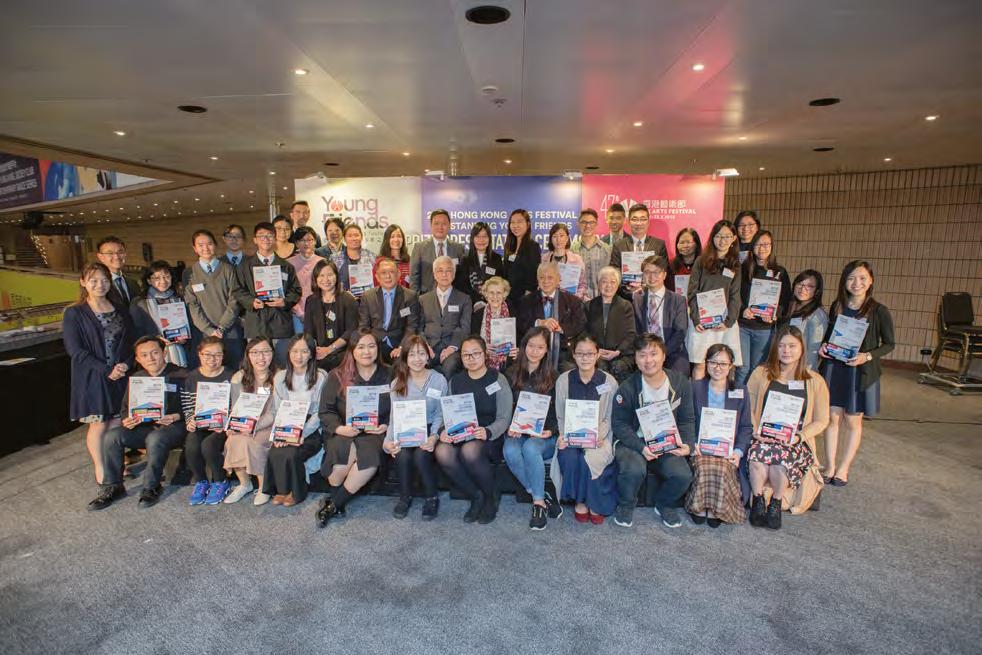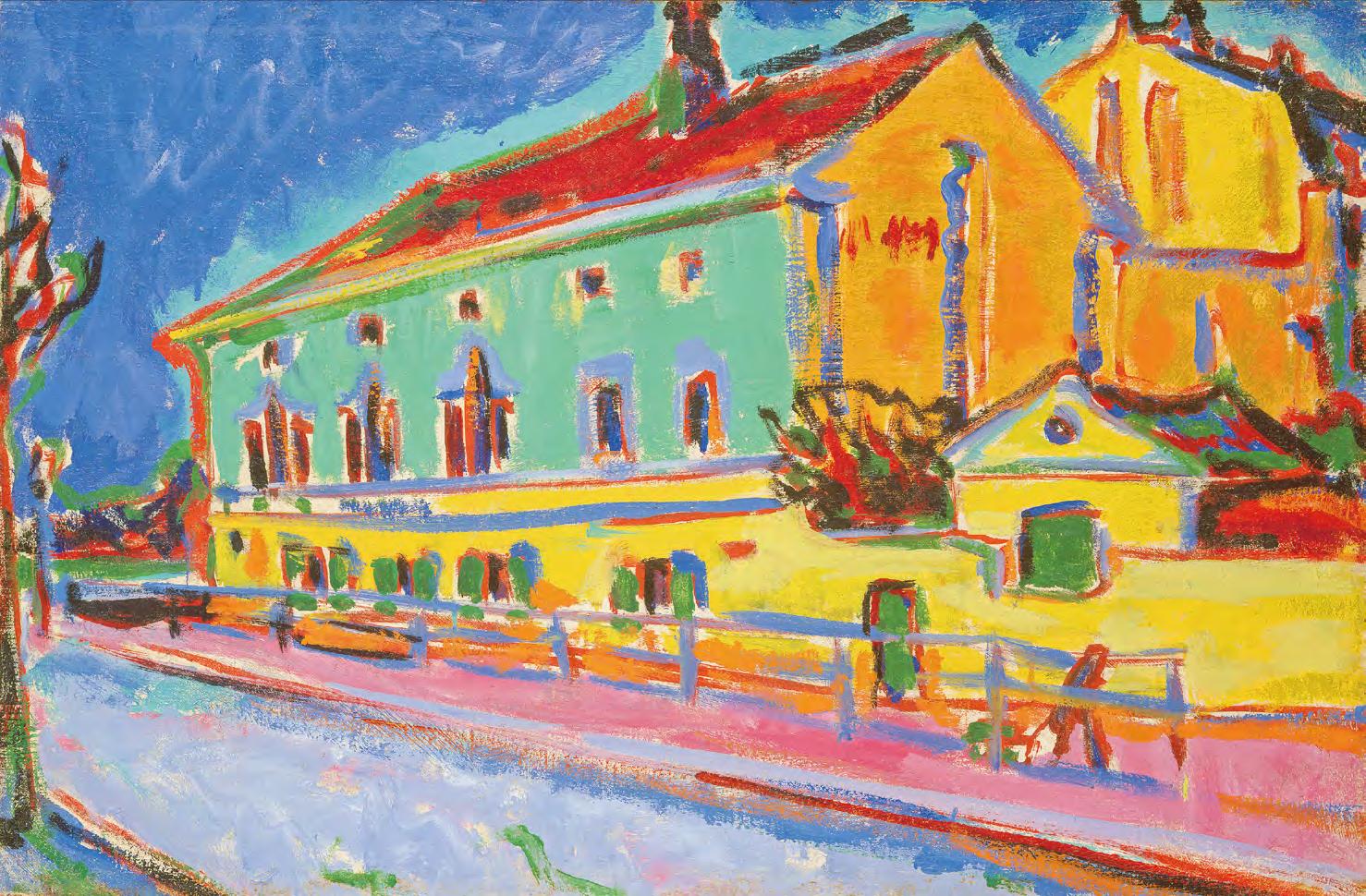MAZZA
指揮
Conductor
米高安哲羅‧馬薩曾於意大 利帕爾馬杜林皇家劇院擔任 樂團首席十四年,期間曾與 多位著名指揮合作,包括里 卡爾多.穆蒂、尤里.捷米 爾卡諾和洛林.馬捷爾。
2014 年,他首次擔任指揮, 在聖保羅市立劇院演繹威爾 第的作品《法斯塔夫》。同 年,他亦在意大利卡利亞里 米蘭抒情劇院擔任多場交響 樂演出指揮,更獲邀到意大 利熱那亞演出。
2015 年,他為在阿爾巴尼亞 地拉那演出的《丑角》及在意 大利卡利亞里演出的《弄臣》 作指揮,其表現備受贊譽。
他於 2016 年獲邀重返意大利 卡利亞里演出《波希米亞生 涯》及貝多芬的作品。
他在 2017 年認識世界級男 女高音尤西夫.伊瓦佐夫和 安娜.涅翠柯,合作完成了 在德國柏林森林劇場舉行的 演唱會。他們多年來長期合 作,進行了眾多歌劇演出和 巡迴演唱會。
2018 年初,他與女高音曹秀 美適逢平昌冬季奧運會,於 首爾樂天音樂廳舉行了一場 演唱會。
2019 年,他首次與伊瓦佐 夫和涅翠柯於柏林德意志歌
劇院進行演出,又為德國科 隆、漢堡易北愛樂廳及法蘭 克福等地的音樂會擔任指揮。
2022 年,他首次以指揮身份 於意大利拿坡里聖卡羅歌劇 院亮相,夥拍安娜.涅翠柯 演出歌劇《阿依達》。他最近 亦首次和澳洲歌劇團一起合 作,在悉尼歌劇院上演《波 希米亞生涯》。
During the 14 years he served as a concertmaster for the orchestra of the Teatro Regio in Parma, Michelangelo Mazza worked with conductors such as Riccardo Muti, Yuri Temirkanov and Lorin Maazel
In 2014, he made his debut as a conductor in Verdi’s Falstaff at the Theatro Municipal de São Pauló, and in that same year also conducted numerous symphonic concerts at the Teatro Lirico in Cagliari and also received an invitation to play in Genoa
In 2015, he received acclaim for his conducting of (I Pagliacci) in Tirana and Rigoletto in Catania In 2016 he was invited to return to Cagliari to perform both a concert of works by Beethoven and La bohème

In 2017, he met the worldfamous opera singer couple of Anna Netrebko and Yusif Eyvazov, with whom he gave a Berlin concert in the Waldbühne This collaboration was continued into the following years with numerous opera performances and concert tours
In early 2018, he took the stage of Seoul’s new Lotte Concert Hall with soprano Jo Su-Mi to give a concert in conjunction with the PyeongChang Winter Olympics
In 2019, he made his Deutsche Opera Berlin debut with Netrebko and Eyvazov, and conducted concerts in Cologne, at Hamburg’s Elbphilharmonie and in Frankfurt
In 2022 he made his debut at the Teatro San Carlo in Naples with Aida, conducting Anna Netrebko in the title role, and he has recently appeared for the first time with Opera Australia, leading performances of La bohème at the Sydney Opera House
米高安哲羅.馬薩 MICHELANGELO
19
© Charles Brooks
鋼琴家張緯晴因能奏出「最複 雜而迷人的音樂」獲《達拉斯 新聞晨報》譽「既是詩人,又 是戲劇家」。曾於 2017 年范. 克萊本國際鋼琴大賽晉身決 賽,並以「富想像力、令人矚 目」(《音樂美國》)及兼具 「美學與技巧」(《瓊斯劇場》) 的演繹贏得觀眾與樂評一致好 評,經網上投票榮獲觀眾大獎。
張緯晴曾與各大樂團共奏,包 括聖彼得堡愛樂樂團、香港管 弦樂團、耶路撒冷交響樂團、 香港小交響樂團、悉尼交響樂 團及倫敦室樂團。她亦曾與多 位著名指揮合作,包括艾度. 迪華特、弗拉基米爾.阿殊堅 納西和亞普.梵志登等。
張緯晴成長於香港,並以一 級榮譽學位畢業於香港演藝學 院。在學期間師從黃懿倫習 琴,及後又於耶魯大學音樂學 院師隨彼得.弗蘭克爾,期間 獲得伊利莎白.帕里索傑出鋼 琴家獎。
Pianist Rachel Cheung has been hailed as “a poet, but also a dramatist” displaying “the most sophisticated and compelling music-making” (The Dallas Morning News). She won over audiences and critics alike as a finalist at the 2017 Van Cliburn International Piano Competition with “stunningly imaginative” (Musical America) interpretations marked by “flights of both beauty and virtuosity” (Theater Jones) and was awarded the Audience Prize by online vote
Cheung has appeared with the St Petersburg Philharmonic, the Hong Kong Philharmonic, the Jerusalem Symphony, the Hong Kong Sinfonietta, the Sydney Symphony and London Chamber Orchestra, collaborating with conductors including Edo de Waart, Vladimir Ashkenazy and Jaap van Zweden, among others
Born and raised in Hong Kong, Cheung graduated with firstclass honours at The Hong Kong Academy for Performing Arts under the tutelage of Eleanor Wong, and later studied with Peter Frankl at the Yale School of Music, where she was awarded the Elizabeth Parisot Prize for outstanding pianists

張緯晴
Rachel Cheung
鋼琴家 Pianist
© Jeremy Enlow
20
連皓忻為香港著名女中音。自 2006 年起,她在多個國際及 香港的歌劇製作演唱女中音角 色,包括《卡門》及《再生瑪 莉亞》主角、《弄臣》的瑪德蓮 娜、《羅密歐與茱麗葉》的斯蒂 芬諾、《蝴蝶夫人》的鈴木等。

她亦曾在多個藝術歌曲演唱會 及神劇音樂會演出中擔任獨 唱,曾合作的樂團包括波士頓 愛樂、香港管弦樂團、香港小 交響樂團、香港藝術節、香港 電台第四台等。
連皓忻生於香港,畢業於香港 演藝學院,並獲波士頓新英 格蘭音樂學院頒授聲樂表演碩 士。她也是美國 2006 年及 2007 年艾斯本音樂節的聲樂院士。
2013 年,連氏於 第 32 屆貝弗 迪爾國際聲樂比賽的分站中勝 出,並代表香港參加於荷蘭阿 姆斯特 丹舉行之決賽週,也分 別於第五屆日本橫濱國際 音 樂 大 賽奪得冠軍和評判特別獎, 以及第五屆意大利特雷維索國 際音樂比賽中第三名。
Carol Lin is one of the leading mezzo-sopranos in Hong Kong Since 2006, Lin has taken principal roles in opera productions by Hong Kong and international companies including the title role of Carmen and Maria de Buenos Aires, Maddalena (Rigoletto), Cherubino (Le Nozze di Figaro), Stephano (Romeo et Juliette), and Suzuki (Madama Butterfly). She has been the featured soloist for many artsong recitals and oratorio concerts and chamber music performances by organisations such as the Boston Philharmonic Orchestra, the Hong Kong Philharmonic Orchestra, the Hong Kong Sinfonietta, the Hong Kong Arts Festival and RTHK Radio 4.
A native of Hong Kong, Lin holds a Bachelor of Music degree (Honours) from The Hong Kong Academy for Performing Arts and a Master of Music degree (Vocal Performance and Opera) from the New England Conservatory of Music, Boston. She was also a vocal fellow of the Aspen Music Festival in summer 2006 and 2007. In 2013, she won the regional round of the 32nd International Hans Gabor Belvedere Singing Competition. She also won the first prize and the Grand Prix at the fifth Yokohama International Music Competition in Japan and third prize at the fifth Giovani Musicisti Città di Treviso International Music Competition in Italy
連皓忻 Carol Lin 女中音 Mezzo-soprano
© He-man Lam
21

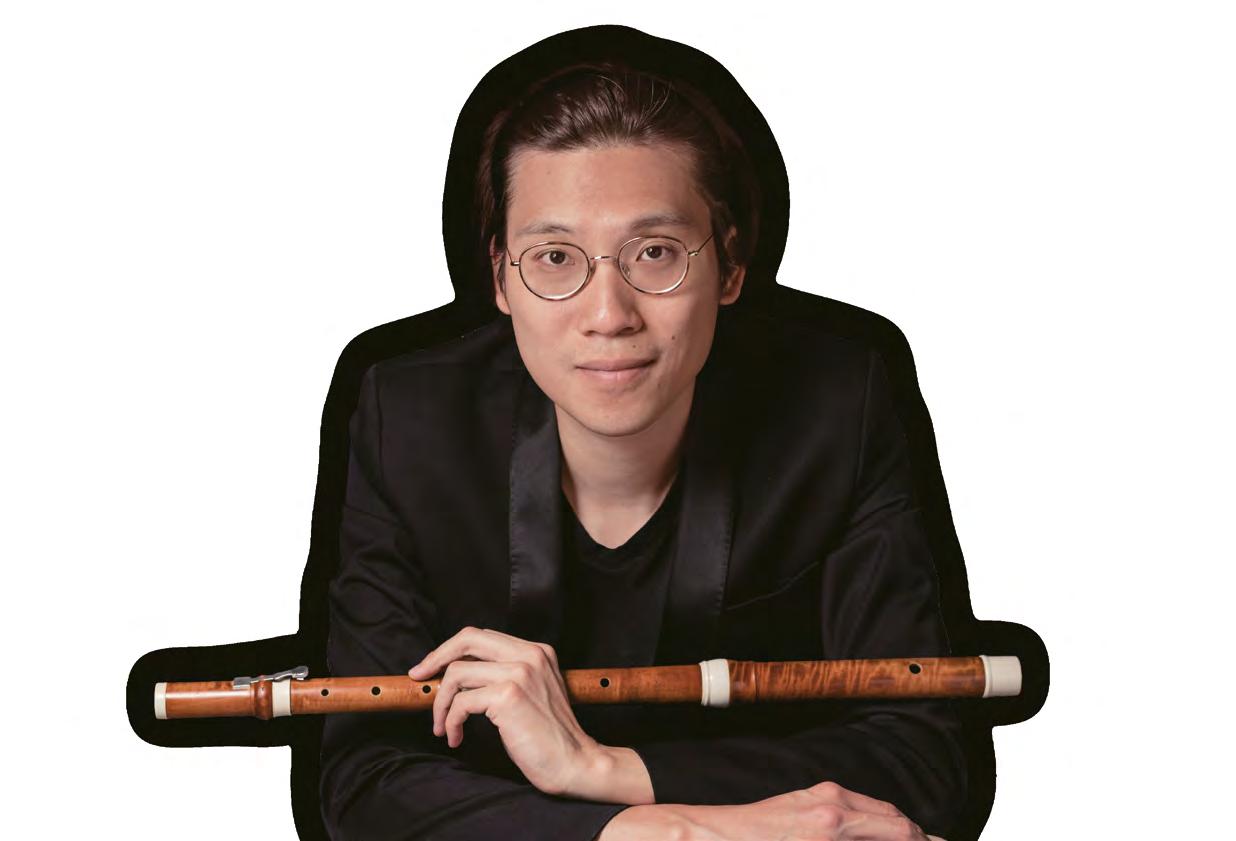





安娜.涅翠柯與尤西夫.伊瓦佐夫演唱會
Anna Netrebko and Yusif Eyvazov in recital
林姆斯基-高沙可夫
〈我在夜深時分悄然夢見〉,作品 40,第三首
(安娜.涅翠柯)
拉赫曼尼諾夫
〈此處風光明媚〉,作品 21,第七首
(安娜.涅翠柯)
林姆斯基-高沙可夫
〈情迷玫瑰的夜鶯〉,作品 2,第二首
(安娜.涅翠柯)
拉赫曼尼諾夫
〈啊,不,求你別離棄我〉,作品 4,第一首 (尤西夫.伊瓦佐夫)
加拉.加拉耶夫
〈我愛過你〉(尤西夫.伊瓦佐夫)
拉赫曼尼諾夫
〈啊,美麗的少女,別為我高歌〉,作品 4,第四首
(尤西夫.伊瓦佐夫)
柴可夫斯基
〈啊,告訴我,在枝蔭間〉,作品 57,第一首 (安娜.涅翠柯)
柴可夫斯基
〈狂暴之夜〉,作品 60,第六首
(安娜.涅翠柯)
柴可夫斯基
〈將近午夜——啊,悲傷透支了我〉,選自
《黑桃皇后》,作品 68(安娜.涅翠柯)
柴可夫斯基
〈一如既往,我孤身一人〉,作品 73,第六首 (尤西夫.伊瓦佐夫)
柴可夫斯基
〈你在何方〉,作品 24,選自《尤金. 奧尼金》 (尤西夫.伊瓦佐夫)
柴可夫斯基
《小夜曲》,作品 63,第六首 (安娜.涅翠柯)
拉赫曼尼諾夫
〈朋友,原來已這樣久〉,作品 4,第六首 (尤西夫.伊瓦佐夫)
Nikolai Rimsky-Korsakov
"O chem v tishi nochey", Op. 40, No. 3 (Anna Netrebko)
Sergei Rachmaninoff
"Zdes' khorosho", Op. 21, No. 7 (Anna Netrebko)
Nikolai Rimsky-Korsakov
"Plenivshis' rozoj, solovey", Op. 2, No. 2 (Anna Netrebko)
Sergei Rachmaninoff
"O nyet, molyu, ne ukhodi!", Op. 4, No. 1 (Yusif Eyvazov )
Gara Garayev
"Ya vas lyubil " (Yusif Eyvazov )
Sergei Rachmaninoff
"Ne poy, krasavitsa, pri mne", Op. 4, No. 4 (Yusif Eyvazov )
Pyotr Ilyich Tchaikovsky
"Skazhi, o chem v teni vetvey", Op. 57, No. 1 (Anna Netrebko)
Pyotr Ilyich Tchaikovsky
"Nochi bezumnie", Op. 60, No. 6 (Anna Netrebko)
Pyotr Ilyich Tchaikovsky
"Uzh polnoch’ blizitsia … Akh, istomilas ya gorem" from The Queen of Spades, Op. 68 (Anna Netrebko)
Pyotr Ilyich Tchaikovsky
"Snova, kak prezhde, odin", Op. 73, No. 6 (Yusif Eyvazov )
Pyotr Ilyich Tchaikovsky
"Kuda, kuda vï udalilis", from Eugene Onegin, Op. 24 (Yusif Eyvazov )
Pyotr Ilyich Tchaikovsky
Serenada, Op. 63, No. 6 (Anna Netrebko)
Sergei Rachmaninoff
"Davno l', moy drug", Op. 4, No. 6 (Yusif Eyvazov )
26
中場休息 Interval
李察.史特勞斯
〈切契莉亞〉,作品 27,第二首 (安娜.涅翠柯)
李察.史特勞斯
《小夜曲》,作品 17,第二首 (安娜.涅翠柯)
德伏扎克
〈母親教我的歌〉,作品 55,第四首 (安娜.涅翠柯)
萊昂卡瓦羅
〈鳥兒在天空呼嘯〉,選自《丑角》 (安娜.涅翠柯)
托斯蒂
《小夜曲》(安娜.涅翠柯)
托斯蒂
〈我不再愛你〉(尤西夫.伊瓦佐夫)
托斯蒂
《理想愛人》(尤西夫.伊瓦佐夫)
托斯蒂
《最後的歌》(尤西夫.伊瓦佐夫)
加斯陶頓
《被禁止的音樂》,作品 5(尤西夫.伊瓦佐夫)
齊里亞
〈這是一個牧羊人的尋常故事〉,選自 《阿萊城的姑娘》(尤西夫.伊瓦佐夫)
萊昂卡瓦羅
《黎明》(安娜.涅翠柯)
庫爾蒂斯/波斐奧
〈從不流淚的你〉(安娜.涅翠柯、尤西夫.伊瓦佐夫)
庫爾蒂斯/楓諾
〈毋忘我〉(安娜.涅翠柯、尤西夫.伊瓦佐夫)
Richard Strauss
Cäcilie, Op. 27, No. 2 (Anna Netrebko)
Richard Strauss
Ständchen, Op. 17, No. 2 (Anna Netrebko)
Antonín Dvorák
"Když mne stará matka", Op. 55, No. 4 (Anna Netrebko)
Ruggero Leoncavallo
"Stridono lassù" from I Pagliacci (Anna Netrebko)
Francesco Paolo Tosti
La serenata (Anna Netrebko)
Francesco Paolo Tosti
"Non t'amo più!" (Yusif Eyvazov)
Francesco Paolo Tosti Ideale (Yusif Eyvazov )
Francesco Paolo Tosti
L’ultima canzone (Yusif Eyvazov )
Stanislao Gastaldon
Musica proibita, Op. 5 (Yusif Eyvazov )
Francesco Cilea
"È la solita storia del pastore" from L´Arlesiana (Yusif Eyvazov )
Ruggero Leoncavallo
Mattinata (Anna Netrebko)
Ernesto de Curtis / Libero Bovio
"Tu ca nun chiagne" (Anna Netrebko, Yusif Eyvazov)
Ernesto de Curtis / Domenico Furnò
"Non ti scordar di me" (Anna Netrebko, Yusif Eyvazov)
09. 03. 2023
27
樂曲介紹 Programme Notes
和可唱的樂曲之間,著力構建 互動、相生的關係。《四首浪 漫曲》作品 2 發行於 1866 年, 曲集的第二首名為〈情迷玫瑰 的夜鶯〉。所譜的詩是年輕俄 國詩人柯列佐夫的「波斯風格」
作品,林姆斯基-高沙可夫配 上穩定的和弦伴奏,其中滲入 東方色彩的阿拉貝斯克,而 朗讀式的聲部蹣跚地唱出愛人 的悲痛。
德國藝術歌曲這個浪漫派曲 種,將詩藝和音樂嶄新、親密 地融合起來。浪漫主義藝術歌 常以聲部和鋼琴譜曲,藝術性 在詩文和音樂上同時呈現。雖 然以詩入樂的作品取材廣泛, 但思念、愛情和對大自然的妙 思,這些充滿詩意的特質被 提升為恆久不衰的音樂藝術形 式。多年來,德國藝術歌曲以 至其他藝術歌種類都備受歌唱 家和聽眾所鍾愛,造就一種充 滿個人情感與真誠剖白的音樂 表達,是浪漫主義藝術自傳式 特質的典範。
俄風浪漫
雖然林姆斯基-高沙可夫的交 響樂作品一直都極受追捧, 但他的鋼琴伴奏歌曲多數被忽 略,可謂遺珠。被稱為「俄羅 斯靈魂的歌者」,林姆斯基- 高沙可夫的歌曲作品用音樂主 導藝術性: 他在一句句的詩文
1897 是林姆斯基-高沙可夫的 「藝術歌曲年」,見證他的聲樂 風格顯著的變化。作品 40 第三 首〈我在夜深時分悄然夢見〉, 詩文是梅考手筆,副題為「悲 歌」。音樂溫柔地勾畫了內心的 夜夢,音樂素材完全取由詩歌 中的情感和措辭。在作品 43 第 三首,作曲家施展同樣手法: 詩人費特的〈你那美麗的花環 清新芬芳〉中,花團錦簇滿室 芳香,啟發了繁花似錦的和聲。
柴可夫斯基的歌曲並未有如他 的芭蕾舞劇和交響曲那樣獲得 尊崇。俄羅斯作曲家居伊寫 道:「柴可夫斯基認為作曲時套 用詩歌是迫不得已,而它只會 阻礙作曲的過程」; 他又因篡改 和肆意重複詩文而受到批評。 然而,他約百首的歌曲結集起 來,份量也不容忽視。他偏好 使用名不經傳的作家的文字, 詩意細節對他來說亦無關緊 要。他反而著眼於營造一份能 投射出強烈個人感受的氛圍。 柴可夫斯基總是讓歌手主導詮 釋詩文,而鋼琴則從旁襯托和 提供連續性,「並時在關鍵處放 大情感力度」。
柴可夫斯基在 1884 年創作了 《六首浪漫曲》作品 57,第一首 是〈啊,告訴我,在枝蔭間〉: 這首詩源自索洛古布的通俗喜 劇《心軟的煩惱》,柴可夫斯 基創作了一段複雜的獨白,由 開首的小節營造出難忘的音樂 意象。阿普赫金的詩作〈狂暴 之夜〉,則出現在柴可夫斯基 《十二首浪漫曲》作品 60; 焦 躁的鋼琴音型襯托一段詩文朗 誦,喚起戀情的痛苦回憶。而 1887 年的《六首浪漫曲》作品 63,根據康斯坦丁諾維奇大公 的詩歌寫成,在溫柔搖晃的音 樂下,小夜曲〈啊,寶貝,在 你的陽台下〉為歌者的摯愛帶來 溫婉的吻。
柴可夫斯基
(1840-1893)
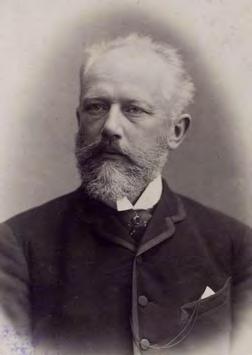
柴可夫斯基最後一組《六首浪 漫曲》作品 73,成於他離世 的一年。以烏克蘭詩人拉高 茲的詩譜曲,當中一些作品可 算是柴可夫斯基最幽暗的浪漫 曲之一。作品 73 第六首〈一
 林姆斯基-高沙可夫 Nikolai Rimsky-Korsakov (1844-1908)
Pyotr Ilyich Tchaikovsky
瓦倫丁‧謝羅夫作畫
林姆斯基-高沙可夫 Nikolai Rimsky-Korsakov (1844-1908)
Pyotr Ilyich Tchaikovsky
瓦倫丁‧謝羅夫作畫
28
Portrait by Valentin Serov
如既往,我孤身一人〉有一個 頑固低音和兩個互動的主題, 逐漸加速至強烈尖銳的高潮。
把歌曲創作的理念運用到歌劇 之中,柴可夫斯基對此駕馭自 如,如《黑桃皇后》作品 68, 第三幕的詠嘆調〈啊,悲傷透 支了我〉;《尤金.奧尼金》作 品 24,第二幕連斯基的詠嘆調 〈你在何方〉; 以及他最後一部 歌劇《約蘭塔》作品 69,美麗 的二重唱浪漫曲〈騎士,是什 麼光〉。
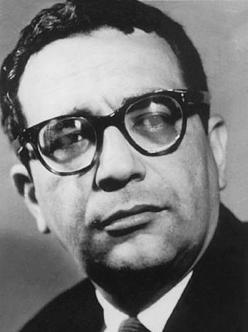
緒,再從強弱控制中加以發 展。同時,複雜的鋼琴伴奏 發揮的戲劇作用,就像「在歌 劇中把情節展開的場景結構設 計」。拉赫曼尼諾夫的歌曲將聲 部的誦唱與他卓越的鋼琴天賦 相結合,只在俄羅斯的創作環 境得以成就;1917 年底他離國 後,就再也沒有寫歌。
拉赫曼尼諾夫的 83 首浪漫曲, 包含了他一些最優美、最一聽 難忘的音樂。拉赫曼尼諾夫的 歌曲繼承了葛令卡和柴可夫斯 基開墾的音樂園地,在 19 世 紀浪漫主義歌曲風潮中,注入 了俄羅斯的影響。與柴可夫斯 基一樣,拉赫曼尼諾夫注重以 明亮的旋律形象捕捉詩文的意
《六首浪漫曲》作品 4 寫於 1890 至 1893 年間,是拉赫曼尼諾夫 在莫斯科的學生時期作品,展 示了典型的鍵盤語法,鋼琴伴 奏包裹著舒伯特式尖銳鋒利的 聲部旋律,織體脈絡清晰。鋼 琴部分後來也獨立成章。作品 4 第一首〈啊,不,求你別離 棄我〉,以梅列日科夫斯基的一 首詩譜曲,主題寬廣而抒情, 力度範圍寬闊,其中細緻的對 位段落豐富了織體。作品 4 第 四 首〈啊,美麗的少女,別為 我高歌〉,副題為「格魯吉亞歌 曲」,用上普希金的詩。優美的 開頭和小調中的華麗旋律,讓 人想起格魯吉亞地區的民俗音 樂。而作品 4 第六首〈朋友, 原來已這樣久〉,取自庫圖佐 夫的詩,特色是廣闊的旋律線 和柔和的鋼琴色彩。作品 21 寫 於 1900 到 1902 年間,其中拉 赫曼尼諾夫調教出一種聲部和 伴奏的精細平衡,鋼琴帶出詩 文的深刻體悟。作品 21 第七首 〈此處風光明媚〉,是加林娜的 詩; 女詩人描述在日落中思考 人、大自然和上帝的聯繫。溫 柔抒情的音樂看似簡單,但這 些早期浪漫曲,已顯露出拉赫 曼尼諾夫音樂意象的精髓。
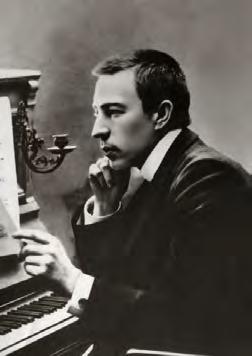
加拉耶夫是一位傑出的蘇聯時 期阿塞拜疆作曲家,創作涵蓋 多個樂種。普希金的標誌性詩 作〈我愛過你〉被譽為俄羅斯 詩歌中「最極致的失戀宣言」: 詩人為自己的單思而憂鬱,他 也明白他的對象永遠不會回饋 他的愛。加拉耶夫溫柔的配樂 已成為現代阿塞拜疆音樂文化 的瑰寶。
歐陸繁花
對李察.史特勞斯來說,將詩 歌譜寫成音樂並非易事。在他 150 首歌曲中,許多靈感都來 自對妻子寶琳的深愛。其中有 作品 17 第二首《小夜曲》,一 首由剎那迸發的情感所啟發的 傑作。一位評論家寫道:「這首 歌光芒自發卻不迸湧,細語而 不喊叫,但它的欣喜若狂仍然 實在。」〈切契莉亞〉,作品 27 第二首,是送給愛妻的結婚禮 物,「旋律抒情迷人,對詩文含 義領悟非凡,伴奏如畫,令這 作品與眾不同」。
拉赫曼尼諾夫 Sergei Rachmaninoff (1873-1943)
加拉耶夫 Gara Garayev (1918-1982)
29
德伏札克
Antonín Dvorák (1841-1904)

德伏札克的《吉普賽歌集》作 品 55,為維也納宮廷歌劇院的 德國男高音古斯塔夫.瓦爾特 所寫。詩作出自捷克詩人海杜 克筆下,他更為德伏札克提供 了 1880 年原版的德文譯本。
德伏札克的旋律和和聲並沒有 刻意模仿某方面的吉普賽民俗 特色,而傾向於泛化的風格特 徵。鋼琴部描繪斯洛伐克民歌 的器樂伴奏典型,突顯揚琴的 傳統聲音。他最為人所識的選 曲集〈母親教我的歌〉,在不尋 常的節奏結構中,響起溫和的 主題; 聲部是 2/4 拍,鋼琴伴 奏以 6/8 拍展開,產生強烈的 情感衝擊。
「寫實主義」不單指意大利歌劇 風格,也是文學運動的一種。 萊昂卡瓦羅唯一能歷久不衰的 作品《丑角》,至今仍是受歡迎 的曲目之一,其詠嘆調〈鳥兒 在天空呼嘯〉中,主角妮達雖
然已與卡尼奧結婚,卻仍受托 尼奧的傾慕,更和西爾維奧有 所牽連,她聆聽鳥兒的歌聲, 希望從中舒緩焦慮的情緒。
發表於 1882 的《理想愛人》展 現了托斯蒂的所有招牌特色: 夢幻般的感傷、溫潤輕柔的樂 句、悅耳的旋律和細膩的憂鬱。 《最後的歌》包含許多流行曲的 風格特徵,例如在最後的重音 上的短小單音節花腔。
托斯蒂
Francesco Pablo Tosti (1846-1916)

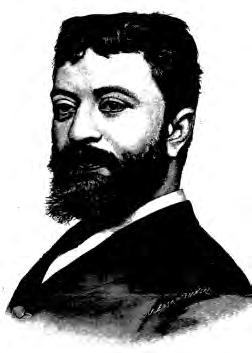
托斯蒂是意大利人,但在英 國建立事業; 他是御用聲樂老 師,並自 1894 年起擔任皇家 音樂學院的聲樂教授,在英國
聲譽甚高。他寫了大量意大利 語、法語和英語歌曲,創作豐 盛,「具備優美、流暢的旋律風 格,旋即受到大眾青睞」。
《小夜曲》被形容為「一首激情 且有點外向的夜曲」,當中有托 斯蒂最令人難忘和優美的樂句 之一,在結他風格的伴奏下閃 耀著充沛的表現力。在〈我不 再愛你〉中,歌者游動於浪漫 的回憶、承諾、夢想的天長地 久、激情的消逝以至最終的虛 幻世界。
加斯陶頓
Stanislao Gastaldon (1861-1939)
與托斯蒂一樣,加斯陶頓主力 是創作沙龍歌曲。《被禁止的音 樂》是一首歌中歌,當中一名 少女講述著以下故事: 英俊的 男士每晚在她的陽台下唱一首 情歌。 她自己也想唱這首歌, 但媽媽不容許; 趁母親離家, 她偷偷地唱,並想起最後一次 聽到他的聲音,又唱得更著力 了。這首歌曲十分成功,「它很 快在意大利各地成為羞怯的年 輕戀人表露愛意的方法,既不 羈又動人」。
庫爾蒂斯出生於拿坡里,他 創作的百多首歌曲都向故鄉致
30
敬。〈從不流淚的你〉、〈我愛 你如斯〉和〈毋忘我〉在流行 曲和藝術歌曲兩個界別都能領 風騷; 歌曲甜美但不感傷,感 性但不庸俗,充滿悲情但不淺 薄。歸功於托斯蒂和庫爾蒂斯 的非凡功力,這些拿玻里風格 的歌曲已成為民歌曲目的一部 分,欣敬著拿坡里及其人民。
The combination of poetry and music achieved a new and intimate union in the quintessential Romantic genre, the Lied. Typically scored for voice and piano, the art of romantic song resides as much in poetry as it does in music. Although the subjects that appear in song poetry are quite diverse, the poetic qualities of individual yearning, romantic love and the fanciful evocations of nature have been perfected into an enduring musical art form Remaining popular with vocalists and audiences throughout the ages, the Lied and its aesthetic equivalents became a highly personal and confessional musical expression that epitomises the autobiographical character of Romantic Art
The Russian romance
While Rimsky-Korsakov’s symphonic works remain popular, his songs with piano accompaniment are largely unknown and unfairly neglected Dubbed the “Singer of the Russian Soul”, RimskyKorsakov’s song compositions have an artistry that is foremost a musical one, as he attempted to form a symbiotic relationship between the poetic statement and a singable design The Four Romances Op 2 were issued in 1866 and the second song of the set is titled “The Nightingale" Penned by the young Russian poet Aleksei Koltsov in the “Persian style”, the poem is set by Rimsky-
Korsakov with a static chordal accompaniment infused with oriental arabesques, with the declamatory vocal line reeling with the agony of the lover’s grief
During his great Liederjahr of 1897, Rimsky-Korsakov’s approach to vocal style underwent a noticeable change The poem for Op 40, No 3, "What I secretly dream about in the quiet of night", was written by Apollon N Maykow and carries the subtitle “Elegia” The music tenderly traces an internal nocturnal dream, with the musical substance entirely derived from the emotional content and diction of the poetry The same musical process informs Op 43, No 3, “Cool and Fragrant is Thy Garland” by Afanasy Fyet, as the luxurious harmonies are inspired by the fresh fragrance of the sumptuous wreath
The songs of Pyotr Ilyich Tchaikovsky, perhaps surprisingly, have not been accorded the high rank bestowed on his ballets and symphonies. The Russian composer César Cui wrote: “Tchaikovsky viewed poetry as a necessary evil that only hindered the process of composition,” and he was criticised for altering texts and making abundant use of repetition However, his roughly 100 songs add up to a significant body of work Generally preferring the lyrics of lesser-known writers, poetic
撰文:裴德龍博士
31
details mattered little to the composer. Instead, he was looking to establish a general mood that projected strong personal feelings. Tchaikovsky always enlisted the singer as the primary interpreter of the text, with the pianist providing support and continuity “and sometimes crucial expressive amplification”.
Tchaikovsky composed his Six Romances Op 57 in 1884, with the first song in the set "Oh say, what is it, in shady branches" The poem originates from Vladimir Sollogub’s comedy-vaudeville Trouble from a Tender Heart, and Tchaikovsky creates a complex monologue developed from a memorable musical image in the first bars The poem "Frenzied nights" originates from Aleksey Apukhtin, and it became part of Tchaikovsky’s Twelve Romances, Op 60 Restless piano figuration supports a lyric declamation that recalls the painful memories of a love affair Based on poetry by Grand Duke Konstantin Konstantinovich, the Six Romances Op 63, date from 1887. The gently swaying musical setting of the serenade "O child, below your balcony" carries soft kisses to the singer’s beloved
Tchaikovsky’s final set of Six Romances, Op 73 dates from the final year of his life. Setting verse by the Ukrainian poet Danyl Ratgauz, this opus contains some of Tchaikovsky’s
darkest romances Op 73, No
6 "Again, as before, I am alone" has an ostinato bass and two interacting themes that accelerate to a culmination of poignant intensity Tchaikovsky easily transferred the ideals of his song compositions into an operatic context, including the Arioso: “The grief has exhausted me,” from Act 3 of The Queen of Spades, Op 68, Lensky’s Aria “Where have you gone, o golden days of my spring?” from Act 2 of Eugene Onegin, Op 24, and the beautiful duet Romance
“Knight, what is the Light”, from his last opera, Iolanta, Op. 69.
The 83 Romances by Sergei Rachmaninoff include some of his finest and most memorable music They are part of the Russian contribution to the great 19th-century stream of Romantic songs, and the composer cultivated the musical garden he inherited from Glinka and Tchaikovsky Like Tchaikovsky, Rachmaninoff sought above all to capture the basic mood of a poetic text in a bright melodic image, showing it in growth, dynamic intensity and development Meanwhile, the complexity of the piano accompaniment is the dramatic equal to the “architectonics of a plot-unfolded opera scene” Combining the declamatory parts for voice with his supreme pianistic gifts, Rachmaninoff’s songs were specifically written for the Russian milieu Once he left Russia for good at the end
of 1917, he composed no more songs.
The Six Romances, Op. 4, date from 1890 to 1893, Rachmaninoff’s student years in Moscow. Demonstrating characteristically idiomatic keyboard writing, the set is informed by a distinctive clarity of texture as the piano accompaniment envelopes piercing vocal melodies of Schubertian incisiveness In fact, the piano parts would eventually become separate pieces of their own Op 4, No 1 "O, no, I beg you, do not leave!", composed to a poem by Dmitry Merezhkovsky, features broad and lyrical themes with a wide dynamic range, and a texture infused by intricate contrapuntal passages Rachmaninoff based Op 4, No 4 "Oh do not sing for me, fair maiden", subtitled “Georgian song”, on a poem by Aleksandr Pushkin The melismatic opening and the florid melody set in the minor key calls to mind the folk music of the Georgian region, while Op 4, No 6 "Has it been so long, my friend", based on a poem by Arseny GolenishchevKutuzov, features expansive melodic lines and subdued pianistic colours. In his Op 21 songs dating from 1900 to 1902, Rachmaninoff displays a finely controlled balance between voice and accompaniment, with the piano offering deep insight into the text Op 21, No 7, "All is well here", sets a poem by Countess
32
Glafira Adolfoyna Einerling
The poetess describes a sunset, and contemplates the bond between man, nature and God. Full of gentle lyricism, the music is seemingly simple but the true essence of Rachmaninoff’s musical imagination can already be found in these early romances
Gara Garayev was a prominent Soviet Azerbaijani composer who composed in a wide variety of genres Pushkin’s iconic poem “I loved you so" has been described as “the quintessential statement on lost love”
in Russian poetry
The poet is melancholic about his unrequited love, yet he also understands that the object of his affections can never love him back Garayev’s tender setting has become a musical jewel in modern Azerbaijani music culture
Continental flowering
For Richard Strauss, setting poems to music did not come easy. Strauss found the inspiration for many of his 150 songs in his deep love for his wife, Pauline. Among them is “Ständchen” (Serenade) Op 17, No 2, a masterpiece composed in a moment of fragrant lyric inspiration As a critic wrote: “The song glows rather than gushes; it whispers rather than shouts, but its ecstasy is no less real ” “Cäcilie”, Op 27, No 2, was a wedding gift to Pauline, and it is “remarkable both for the lyrical charm of melody and extraordinary insight into the meaning of the text and picturesque accompaniment”
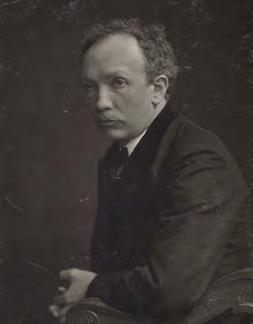
Antonín Dvorák composed Gypsy Songs, Op. 55, for the German tenor Gustav Walter, a member of the Vienna Court Opera The poems flowed from the pen of Czech poet Adolf Hejduk, who also furnished Dvorák with the German translations found in the original 1880 edition Dvorák’s melodies and harmonies do not attempt to imitate specific aspects of gypsy folklore, but instead focus on generic folkloric traits The piano part portrays elements typical of the instrumental accompaniment of Slovak folk songs, principally the traditional sound of the cimbalom The most popular selection, "When my mother taught me”, sounds a gentle theme within an unusual rhythmic structure While the
vocal line is written in 2/4 time, the piano accompaniment unfolds in 6/8 time, assuring a strong emotional impact
萊昂卡瓦羅 Ruggero Leoncavallo (1857-1919)
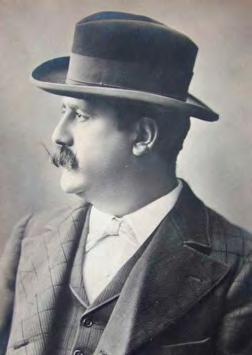
“Verismo” in opera mirrored the Italian literary movement of the same name Ruggero Leoncavallo’s single lasting contribution, (I Pagliacci) (Clowns), is still one the most popular works in the repertoire and the aria “Stridono lassù”, also known as the “Birdsong”, finds Nedda, married to Canio, desired by Tonio and in a relationship with Silvio, comforting her anxiety by listening to the songs of the birds
Francesco Paolo Tosti came from Italy but made his career in England. Appointed singing teacher to the royal family,
史特勞斯
Richard Strauss (1864-1949)
33


and from 1894 a professor of singing at the Royal Academy of Music, Tosti became popular in England He was a prolific composer of Italian, French and English songs, “with a graceful, fluent melodic style that quickly found favour”. “La serenata” has been described as “a passionate and somewhat extroverted serenade”, with one of Tosti’s most memorable and beautiful vocal lines shining expressively over a guitar-style accompaniment In “Non t’amo più”, the singer moves in a world of romantic memories, promises, dreams of eternal love, the end of passion and finally delusion.
Published in 1882, “Ideale”
displays all the characteristics we associate with Tosti: dreamy sentimentality, smooth and caressing phrases, a pleasing melody and a delicate melancholy, while “L’ultima canzone” includes a number of stylistic features of popular song, such as the short melisma on the last accented syllable of the line.
intensely The song enjoyed enormous success, and “it soon became a way for timid young lovers all over Italy to express their affection in words that were both uninhibited and emotionally moving”
Born in Naples, Ernesto De Curtis composed more than 100 songs that pay homage to his native city “Tu ca nun chiagne” (You, who don’t cry), “Ti voglio tanto bene” (I love you very much), and “Non ti scordar di me” (Don’t forget me) scintillate in a wondrous way between the street song and the Lied They are sweet but never sentimental, sensual but never vulgar, full of pathos but never trivial Thanks to the exceptional mastery of Tosti and De Curtis, these Neapolitan-style songs have become part of the folksong repertoire, paying homage to the town of Naples and its people
Like Tosti, Stanislao Gastaldon was primarily a composer of salon songs. His “Musica proibita” is a song within a song, where a young woman tells of a handsome man who sings a love song beneath her balcony every night She wants to sing it herself, but her mother has forbidden it When her mother leaves the house, she does sing it, and recalling the last time she heard him, she sings it again even more Text: Dr. Georg Predota
35
Nikolai Rimsky-Korsakov
"O chëm v tishi nochey" op. 40, no. 3
O chëm v tishi nochey, tainstvenno mechtayu, O chëm pri svete dnya, vsechasno pomyshlyayu,
To budet taynoy vsem. I dazhe ty, moy stikh, Ty, drug moy vetrenyy, uslada dney moikh, Tebe ne peredam dushi moyey mechtan’ya.
A to, rasskazhesh’ ty, chey glas v nochnom molchan’i
Mne slyshitsya, chey lik ya vsyudu nakhozu, Ch’i ochi svetyat mne, ch’yë imya ya tverzhu.
Sergei Rachmaninoff
"Zdes’ khorosho" op. 21, no. 7
Zdes’ khorosho...
Vzglyani, vdali
Ognëm gorit reka;
Tsvetnym kovrom luga legli, Beleyut oblaka.
Zdes’ net lyudey...
Zdes’ tishina...
Zdes’ tol’ko Bog da ya.
Tsvety, da staraya sosna, Da ty, mechta moya!
Nikolai Rimsky-Korsakov
"Plenivshis' rozoy, solovey" op. 2, no. 2
Plenivshis’ rozoy, solovey
I den’ i noch’ poyët nad ney;
No roza molcha pesnyam vnemlet...
Na lire tak pevets inoy
Poyët dlya devy molodoy;
A deva milaya ne znayet,
Nikolai Rimsky-Korsakov
"What I secretly dream about in the quiet of night" op. 40, no. 3
What I secretly dream about in the quiet of night, what I think about every hour in the light of day will be a mystery to all. And even you, my verse, you, my windy friend, the delight of my days, to you I will not relinquish the reveries of my soul. But then, you will tell me whose voice in the silence of the night I hear, whose face everywhere I find, whose eyes shine to me, whose name I keep repeating.
Sergei Rachmaninoff
"All is well here" op. 21, no. 7
All is well here...
Look, in the distance
The river glows like a fire; The meadows are like a colourful carpet, And there is the whiteness of clouds. There is nobody here.
All is quiet…
Here I am alone with God. And the flowers, and the old pine, And you, my dream…
Nikolai Rimsky-Korsakov
"The Nightingale" op. 2, no. 2
Captivated by a rose, the nightingale
Sings over her, both day and night; But the rose in silence harkens to his songs…
And so a certain other singer, to his lyre, Sings for his young maiden;
林姆斯基-高沙可夫
〈我在夜深時分悄然夢見〉, 作品 40,第三首
我在夜深時分悄然夢見的, 醒來每個小時念念不離的, 世人無從知悉。即使是你,我的歌, 飄忽的朋友,我每日的喜悅, 對你,我不願傾吐靈魂的綺思。 唯怕你會洩露,靜夜深處,我聽到 誰的音聲,每每看到的,是誰的 臉,
誰的美眸向我閃耀,我不斷呼喚 的,是誰的名字。
拉赫曼尼諾夫 〈此處風光明媚〉,
作品 21,第七首
此處風光明媚……
看,在遠方, 河流閃灼如火,
草地像五彩繽紛的地氈, 雲朵潔白無瑕。
這裏沒有人, 萬籟俱寂……
我獨自跟上帝同在, 還有花兒、老松樹 和你,我的夢……
〈情迷玫瑰的夜鶯〉, 作品 2,第二首
情迷玫瑰的夜鶯,
在其上盤桓,日夜歌唱; 玫瑰靜默不語……
如某個歌者,彈着萊雅琴, 為傾慕的少女獻唱。
但嫵媚的少女不知
尼古拉·林姆斯基-高沙可夫
36
歌詞 Lyrics
Komu poyët i otchego Pechal’ny pesni tak ego?...
Sergei Rachmaninoff
" O nyet, molyu, ne ukhodi!"
op. 4, no. 1
O nyet, molyu, ne ukhodi!
Vsya bol’ nichto pered razlukoy, Ya slishkom schastliv
Etoy mukoy, Sil’ney prizhmi menya k grudi, Skazhi lyublyu.
Prishël ya vnov’, Bol’noy, izmuchennyy i blednyy. Smotri, kakoy ya slabyy, bednyy, Kak mne nuzhna tvoya lyubov’...
Mucheniy novykh vperedi
Ya zhdu kak lasku, kak potseluya, I ob odnom molyu, toskuya:
O, bud’ so mnoy, ne ukhodi!
Gara Garayev "Ya vas lyubil"
Ya vas lyubil: lyubov’ eshche, byt’ mozhet, V dushe moyey ugasla ne sovsem; No pust’ ona vas bol’she ne trevozhit;
Ya ne khochu pechalit’ vas nichem. Ya vas lyubil bezmolvno, beznadezhno, To robost’yu, to revnost’yu tomim;
Ya vas lyubil tak iskrenno, tak nezhno, Kak day vam bog lyubimoy byt’ drugim.
Sergei Rachmaninoff
"Ne poy, krasavitsa, pri mne"
op. 4, no. 4
Ne poy, krasavitsa, pri mne
Ty pesen Gruzii pechal’noy; Napominayut mne one
Druguyu zhizn’ i bereg dal’niy.
But the maiden tender does not know For whom he sings, and why His songs should be so sad?...
Sergei Rachmaninoff
"O, no, I beg you, do not leave!" op. 4, no. 1
O, no, I beg you, do not leave! All my pains are nothing compared to separation
I am only too fortunate with that torment, Press me tightly to your bosom and say you love me. I came anew full of pain, pale and exhausted. See how poor and weak I am, how I need your love... The new torments ahead I await like a caress or kiss, and again I beg you in anguish: O stay with me, do not leave!
Gara Garayev "I loved you so"
I loved you so: I guess, my love yet maybe
Has not quite faded out inside my soul;
But I don't let it bother you, my lady; Don't want to sadden you, upon the whole.
I loved you so despairingly and softly,
So jealous and so shy I used to be; I loved you so sincerely, so fondly, God bless you to be loved so, not by me
Sergei Rachmaninoff
"Oh do not sing for me, fair maiden" op. 4, no. 4
Oh do not sing for me, fair maiden, Those Georgian songs so sad; They remind me
Of another life and a distant shore.
他為誰而歌,為甚麼 他的歌如此悲傷?
拉赫曼尼諾夫〈啊,不,求你 別離棄我〉,作品 4,第一首 啊,不,求你別離棄我! 比起離別,我受的苦不算甚麼。 只能說,我太幸運 能經歷這種折磨。
快將我緊抱入懷, 說,你愛我。
而今,我又來了, 痛苦萬分,蒼白虛脫。
你看,我多可憐羸弱, 多麼需要你的愛…… 對將要來的折磨,
我甘之如飴,像期待撫摩和親吻; 絕望中,我復懇求你: 啊,陪着我,別離開我!
加拉耶夫〈我愛過你〉 我愛過你:我猜,我的愛 在靈魂深處,可能還未褪卻; 但我不願它打擾你,我的淑女; 只因,不想令你憂傷。
我曾愛你愛得如此絕望,柔情幾 許,
那時我多麼嫉妒,多麼羞怯。 我愛你,曾是如此深摯, 願主祝福你,自我以外,收穫如斯 眷愛。
拉赫曼尼諾夫
〈啊,美麗的少女,別為我高 歌〉,作品 4,第四首
啊,美麗的少女,別為我高歌, 那些喬治亞的曲調如此悲哀, 喚起我
37
Uvy, napominayut mne
Tvoi zhestokiye napevy
I step’, i noch’, i pri lune Cherty dalekoy, bednoy devy!
Pyotr Ilyich Tchaikovsky
"Skazhi, o chëm v teni vetvey"
op. 57, no. 1
Skazhi, o chëm v teni vetvey, kogda priroda otdykhayet, poyët vesenniy solovey i chto on pesney vyrazhayet?
Chto tayno vsem volnuyet krov’?
Skazhi, skazhi, kakoye slovo znakomo vsem i vechno novo?
Lyubov’!
Skazhi, o chëm nayedine v razdum’ye devushka gadayet, chto taynym trepetom vo sne ey strakh i radost’ obeshchayet?
Nedug tot strannyy nazovi, v kotorom svetlaya otrada. Chego ey zhdat’? Chego ey nado?
Lyubvi!
Kogda ot zhiznennoy toski ty, utomlennyy, iznyvayesh’ i, zloy pechali vopreki, khot’ prizrak schast’ya prizyvayesh’ chto uslazhdayet grud’ tvoyu?
Ne te li zvuki nezemnyye, kogda uslyshal ty vpervyye — Lyublyu?!
Alas, your cruel strains Remind me
Of the steppe and the night, And the moonlit face of my distant beloved.
Pyotr Ilyich Tchaikovsky
"Oh say, what is it, in shady branches" op. 57, no. 1
Oh say, what is it, in shady branches, When nature is at rest, That makes the nightingale sing in spring,
And what it is that his song expresses?
What stirs our blood so mysteriously?
Oh say, oh say, what word Is known to all and is so ever new? It is love!
Of say, what causes, all alone, The maiden to wonder and presume, What fills her sleep with secret trembling, And promises fear and joy?
Oh name that strange affliction, Full of radiant delight, for which She longs and so desires: It is love!
Oh say, when burdened by life’s cares,
You languish in exhaustion, And yet for all sad care, You still summon up the ghost of happiness,
What brings gladness to your breast?
Is it not those unearthly sounds, When you first heard The words, the words of love!
在遙遠海岸的另一段人生。 唉,你唱的旋律殘酷割心, 喚起
那一片草原,那一個月夜 和遠方的摯愛,沐於月光中的面容。
柴可夫斯基〈啊,告訴我,在 枝蔭間〉,作品 57,第一首 啊,告訴我,在枝蔭間, 當大自然休歇,
是甚麼令夜鶯在春日放歌, 他在歌詠甚麼?
是甚麼神祕物事,使我們血脈 沸騰?
啊,告訴我,告訴我,甚麼字 眾人皆曉,卻歷久彌新? 是愛!
啊,告訴我,單是甚麼, 令少女終日琢磨試探, 夢中怖慄顫抖,
又喜又驚?
啊,道出這奇特的折磨: 它是粲然的歡樂,使她 情思繾綣,柔腸百轉。
是愛!
啊,告訴我,當你被生之憂患壓迫, 疲憊中愈發憔悴, 但,即使苦困重重, 你仍能喚起快樂回憶。
是甚麼使你開心喜悅? 難道不是那天堂的話音, 當你初次聽到
那語言,愛的語言!
38
Pyotr Ilyich Tchaikovsky
"Nochi bezumnyye" op. 60, no. 6
Nochi bezumnyye, nochi bessonnyye, Rechi nesvyaznyye, vzory ustalyye…
Nochi, poslednim ognëm ozarënnyye, Oseni mërtvoy tsvety zapozdalyye!
Pust’ dazhe vremya rukoy besposhchadnoyu
Mne ukazalo, chto bylo v vas lozhnogo,
Vse zhe lechu ya k vam pamyat’yu zhadnoyu, V proshlom otveta ishchu nevozmozhnogo…
Vkradchivym shëpotom vy zaglushayete
Zvuki dnevnyye, nesnosnyye, shumnyye…
V tikhuyu noch’ vy moy son otgonyayete, Nochi bessonnyye, nochi bezumnyye!
Pyotr Ilyich Tchaikovsky "Uzh polnoch' blizitsya... Akh, istomilas ya gorem" from The Queen of Spades
Uzh polnoch’ blizitsya, A Germana vse net, vse net.
Ya znayu, on pridet, rasseyet podozren’ye.
On zhertva sluchaya i prestuplen’ya ne mozhet, Ne mozhet sovershit’!
Akh, istomilas’, isstradalas’ ya!...
Akh, istomilas’ ya gorem...
Noch’yu li, dnem, tol’ko o nem
Dumoy sebya isterzala ya...
Gde zhe ty radost’ byvalaya?
Akh, istomilas’, ustala ya!
Zhizn’ mne lish’ radost’ sulila, Tucha nashla, grom prinesla,
Pyotr Ilyich Tchaikovsky
"Frenzied nights" op. 60, no. 6 Frenzied nights, sleepless nights, Incoherent utterances, weary gazes…
Nights lit by the last flickering flame,
The late blooms of dead autumn! Even though the merciless hand of time
Has shown me the falseness within you, Still my thoughts fly to you hungrily, Seeking impossible answers in the past…
With suggestive whispers you muffle
The unbearable noise of daily life… In the stillness of the night, you drive sleep from me; Sleepless nights, frenzied nights!
柴可夫斯基〈狂暴之夜〉,作品 60,第六首
狂暴之夜,無眠之夜,
胡言亂語,眼神倦怠…… 漫漫長夜,被最後那點搖曳的燭光 燃亮,
它們是晚秋夜放的花卉! 縱使時間的無情之手
向我揭示你內裏的虛假, 我的思緒仍飢渴地撲向你,
自昔日尋找,那不可能的答案…… 你魅惑的低語,蓋過了
日常生活難以承受的噪音…… 夜寂之中,你將我的睡意全然驅趕; 無眠之夜,狂暴之夜!
Pyotr Ilyich Tchaikovsky "It's approaching midnight ... Ah, the grief has exhausted me" from The Queen of Spades It's approaching midnight and Hermann is not coming. I am sure, he will come and dispel my doubts. He has been the victim of a misunderstanding for he is incapable of committing a crime.
Ah, I am tired, exhausted! Ah, the grief has exhausted me.... By night, by day, I think of nothing but him
And this thought torments me... Where is the happiness of another time?
Ah, I am tired, exhausted!
柴可夫斯基
〈將近午夜——啊,悲傷透支了 我〉,選自《黑桃皇后》 將近午夜,
赫曼還不來。
我肯定他會來,驅散我的疑惑。 他被誤會了,是受害者, 他怎會犯罪。
啊,我很累,身心俱疲! 啊,悲傷透支了我……
夜與日,我只掛念他, 思念令我崩潰……
早些時的歡樂在哪裏? 啊,我很累,身心俱疲! 生命應許我單純的快樂, 但烏雲掩蓋了它,
暴風雨爆發,摧毀 這世上我愛的一切:
39
Vse, chto ya v zhizni lyubila, Schast’ye, nadezhdy razbila!
Akh, istomilas’, ustala ya!
Noch’yu li, dnem, tol’ko o nem!
Akh, dumoy sebya isterzala ya...
Gde zhe ty radost’ byvalaya?
Tucha prishla i grozu prinesla, Schast’ye, nadezhdy razbila!
Ya istomilas’! Ya isstradalas’!..
Toska gryzet menya i glozhet...
Life promised me nothing but joys, but a cloud has overshadowed it, the storm has burst and destroyed all that I loved in the world: My happiness... My hopes...
Ah, I am tired, exhausted! By night, by day, I think of nothing but him.
Ah, this thought torments me... Where is the happiness of another time?
A cloud has come and brought the storm, Destroying my happiness, my hopes!
Ah, I am tired, exhausted! Sadness is eating away at me and torturing me...
Pyotr Ilyich Tchaikovsky
"Snova, kak prezhde, odin"
op. 73, no. 6
Snova, kak prezhde, odin, Snova ob”yat ya toskoy
Smotritsya topol’ v okno, Ves’ ozarënnyy lunoy
Smotritsya topol’ v okno
Shepchut o chem to listy
V zvezdakh goryat nebesa
Gde teper’, milaya, ty?
Vsë, chto tvoritsya so mnoy, Ya peredat’ ne berus’.
Drug! pomolis’ za menya, Ya za tebya uzh molyus’!
Pyotr Ilyich Tchaikovsky
"Again, as before, I am alone"
op. 73, no. 6
Again, as before, I am alone, Melancholy once again holds me in its embrace.
Through the window I can see a poplar
Standing in the light of the moon. Through the window I can see the poplar, Its leaves whisper about something,
The sky is aflame, full of stars, Why are you now, my beloved? I cannot begin to convey All that is happening to me. My friend! Pray for me, As I already pray for you!
Pyotr Ilyich Tchaikovsky
"Kuda, kuda vi udalilis" (Eugene
Onegin) op. 24
Kuda, kuda, kuda vy udalilis’, vesny moyey zlatyye dni?
Chto den’ gryadushchiy mne
Pyotr Ilyich Tchaikovsky
"Where have you gone"
(Eugene Onegin) Op. 24
Where have you gone, o golden days of my spring?
What does the day coming has in
我的快樂……我的希望…… 啊,我很累,身心俱疲! 夜與日,我只掛念他, 思念令我崩潰……
早些時的歡樂在哪裏? 烏雲驟至,帶來暴風雨, 摧毀了我的快樂,我的希望! 啊,我很累,身心俱疲! 悲傷在蠶食我,折磨我……
一如既往,我孤身一人, 憂鬱又將我鎖入懷中。
我在窗前看見楊樹 佇立在月華中。
我在窗前,看見那楊樹, 它的葉子在呢喃細語。
天空紅艷似火,繁星滿布, 我的摯愛,你如今身在何方? 我不知從何說起
發生在我身上的一切。
吾友!為我祈禱,
就像我為你禱告一樣!
柴可夫斯基
〈你在何方〉,選自《尤金.奧 尼金》,作品 24 噢,千金不換的青蔥歲月,你在 何方?
接下來一天會發生甚麼?
柴可夫斯基〈一如既往,我孤 身一人〉,作品 73,第六首
40
gotovit?..
Ego moy vzor naprasno lovit: v glubokoy mgle taitsya on! Net nuzhdy; prav sud’by zakon!
Padu li ya, streloy pronzennyy, il’ mimo proletit ona, Vse blago: bdeniya i sna
Prikhodit chas opredelennyy!
Blagosloven i den’ zabot, Blagosloven i t’my prikhod!
Blesnet zautra luch dennitsy
I zaigrayet yarkiy den’, A ya, byt’ mozhet, ya grobnitsy Soydu v tainstvennuyu sen’!
I pamyat’ yunogo poeta poglotit medlennaya Leta.
Zabudet mir menya; no ty!.. Ty, Ol’ga!..
Skazhi, pridesh’ li, deva krasoty, Slezu prolit’ nad ranney urnoy
I dumat’: on menya lyubil! On mne edinoy posvyatil
Rassvet pechal’nyy zhizni burnoy!
Akh, Ol’ga, ya tebya lyubil!
Tebe edinoy posvyatil
Rassvet pechal’nyy zhizni burnoy!
Akh, Ol’ga, ya tebya lyubil!
Serdechnyy drug, zhelannyy drug.
Pridi, ya tvoy suprug! etc.
Kuda, kuda, kuda vy udalilis’, zlatyye dni, zlatyye dni moyey vesny?
store for me?
It escapes my eyes, it is hidden! Shall I fall to the deadly arrow, or will it pass by?
All for better, there is a predetermined time
For life and for sleep
Blessed is a day of simple tasks
And blessed is the day of troubles. Will the day beam shine in the morning
And the bright day shall reign And I, well, will I, perhaps, will descent
Into mysterious darkness of my fatal tomb?
And the memory of a strange poet will fall into Abyss
The world shall forget me, but you, you, Olga!
Tell me, will you, the maiden of beauty, come to shed a tear Over the early urn
And think "he loved me, he devoted to me
The gloomy dawn of a troubled life!"
Ah Olga, I did love you, To you alone I devoted The gloomy dawn of my troubled life
Yes Olga, I did love you! My wonderful friend, my dear friend,
Come, for I am your husband, etc. Where have you gone, o golden days of my spring?
Pyotr Ilyich Tchaikovsky
Serenada, op. 63, no. 6
O ditya, pod okoshkom tvoim
Ya tebe propoyu serenadu...
Ubayukana pen’yem moim, Ty naydësh’ v snovide’yakh otradu;
Pust’ tvoy son i pokoy
V chas bezmolvnyy, nochnoy
Pyotr Ilyich Tchaikovsky
Serenade, op. 63, no. 6
O child, below your balcony
I’ll sing you a serenade…
Calmed by my singing, You’ll find peace in dreams; In the silent hour of night, Let yourself sleep, and rest
這一切逃過我的雙眼,隱而未發! 我會倒在致命之箭下,抑或它會 掠過?
不如想,萬物皆有時: 生有時,睡有時。
簡單勞作的一天有福,
禍患沓至的一天也有福。
晨光會否照耀, 迎來光明的統治?
而我,我會否,嗯,落入
棺槨中神祕的黑暗?
跟這古怪詩人相關的回憶,也將墮 入深淵。
世界將遺忘我,除了你,奧爾嘉! 告訴我,美麗的你,會不會前來, 在早逝的我的甕前,灑一滴淚, 想着,「他愛我,對我忠貞不二, 愁苦的一生,才破曉便已終結!」 啊,奧爾嘉,我愛你, 唯獨對你,我願獻上, 愁苦一生的黯淡破曉。
是的,奧爾嘉,我愛你! 我不可多得、親愛的朋友, 來,我是你的丈夫。
噢,千金不換的青蔥歲月,你在何 方?
柴可夫斯基
《小夜曲》,作品
啊,寶貝,在你的陽台下, 讓我為你唱一支小夜曲…… 你會被歌聲撫慰, 安然入夢。
請安睡和歇息,
63,第六首
41
Nezhnykh zvukov leleyut lobzan’ya!
Mnogo gorestey, mnogo nevzgod
V dol’nem mire tebya
Spi zhe sladko, poka net zabot,
I dusha ogorcheniy ne znayet, Spi vo mrake nochnom
Bezmyatezhnym ty snom, Spi, ne znaya zemnogo stradan’ya.
Pust’ tvoy angel-khranitel’ svyatoy, Milyy drug, nad toboyu letayet
I, leleya son devstvennyy tvoy, Pesnyu raya tebe napevayet.
Eto pesni svyatoy
Otgolosok zhivoy
Da daruyet tebe upovan’ye.
Spi zhe, milaya, spi, pochivay
Pod akkordy moyey serenady!
Pust’ prisnitsya tebe svetlyy ray, Preispolnennyy vechnoy otrady;
Pust’ tvoy son i pokoy
V chas bezmolvnyy, nochnoy
Nezhnykh zvukov leleyut lobzan’ya!
Be filled with the delicate sound of cherished kisses!
Many sorrows, many hardships exist
In the world below you; Just sleep sweetly, until you have no worries
And your grieving soul won’t know, Sleep your serene sleep
In the darkness of the night, Sleep, ignorant of earthly strife. Let your holy guardian angel, Dear friend, who hovers over you
And, lulling your childlike slumber, Sing you a song of paradise. This divine song's
Living echo:
oh yes, may it give you hope. Sleep well, my dear, sleep, rest Beneath the harmonies of my serenade!
May you dream of a bright paradise, Filled with everlasting joy; Let yourself sleep, and rest In the silent hour of night, Be filled with the delicate sound of cherished kisses!
Sergei Rachmaninoff
"Davno l', moy drug" op. 4, no. 6
Davno-l’, moy drug, tvoy vzor pechal’nyy
Ya v rasstavan’ya smutnyy mig lovil.
Chtob luch ego proshchal’nyy
Nadolgo v dushu mne pronik.
Davno-l’, bluzhdaya odinoko, V tolpe tesnyashchey i chuzhoy
K tebe zhelannoy i dalekoy
Ya mchalsya grustnoyu mechtoy.
Zhelan’ya gasli... Serdtse nylo...
Stoyalo vremya... Um molchal...
Davno-l’ zatish’ye eto bylo?
No vikhr’ svidan’ya nabezhal...
Sergei Rachmaninoff
"Has it been so long, my friend" op. 4, no. 6
Has it been so long, my friend, since I caught your sad gaze at our farewell moment?
The ray of that farewell penetrated my soul.
Has it been so long, my friend, since, blundering alone in a constricting and strange crowd,
I rushed to you, distant beloved, In a sad dream?
My desires faded… my heart ached…
在這夜寂之時;
讓細碎的親吻聲溢滿你的夢! 許多悲傷苦困,存在於
你樓下的世界;
只管酣眠,直至煩惱盡消, 悲痛的靈魂得以安歇。
請安穩睡去,
在暗黑的夜裏
睡罷,忘卻塵世一切紛爭。 讓神聖的守護天使——
在你,親愛的朋友,之上徘徊和 哄你甜甜入眠的祂, 給你唱天堂的歌。
這首神聖之歌的
回聲,縈繞耳際:
噢,是的,願它為你帶來希望。 請睡好,親愛的,請你安躺、歇息, 在小夜曲的和聲之下! 願你夢到煊燦的天堂, 那裏有永恆的福樂。
請安睡和歇息,
在這夜寂之時; 讓細碎的親吻聲溢滿你的夢!
拉赫曼尼諾夫〈朋友,原來已 這樣久〉,作品 4,第六首 朋友,原來已這樣久,自我 在離別一刻,瞥見你流轉的秋波。 那次作別的餘暉 穿透我的靈魂。
朋友,原來已這樣久,自從 在擁擠和陌生的人海中跌跌撞撞, 我奔向你,遙遠的摯愛, 在悲傷的夢中?
我的欲望消逝……心靈創痛…… 時間停頓……思緒麻木…… 心如止水,原來已這樣久? 但重聚的旋風正橫掃過來…… 我們又在一起,歲月匆匆而過,
42
My vmeste vnov’, i dni nesutsya, Kak v more voln letuchikh stroy, I mysl’ kipit, i pesni l’yutsya Iz serdtsa, polnogo toboy!
Time stopped… my mind was numb…
Has it been so long ago, this calm? But a whirlwind of reunion came rushing…
We are together anew, and the days rush along
As in a flying sea of waves, And thoughts boil And songs pour forth from my heart Brimming over with thoughts of you!
如飛騰的海浪。 思念如沸,
自我心,傾瀉一首又一首歌, 滿載對你的思念!
Richard Strauss
"Cäcilie" op. 27, no. 2
Wenn Du es wüßtest, Was träumen heißt Von brennenden Küssen, Vom Wandern und Ruhen
Mit der Geliebten, Aug’ in Auge, Und kosend und plaudernd –Wenn Du es wüßtest, Du neigtest Dein Herz!
Wenn Du es wüßtest, Was bangen heißt
In einsamen Nächten, Umschauert vom Sturm, Da Niemand tröstet
Milden Mundes
Die kampfmüde Seele –Wenn Du es wüßtest, Du kämest zu mir.
Wenn Du es wüßtest, Was leben heißt, Umhaucht von der Gottheit
Weltschaffendem Atem, Zu schweben empor, Lichtgetragen, Zu seligen Höh’en, Wenn Du es wüßtest, Du lebtest mit mir.
Richard Strauss
"Cäcilie" op. 27, no. 2
If you knew What it is to dream Of burning kisses, Of walking and resting With one’s love, Gazing at each other And caressing and talking –If you knew, Your heart would turn to me.
If you knew What it is to worry
On lonely nights
In the frightening storm, With no soft voice
To comfort
The struggle-weary soul –If you knew, You would come to me.
If you knew
What it is to live
Enveloped in God’s World-creating breath, To soar upwards, Borne on light
To blessed heights –If you knew, You would live with me.
史特勞斯
《切契莉亞》,作品 27,第二首
若你知
夢見 焦灼的吻、 跟所愛散步,
一同歇息; 凝視對方、
輕撫中一路聊天,是何滋味—— 若你知,是何滋味, 你的心定會轉向我。
若你知 在孤獨的夜晚、 駭人的風暴中,
憂心驚懼,
身旁並無人
柔聲安慰
如斯掙扎、倦怠的靈魂,是何滋 味——
若你知,是何滋味, 你定會來找我。
若你知
活在
上帝
創世的氣息中,
向上飛騰,
乘着光, 直往至樂的高峰,是何滋味—— 若你知,是何滋味,
你定會跟我,共居偕老。
43
Richard Strauss
"Ständchen" op. 17, no. 2
Mach auf, mach auf! doch leise, mein Kind,
Um Keinen vom Schlummer zu wecken!
Kaum murmelt der Bach, kaum zittert im Wind
Ein Blatt an den Büschen und Hecken; Drum leise, mein Mädchen, daß nichts sich regt, Nur leise die Hand auf die Klinke gelegt!
Mit Tritten, wie Tritte der Elfen so sacht,
Um über die Blumen zu hüpfen, Flieg leicht hinaus in die Mondscheinnacht,
Zu mir in den Garten zu schlüpfen!
Rings schlummern die Blüten am rieselnden Bach
Und duften im Schlaf, nur die Liebe ist wach.
Sitz nieder! Hier dämmerts geheimnisvoll
Unter den Lindenbäumen.
Die Nachtigall uns zu Häupten soll
Von unseren Küssen träumen
Und die Rose, wenn sie am Morgen erwacht, Hoch glühn von den Wonneschauern der Nacht.
Antonín Dvorák
"Když mne stara matka" op.
55, no. 4
Když mne stará matka zpívat, zpívat ucívala, podivno, že casto, casto slzívala. A ted' také plácem snedé líce mucim, když cigánské deti hrát a zpívat ucim!
Richard Strauss "Serenade"
op. 17, no. 2
Open up, open up! but softly, my child,
So that no one’s roused from slumber!
The brook hardly murmurs, the breeze hardly moves
A leaf on the bushes and hedges; Gently, my love, so nothing shall stir,
Gently with your hand as you lift the latch!
With steps as light as the steps of elves,
As they hop their way over flowers, Flit out into the moonlit night, Slip out to me in the garden! The flowers are fragrant in sleep
By the rippling brook, only love is awake.
Sit down! Dusk falls mysteriously here
Beneath the linden trees. The nightingale above us Shall dream of our kisses
And the rose, when it wakes at dawn, Shall glow from our night’s rapture.
史特勞斯
《小夜曲》,作品 17,第二首
釋放,釋放你自己!但輕輕的,寶 貝,
別驚醒熟睡的人! 小溪不語,清風連
樹叢和籬笆的葉片也沒打擾。
輕輕的,吾愛,別驚動萬物, 輕輕用手抬起門閂!
以精靈般輕快的步伐,
像他們在花間跳躍一樣, 溜在月色下,
偷偷來花園,跟我會面! 酣睡中的花,清香馥郁, 潺潺溪水旁,只有愛仍清醒。 快坐!黃昏神祕地降臨, 在歐椴樹下。
我們頭上的夜鶯 將夢見我們的吻。
而玫瑰,當她在黎明甦醒時, 會自我倆昨夜的狂喜中,煥發新顏。
Antonín Dvorák
"Songs My Mother Taught Me" op. 55, no. 4
When my mother taught me to sing, Sometimes there glistened a tear in her eye; Hers were songs that like a river caused my heart to quiver!
Now when I teach little voices, Pass on my mother's choices; How I tear up when they sing, when theysing the songs, the songs my mother taught me.
德伏扎克
〈母親教我的歌〉,作品 55, 第四首 那時,母親教我唱歌, 她的眼眶,時會閃爍一滴眼淚; 她的歌如涓涓流水, 使我心顫抖!
現在,當我教童稚的聲音歌唱, 傳承母親的選擇; 哼唱一起,我總泛着淚水, 他們唱的,是母親教我的歌。
44
Ruggero Leoncavallo
“Stridono lassù” I Pagliacci
Stridono lassù, liberamente lanciati a vol, a vol come frecce, gli augel. Disfidano le nubi e sol cocente, e vanno, e vanno per le vie del ciel. Lasciateli vagar per l’atmosfera questi assetati d’azzurro e di splendor; seguono anch’essai un sogno, una chimera, e vanno, e vanno fra le nubi d’or. Che incalzi il vento e latri la tempesta, con l’ali aperte san tutto sfidar; la pioggia, I lampi, nulla mai li arresta, e vanno, e vanno, sugli abissi e il mar.
Vanno laggiù verso un paese strano che sognan forse e che cercano invan.
Ma I boëmi del ciel seguon l’arcano poter che il sospinge... e van... E van! e van! e van!
Ruggero Leoncavallo
“Screeching up in the sky”
(I
Pagliacci)
Screeching up in the sky, freely thrown into flight, to fly as arrows, to the highest. They challenge the clouds and the scorching sun, And they go the ways of the sky. Let it wander in the atmosphere this thirsting for azure and for splendor; the way we follow a dream or a chimera, and they go after the golden clouds.
Let the wind chase and the storm bark, with open wings it heals all challenges; the rain, the lightning, nothing ever stops it and they go over abysses and the sea.
They go down there towards a strange Which perhaps dreams and which goes
But the bohemians of the sky follow the arcane power which it and they go! they go! they go! they go!
魯傑羅·雷昂卡伐洛 〈鳥兒在天空呼嘯〉, 選自《丑角》
鳥兒在天空呼嘯,
射上半空,自由自在, 猶如飛箭,往最高處邁進。
他們抵抗雲層和烈日,飛越穹蒼。
讓鳥兒在大氣中浪蕩,
嚮慕蔚藍和輝光,
像我們一樣追光逐夢,
穿越層層金雲。
讓急風追趕,暴雨怒號, 只消張開雙翅,他們就能克服所有 困難;
風雷雨電,以至一切困厄,都不能 令其止步。
鳥兒越過深淵與深海,
飛往陌生國度——
那夢寐以求,卻遍尋不獲的夢土。 但這些天空的浪遊者,
追隨驅使其前進的神祕力量,只管 飛翔!他們飛、飛啊、飛!
Francesco Paolo Tosti
"La serenata"
Vola, o serenata: la mia diletta è sola
E, con la bella testa abbandonata
Posa fra le lenzuola
O serenata, vola
O serenata, vola
Splende pura la luna
L'ale il silenzio stende
E dietro i veni dell'alcova bruna la lampada s'accende
Francesco Paolo Tosti "The Serenade"
O serenade, fly. My beloved is alone,
with her beautiful head hidden under the sheets
O serenade, fly.
O serenade, fly.
The moonlight is pure, wings of silence stretch out, and behind the veils of the dark alcove the lamp burns.
托斯蒂《小夜曲》
啊,小夜曲,飛翔罷。我的摯愛深 閨寂寞,
她美麗的頭首,埋在 被單下。
啊,小夜曲,飛翔罷。
啊,小夜曲,
飛翔罷。
皎潔的月光灑下凡塵,
寂靜展開雙翼,
在漆黑的壁龕中,帷幕後,有油燈
45
Pura la luna splende
Pura la luna splende
Vola, o serenata
Vola, o serenata, vola
Ah...
Vola, o serenata: la mia diletta è sola
Ma sorridendo ancor mezzo assonnata
Torna fra le lenzuola
O serenata, vola
O serenata, vola
L'onda sogna sul lido
E il vento su la fronda; e ai baci miei ricusa ancora un nido
La mia signora bionda
Sogna sul lido l'onda… Vola, o serenata
Vola, o serenata, vola
Ah...
The pure moonbeams shine. The pure moonbeams shine. Fly, o serenade, Fly, o serenade, fly. Ah...
Fly, o serenade: My beloved is alone,
but still smiling [while] half asleep, she returns beneath the sheets
O serenade, fly.
O serenade, fly.
The waves dream on the shore, and the wind [blows] through the branches; and my kisses don’t result in a nest by my blonde lady.
Dreaming on the shore, [are] the waves. Dreaming on the shore, [are] the waves. Fly, o serenade. Fly, o serenade, fly. Ah...
亮着。 皎潔的月光在朗照。
皎潔的月光在朗照。
飛翔罷,啊,小夜曲, 飛翔罷,啊,小夜曲,飛翔罷。 啊……
飛翔罷,啊,小夜曲:我的摯愛深 閨寂寞, 半夢半醒中,仍微笑着, 旋又潛回被單下。
啊,小夜曲,飛翔罷。 啊,小夜曲,飛翔罷。 海浪在岸上酣夢, 風吹過枝椏,我的吻 未能讓我 跟摯愛的金髮淑女雙宿雙棲。 在岸上酣夢的,海浪。在岸上酣夢 的,海浪。
飛翔罷,啊,小夜曲。 飛翔罷,啊,小夜曲,飛翔罷。啊
Francesco Paolo Tosti "Non t'amo più!"
Ricordi ancora il dì che c'incontrammo?
Le tue promesse le ricordi ancor?
Folle d'amore io ti seguii, ci amammo
E accanto a te sognai, folle d'amor
Sognai felice di carezze e baci
Una catena dileguante in ciel
Ma le parole tue furon mendaci
Perché l'anima tua fatta è di gel
Te ne ricordi ancor?
Te ne ricordi ancor?
Or la mia fede, il desiderio immenso
Il mio sogno d'amor non sei più tu
I tuoi baci non cerco, a te non penso
Sogno un altro ideal
Non t'amo più, non t'amo più!
Francesco Paolo Tosti "I don’t love you anymore!"
Do you still remember the day that we met;
Do you still remember your promises?
Crazy from love I followed you, we were enamored with each other
And I dreamed next to you, crazy from love.
I dreamed, happily, of caresses and kisses
A chain fading away into the sky: But your words were misleading, Because your soul is made of ice. Do you still remember?
Do you still remember?
Now my faith, my immense desire; My dream of love isn’t you anymore:
I don’t search for your kisses, I
托斯蒂〈我不再愛你〉 你還記得我們相遇的那天嗎? 你還記得許下的承諾嗎? 為愛瘋魔的我追隨你, 我們深深戀上對方。
我在你身旁發着美夢,如癡如醉, 歡喜地,我夢到輕撫和接吻。 一連串往事在空中消逝: 你說的全是假話,
你的靈魂,由冰炭所造。
你還記得嗎?
你還記得嗎?
現在,我的信仰,我的熱望, 我的綺夢,不再是你。
我不尋覓你的吻,不再想起你。 我擁有別的夢想, 我不再愛你。
在我們相親相愛的時光, 我將花灑在你腳下,
46
Nei cari giorni che passammo insieme
Io cosparsi di fiori il tuo sentier
Tu fosti del mio cuor l'unica speme
Tu della mente l'unico pensier
Tu m'hai visto pregare, impallidire
Piangere tu m'hai visto innanzi a te
E io, sol per appagare un tuo desire
Avrei dato il mio sangue e la mia fe'
Te ne ricordi ancor?
Te ne ricordi ancor?
Or la mia fede, il desiderio immenso
Il mio sogno d'amor non sei più tu
I tuoi baci non cerco, a te non penso
Sogno un altro ideal
Non t'amo più, non t'amo più!
don’t think of you. I dream of another ideal; I don’t love you anymore. In the dear days that we spent together
I scattered flowers at your feet You were the only hope of my heart You were the only thought in my mind
You watched me beg, turning pale You watched me cry before you Only to satisfy your desire, I had given my blood and my faith. Do you still remember? Do you still remember?
Now my faith, my immense desire; My dream of love isn’t you anymore: I don’t search for your kisses, I don’t think of you. I dream of another ideal; I don’t love you anymore.
你是我唯一的希望, 我滿心滿腦都是你。
你看着我苦苦哀求,面色發白, 你看着我在你面前抽泣。
為滿足你的私欲, 我奉獻血淚,犧牲信仰。
你還記得嗎?
你還記得嗎? 現在,我的信仰,我的熱望, 我的綺夢,不再是你。
我不尋覓你的吻,不再想起你。 我擁有別的夢想, 我不再愛你。
Francesco Paolo Tosti "Ideale"
Io ti seguii come iride di pace
Lungo le vie del cielo:
Io ti seguii come un'amica face
De la notte nel velo
E ti sentii ne la luce, ne l'aria
Nel profumo dei fiori;
E fu piena la stanza solitaria
Di te, dei tuoi splendori
In te rapito, al suon de la tua voce
Lungamente sognai;
E de la terra ogni affanno, ogni croce
In quel giorno scordai
Torna, caro ideal, torna un istante
A sorridermi ancora
E a me risplenderà, nel tuo sembiante
Una novella aurora.
Francesco Paolo Tosti "Ideal"
I followed you like a rainbow of peace along the paths of heaven; I followed you like a friendly torch in the veil of darkness, and I sensed you in the light, in the air, in the perfume of flowers, and the solitary room was full of you and of your radiance. Absorbed by you, I dreamed a long time of the sound of your voice, and earth's every anxiety, every torment
I forgot in that dream. Come back, dear ideal, for an instant to smile at me again, and in your face will shine for me a new dawn.
托斯蒂《理想愛人》
我追隨你,仿如象徵和平的彩虹 沿穹蒼之路延展; 我追隨你,仿如善意的火炬 戳破黑暗的帷幕。
日光下,空氣中, 花的香氣之間,我感應到你。 孤寂的房間,充滿 你和你的輝光。
深深愛你的我,一路夢到 你的音聲,
世間一切焦慮,一切折磨, 我都在夢中淡忘。
歸來,理想愛人,哪怕只有一瞬, 望你再對我展露笑靨。
你的臉,會為我升起 新的黎明。
47
Francesco Paolo Tosti "L’ultima canzone"
M'han detto che domani, Nina vi fate sposa
Ed io vi canto ancor la serenata
Là nei deserti piani, là nella valle ombrosa
O quante volte a voi l'ho ricantata
O quante volte a voi l'ho ricantata
Foglia di rosa, o fiore d'amaranto
Se ti fai sposa, io ti sto sempre accanto
Se ti fai sposa, io ti sto sempre accanto, foglia di rosa
Domani avrete intorno feste, sorrisi e fiori
Né penserete ai nostri vecchi amori
Ma sempre notte e giorno, piena di passione
Verrà gemendo a voi la mia canzone
Verrà gemendo la mia canzone
Foglia di menta, o fiore di granato
Nina rammenta i baci che t'ho dato
Nina rammenta i baci che t'ho dato, foglia di menta.
Stanislao Gastaldon "Musica proibita" op. 5
Ogni sera di sotto al mio balcone
Sento cantar una canzone d'amore, Più volte la ripete un bel garzone
E battere mi sento forte il core.
Oh quanto è dolce quella melodia!
Oh com' è bella, quanto m' è gradita!
Ch'io la canti non vuol la mamma
mia:
Vorrei saper perché me l'ha proibita?
Ella non c'è ed io la vo' cantare
La frase che m'ha fatto palpitare:
Vorrei baciare i tuoi capelli neri,
Francesco
Paolo Tosti "The Last Song"
They told me that tomorrow, Nina, you are a bride, and I am still singing a serenade There, in deserted plans, there, in the shady valley, oh how many times I've singed for you!
oh how many times I've singed for you!
Leaf of rose, or amaranth flower, if you are a bride, I am always near. If you are a bride, I am always near, rose leaf.
Tomorrow you will have smiles and flowers around festivities, never think about our old loves. But always, night and day, full of passion come moaning to you my song, come moaning to my song. Mint leaf, or flower of pomegranate, Nina, remember the kisses that I gave you, Nina, remember the kisses that I gave you, Mint leaf.
Stanislao Gastaldon "Forbidden Music" op. 5
Underneath my balcony every evening
I hear a love-song, Repeated several times by a handsome young man And it makes my heart beat faster.
O how sweet is that melody!
O how pretty, how I love to hear it! My mother will not let me sing it, Though why she would forbid me? Now that she is out I am going to sing
The song that I found so exciting. I'd like to kiss your raven hair, Your lips and your solemn eyes;
托斯蒂《最後的歌》 蓮娜,他們告訴我明日, 你就是新娘,
現在我仍唱着小夜曲,
上至荒涼高原,下至幽暗山谷, 啊,多少次,我為你而歌! 啊,多少次,我為你而歌! 玫瑰葉,抑或莧菜花, 即使你嫁為人婦,我會永遠守候。 玫瑰葉,即使你嫁為人婦,我會永 遠守候。
明日你會被喜慶、笑靨和鮮花圍 繞, 我們昔日的愛戀,你會拋諸腦後。 但暮暮朝朝,悲哀的 呻吟,將透過我歌,傳到你心。 我的歌,是我聲聲呻吟。
薄荷葉,抑或石榴花, 蓮娜,請記着我給你的每一個吻, 薄荷葉,蓮娜,請記着我給你的每 一個吻。
加斯陶頓
《被禁止的音樂》,作品 5 每晚,在陽台下,
我都聽到情歌。
英俊的男生,將歌重唱數遍, 使我心跳加速。
啊,多甜蜜的旋律! 啊,多美妙,我很喜歡聽! 母親不讓我唱這首歌,
但她為何阻止我?
現在她外出了,我會唱
那首令我心如鹿撞的歌。 我想吻你烏亮的頭髮,
你的嘴唇,和冷峻的眼睛。
我願跟你一同死去,啊,神聖的
48
Le labbra tue e gli occhi tuoi severi, Vorrei morir con te, angel di Dio, O bella innamorata tesor mio. Qui sotto il vidi ieri a passeggiare, E lo sentiva al solito cantar: Vorrei baciare i tuoi capelli neri, Le labbra tue e gli occhi tuoi severi! Stringimi, o cara, stringimi al tuo core, Fammi provar l'ebbrezza dell'amor.
I would want to die with you, O heavenly angel, My beautiful beloved, precious jewel.
Yesterday I saw him walking by, And heard him sing as he always does:
I'd like to kiss your raven hair, Your lips and your solemn eyes! Clasp me, darling, clasp me to your heart,
Let me feel the ecstasy of love.
天使, 我漂亮的摯愛,珍貴的寶石。 昨日我見他走過,
聽他高歌,一如往常: 我想吻你烏亮的頭髮, 你的嘴唇,和冷峻的眼睛! 抱緊我,甜心,將我摟近你的心, 讓我感受愛的狂喜。
Francisco Cilea "E' la solita storia del pastore" (L’Arlesiana)
E' la solita storia del pastore…
Il povero ragazzo voleva raccontarla, e s'addormi.
C'è nel sonno l'oblio. Come l'invidio!
Anch'io vorrei dormir cosi, nel sonno almeno l'oblio trovar!
La pace sot cercando io vò: vorrei poter tutto scordar. Ma ogni sforzo è vano...
Davanti ho sempre di lei il dolce sembiante!
La pace tolta è sempre a me... Perché degg'io tanto penar?
Lei!... sempre mi paria at cor!
Fatale vision, mi lascia! mi fai tanto male!
Ahimè!
Francisco Cilea "It's that familiar tale you've heard of the shepherd" (L’Arlesiana)
It's that familiar tale you've heard of the shepherd
That penniless young man, attempting to retell it fell sound asleep
In such slumber there's oblivion. How I've envied him!
Like him, I would sleep all of my days-
At least if I slept, I might forget! I seek only peace, it's all I need! Forget it all, never recall! Yet all is futile effort
Before me will always be That sweet face of hers, alas! My peace and my quiet, forever gone!
Why must I suffer so, oh why? She, always she, speaks again to me! Vision so fatal, please vanish! How you have harmed me! Alas!
Ruggero Leoncavallo "Mattinata"
L'aurora di bianco vestita
Già l'uscio dischiude al gran sol;
Di già con le rosee sue dita
Carezza de' fiori lo stuol!
Ruggero Leoncavallo "Morning"
The dawn, wearing a white dress, it's already allowing the sun to cross the threshold; It's already caressing with her pink
齊里亞 〈這是一個牧羊人的尋常故
事〉,選自《阿萊城的姑娘》 是那個牧羊人的尋常故事; 身無分文的窮小子
想重敘舊事,說着說着,就睡着 了。
他沈沈睡去,忘掉一切。 我多麼忌妒他! 我寧願像他,整天睡覺—— 至少,在睡中,我能忘記舊恨! 心靈安穩,是我唯一所求! 忘卻前塵,不再提起! 但這,註定徒勞: 在我眼前,永遠是 她甜美的面容,唉! 我內心的平靜,永不復存! 為何我要如此受苦,啊,為甚麼? 她,總是她,在對我說話! 致命的景象,請消失!
你傷透我心!
唉! 萊昂卡瓦羅
;
《黎明》 黎明穿上白紗裙, 讓太陽跨過門檻
她以粉紅指尖 輕撫繁花!
49
Commosso da un fremito arcano
Intorno il creato già par;
E tu non ti desti, ed invano
Mi sto qui dolente a cantar.
Metti anche tu la veste bianca
E schiudi l'uscio al tuo cantor!
Ove non sei la luce manca;
Ove tu sei nasce l'amor.
Ove non sei la luce manca;
Ove tu sei nasce l'amor.
Ernesto de Curtis / Libero
Bovio "Tu ca nun chiagne"
Comm'è bella 'a muntagna
stanotte
Bella accussì nun ll'aggio vista maje!
'N'anema pare rassegnata e stanca
Sott' â cuperta 'e chesta luna janca
Tu, ca nun chiagne, e chiagnere me faie
Tu, stanotte, addò staje?
Voglio a te!
Voglio a te!
Chist'uocchie te vonno
'N'ata vota, vedè!
Comm'è calma 'a muntagna
stanotte
Cchiù calma 'e mò nun ll'aggio vista maje
E tutto dorme, e tutto dorme o more
E i' sulo veglio
Pecchè veglia ammore
Tu, ca nun chiagne, e chiagnere me faie
Tu, stanotte, addò staje?
Voglio a te!
Voglio a te!
Chist'uocchie te vonno
'N'ata vota, vedè!
fingers the crowd of flowers! The Creation all around seems moved by an arcane shiver; And you are not getting up, and I'm singing painfully in vain. Put you white gown on and let your cantor cross the threshold!
Light lacks where you are missing, Love is born where you are. Light lacks where you are missing, Love is born where you are.
Ernesto de Curtis / Libero
Bovio "You who don’t cry"
How beautiful the mountain is tonight!
so beautiful I have never seen it. It seems a resigned and weary soul under the cover of this white moon.
You who don't cry, but make me cry,
you tonight where are you?
I want you!
I want you!
These eyes want to see you one more time. How peaceful the mountain is tonight, more peaceful than I have ever seen it, and everything is sleeping, everything is sleeping or dying and I just keep watch, because love keeps watch. You who don't cry, but make me cry, you tonight where are you?
I want you!
I want you! These eyes want to see you one more time.
周遭萬物,似乎歷經 一陣神祕的顫動。
但你還未起來,
我的歌,只能付予流水。
快穿起紗袍,
讓你的主宰,跨過門檻! 你不在,世間黯淡無光, 有你之處,就有愛。
你不在,世間黯淡無光, 有你之處,就有愛。
今夜的山多麼漂亮! 如此漂亮,我從未見過。 彷彿一消極疲憊的靈魂, 披上月光的白紗。
從不流淚,卻使我淚目的你, 今夜你在哪裏?
我要你!
我要你!
這雙眼想
再望你一次。
今夜的山多麼靜謐! 如此靜謐,我從未見過。
萬物在酣睡,萬物正陷入睡眠或 死亡。
我只有觀照,
因為,愛是觀照。
從不流淚,卻使我淚目的你, 今夜你在哪裏?
我要你!
我要你!
這雙眼想 再望你一次。
庫爾蒂斯/波斐奧 〈從不流淚的你〉
50
Ernesto de Curtis / Domenico
Furnò "Non ti scordar di me"
Partirono le rondini
dal mio paese freddo e senza sole, cercando primavere di viole, nidi d'amore e di felicità.
La mia piccola rondine partì senza lasciarmi un bacio, senza un addio partì.
Non ti scordar di me:
la vita mia legata è a te.
Io t'amo sempre più, nel sogno mio rimani tu.
Non ti scordar di me:
la vita mia legata è a te.
C'è sempre un nido nel mio cor per te.
Non ti scordar di me!
Non ti scordar di me!
la vita mia legata è a te.
C'è sempre un nido nel mio cor per te.
Non ti scordar di me!
Ernesto de Curtis / Domenico
Furnò "Don’t forget me"
The swallows flew away
From my cold land without sun, In search of spring with violets in bloom, Nests of love and happiness. My little swallow flew away Without kissing me, She flew away without saying goodbye.
Don't forget me: My life is connected to yours.
I love you more and more each day, You are still in my dreams.
Don't forget me: My life is connected to yours. In my heart there's always a place for you.
Don't forget me! Don't forget me: My life is connected to yours. In my heart there's always a place for you.
Don't forget me!
庫爾蒂斯/楓諾 〈毋忘我〉
燕子遠去了,
飛離冰天雪地、沒有暖陽的故土, 尋覓春歸之處。在那裏,紫羅蘭 盛放,
愛與快樂築巢扎根。
我的燕兒飛走了,
沒給我一個吻。
她驟然離去,不告而別。
毋忘我:
我的生命,和你緊緊相連。 每一天,我都愛你多一些。
你依舊在我的夢中。
毋忘我:
我的生命,和你緊緊相連。 在我心裏,永遠有你的位置。
毋忘我!
毋忘我:
我的生命,和你緊緊相連。 在我心裏,永遠有你的位置。
毋忘我!
51
安娜.涅翠柯與尤西夫.伊瓦佐夫音樂會——與香港管弦樂團
Anna Netrebko and Yusif Eyvazov in concert with Hong Kong Philharmonic Orchestra
唐尼采第
〈露琪亞,原諒我〉,選自 《拉美莫爾的露琪亞》
(安娜.涅翠柯、尤西夫. 伊瓦佐夫)
威爾第
交響曲,選自《拿布果》
威爾第
〈奇怪!——他就是那人——我會 永遠自由〉,選自《茶花女》
(安娜.涅翠柯)
威爾第
〈她被搶走了——我彷彿看到 淚水〉,選自《弄臣》
(尤西夫.伊瓦佐夫)
威爾第
序曲,選自《阿提拉》
威爾第
〈阿依達,你粲若天仙〉,選自 《阿依達》
(尤西夫.伊瓦佐夫)
威爾第
〈你要戰勝歸來!〉,選自 《阿依達》
(安娜.涅翠柯)
威爾第
〈墳墓把我吞噬——別矣,大地 啊〉,選自《阿依達》
(安娜.涅翠柯、尤西夫.伊瓦佐 夫、連皓忻)
Gaetano Donizetti
“Lucia, perdona se ad ora inusitata" from Lucia di Lammermoor (Anna Netrebko, Yusif Eyvazov)
Giuseppe Verdi
Sinfonia from Nabucco
Giuseppe Verdi
"È strano !... Ah, fors’è lui... Sempre libera" from La traviata (Anna Netrebko)
Giuseppe Verdi
“Ella mi fu rapita...Parmi veder le lagrime” from Rigoletto (Yusif Eyvazov )
Giuseppe Verdi
Overture from Attila
Giuseppe Verdi
“Celeste Aida” from Aida (Yusif Eyvazov )
Giuseppe Verdi
“Ritorna vincitor!” from Aida (Anna Netrebko)
Giuseppe Verdi
“La fatal pietra sovra me si chiuse…O terra, addio” from Aida (Anna Netrebko, Yusif Eyvazov and Carol Lin)
中場休息 Interval
52
柴可夫斯基
〈留下來,不要把門關牢——啊, 可憐我吧!〉,選自
《黑桃皇后》
(安娜.涅翠柯、尤西夫.伊瓦佐 夫、連皓忻)
聖桑
〈狂歡之舞〉,選自 《參孫與大利拉》
普契尼 〈我為藝術而活〉,選自 《托斯卡》(安娜.涅翠柯)
普契尼
〈你的小手是何等冰冷〉,選自 《波希米亞生涯》 (尤西夫.伊瓦佐夫)
普契尼
〈愛惜我〉,選自《蝴蝶夫人》 (安娜.涅翠柯、尤西夫.伊瓦佐夫)
Pyotr Ilyich Tchaikovsky
“Ne nado zatvoryat!... O, poshchadi menya!” from The Queen of Spades (Anna Netrebko, Yusif Eyvazov and Carol Lin)
Camile Saint-Saëns
Bacchanale from Samson et Dalila
Giacomo Puccini
“Vissi d´arte” from Tosca (Anna Netrebko)
Giacomo Puccini
“Che gelida manina” from La bohème (Yusif Eyvazov )
Giacomo Puccini
“Vogliatemi bene” from Madama Butterfly (Anna Netrebko, Yusif Eyvazov)
11. 03. 2023 53
樂曲介紹 Programme Notes
我們的愛火〉),然後像在婚 禮般交換戒指以訂終身。離別 之際,她叮囑他別忘通信,而 他也保證信守。結尾的二重唱 (〈乘着柔和微風〉),旋律別 具深意; 在後段著名的一幕, 露琪亞精神崩潰,同樣的旋律 會再現。
著金色的翅膀』。」威爾第立時 受到感召,要將希伯來奴隸和 俘虜他們的巴比倫人之間充滿 張力的故事譜成音樂。「序曲」
是最後才寫成的,戲劇性地串 連起歌劇中各個主題。銅管低 音部像讚美詩一樣的開場,奏 響了希伯來人面對巴比倫迫害 時的堅定決心,而號角奏出各 種行軍主題,預示著要來的戰 鬥。主打的重複主題來自第二 幕的合唱〈受詛咒的〉,我們還 可以聽到田園版本的〈飛吧, 思想〉。
唐尼采第 Gaetano Donizetti (1797-1848)
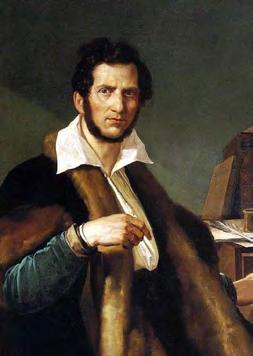
唐尼采第
唐尼采第最深入民心的形象, 是一位 19 世紀中期作品豐盛的 意大利作曲家。承接安娜.波 萊娜的空前成功,他推出了兩 部歌劇鉅著,分別是 1833 年的 《盧克齊亞.波吉亞》和 1835 年的《拉美莫爾的露琪亞》; 後 者以司各特的小說《拉美莫爾 的新娘》為藍本,唐尼采第在 六週內火速完成,於 1835 年在 那不勒斯首演。這個愛情悲劇 以蘇格蘭為場景,一對戀人露 琪亞和埃德加,來自世代為仇 的家族。第一幕(〈露琪亞, 原諒我〉)結束前,艾德加進 場告訴露琪亞他須在第二天清 早上路往法國,臨行前他想向 露琪亞的兄長恩里科伸出友誼 之手,但她懇求他保守這個愛 情秘密。他提到曾在父親的墳 前起誓要為他報復(〈在墳墓 裏〉),露琪亞安慰他(〈啊,
威爾第 Giuseppe Verdi (1813-1901)
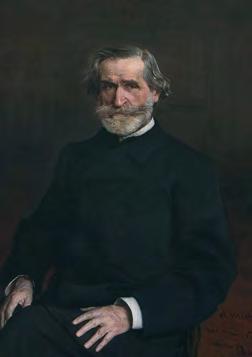
威爾第
在威爾第的第一部歌劇《奧貝 托》成功首演後,史卡拉歌劇 院的經理旋即委託他再創作了 三部歌劇,當中的喜歌劇《一 日國王》一敗塗地,但到 184041 年冬天,威爾第接了泰米斯 托克萊.索萊拉的劇本《拿布 果》。他回憶寫這套歌劇的決 定:「我帶手稿回到家,把它 狠狠的扔在桌上,本子掉在桌 上時打開了,站在前面。不知 怎的,我凝視著眼前的一頁, 讀到這行:『飛吧,思想,乘
《弄臣》是威爾第最受喜愛的 歌劇之一,是由嫉妒、復仇和 犧牲交織而成的悲劇 ; 威爾第 在 1850 年發現了這個扣人心 弦、充滿愛慾和仇恨的故事, 便認定這是他「最佳歌劇」。 故事的要角是好色的曼都瓦公 爵,他勾引朝臣的妻女,積惡 成習 ; 公爵的魔爪伸到弄臣黎 果雷多的女兒──青春純真的 吉爾達。為報復,黎果雷多 密謀暗殺 ; 可是吉爾達愛上了 公爵,寧願犧牲自己,把他 從父親主使的刺客手中救了出 來。第二幕以公爵的詠唱調場 景開始,在陰差陽錯下,吉爾 達剛被綁走,他哭唱〈她被搶 走了〉,之後公爵唱出抒情的 慢板,以為失去了吉爾達而哀 嘆。〈我彷彿看到淚水〉的形 式守舊,但憑威爾第的音樂和 戲劇觸覺,仍綻放色彩。得 知黎果雷多被蒙蔽並且他的所 謂「情婦」被俘到手,公爵開 始唱充滿歡呼和期待的跑馬歌 (〈偉大的愛情正呼喚我〉)。
羅馬將軍埃齊奧向匈奴王阿提
弗朗西斯高.戈格蒂作畫
Portrait by Francesco Coghetti
喬瓦尼.波爾蒂尼作畫
Portrait by Giovanni Boldini
54
拉豪情壯語 :「你可以擁有宇 宙,但請把意大利留給我」; 當 威爾第的《阿提拉》於 1846 年 3 月 17 日首演時,對抗奧地利 佔領意大利的「復興運動」支 持者,對這句話如獲至寶。然 而,當談到歌劇本身,音樂評 論家則毫無保留地批評 ;《音樂 世界》在 1848 年 3 月 18 日寫 道 :「《阿提拉》有一個優點, 是威爾第所有歌劇都沒有的 : 就是短……想像一下音樂創作 中每一個可能的錯誤,以及所 有可能的優點都缺失,那就是 《阿提拉》。」「序曲」以安詳 的音樂開始,勾畫和平安寧的 景觀,但滲透著厄運主題,預 告後來德魯伊人對阿提拉耳語 的警告。
在 1871 年,威爾第受委託創 作一部歌劇,以慶祝開羅總督 歌劇院開幕。劇作家杜洛可找 來考古學家兼古埃及學家馬里 耶特的一個場景 : 以古埃及為 背景,虛構一個描寫愛情、忠 誠和背叛的史詩故事,講述成 為奴隸的努比亞公主阿依達、 埃及公主阿姆內麗絲和兩人同 時愛上的士兵拉達美斯的三角 戀。正如一位評論家在首演時 所寫 :「阿依達和拉達美斯的愛 情,是真心奉獻的光輝典範, 超越了他們敵對祖國間的文化 鴻溝,歌頌一個前所未有的和 平繁榮的時代」。
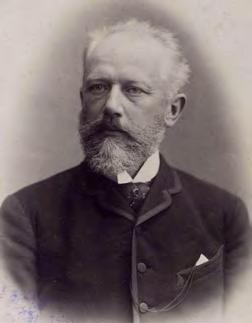
在孟菲斯國王宮殿的大廳裡, 拉達美斯演唱了歌劇第一幕 的浪漫曲〈阿依達,你粲若 天仙〉。這首被評為威爾第作 品中難度數一數二的男高音
詠嘆調,歌聲必須能承受尖銳 的小號,並跟上木管樂器的溫 暖。詠嘆調開始時沒有伴奏, 在戰鬥和愛情的對立面間交替 多次。之後,阿依達獨自一 人在大廳裡,在對父親、國家 和拉達美斯的愛之間,左右為 難。她長篇多節的詠敘調〈你 要戰勝歸來!〉,以痛苦的敘 述開頭,回應合唱部,用曲 意訴說她的困境 ;「獨白以微 妙而強烈的祈禱〈諸神,求祢 垂憐〉結束,她祈求眾神憐憫 她的痛苦」。在結尾的場景, 拉達美斯被帶到神殿之下,關 在黑暗的地窖,當祭司們合上 他頭上的大石,他唱著開場的 宣敘〈墳墓把我吞噬〉,充滿 對阿依達的溫柔思念。但他聽 到一聲呻吟,發現偷偷躲在密 室裡,準備死在他懷裡的阿依 達。他們的二重唱沒有常見 的對比樂節,而是一段延綿的 細膩抒情詩,帶著三個主題樂 思。首先,拉達美斯哀哭她的 死,而阿依達回應〈你看到了 嗎......死亡的天使〉。在最後一 刻,隨著戀人齊唱〈世界,永 別了〉,安奈莉絲跪在密室之 上,為在下面的靈魂祈求和平。
柴可夫斯基
柴可夫斯基根據普希金的短篇 小說,在靈感狂飆的 44 天中創 作了歌劇《黑桃皇后》。音樂 學家塔魯斯金寫道 :「超快的 作曲速度,結構卻異常緊湊, 想像力非凡,在整個俄羅斯歌 劇界中無出其右」。故事講述 一個潦倒的年輕軍官赫爾曼, 無意中聽到一位老女伯爵在牌
局上有戰無不勝的秘訣 ; 為了
找出這個秘密,他藉詞結識女 百爵的年輕監護麗莎,進入她 的房子並躲在她的臥室。第一 幕第二場,在麗莎的房間, 幾個女性朋友在開小派對,女 伯爵被他們打擾了,給他們一 頓貴族尊範的教訓,然後打發 了眾人。客人走後,麗莎走 到陽台(〈留下來﹐不要把門 關牢〉),向黑夜道出她對未 婚夫的矛盾感情。突然,赫 爾曼從陰影中現身,引發一 度氣氛繃緊(〈在生命最後時 刻〉); 赫爾曼要憑真誠善意 贏得麗莎,他單膝跪地唱了一 首詠嘆調〈冰清玉潔的絕色佳 人,求你原諒我〉。赫爾曼熱 情的懇求被敲門聲打斷,因 為女伯爵來檢查麗莎是否睡著 了。女伯爵離開後,赫爾曼 又再求愛,麗莎猶豫再三, 終於屈服,投進赫爾曼的擁 (〈啊,可憐我吧!〉)。
柴可夫斯基
Pyotr Ilyich Tchaikovsky (1840-1893)
55
聖桑 法國作曲家聖桑也是一位音樂 史學者,他對各種音樂發展方 向都持寬容態度。 在那個充斥 各種極端音樂實驗的時期,他 堅守傳統。在 1877 年,歌劇 傑作《參孫與大利拉》首演, 沿用聖經故事的原本,參孫要 把以色列人從邪惡的非利士人 手中解放出來,拒絕了美麗的 非利士少女大利拉的引誘,她 發誓要報復。當她發現他力量 之源來自他的頭髮時,便趁他 睡覺時剃掉了他的頭髮。被俘 虜並弄盲的參孫,在非利士人 的神廟中遭羞辱,他最終用盡 氣力,將神廟拉塌,埋倒這群 不敬神的人。在神廟的一幕, 人群在〈狂歡之舞〉中慶祝參 孫受辱。這首異教舞曲以羅馬 神話中的酒神,也是送子之神 而命名,散發著色慾與野性的
不羈,蜿蜒而誘人的旋律穿插 著巴黎舞會舞曲的曲調。到最 後,一廂情願的抒情旋律被拋 開,取而代之的是開始時的性 感放蕩。
普契尼
普契尼於 1895 年在佛羅倫斯看 到薩爾杜的劇作《托斯卡》, 由薩拉.貝爾納德擔任主角, 他立即構想一部不需龐大製作 或華麗裝飾,也不需要大堆頭 音樂的歌劇。 1900 年 1 月 14 日在羅馬首演後,歌劇評價褒 貶不一,有些評論家為情節的 殘酷而反感。故事講述歌劇女 歌手托斯卡,為拯救情人卡瓦 拉多西,不惜與殘暴的警察長 斯卡皮亞鬥爭,故事交織著愛 情、慾望、謀殺和政治陰謀。 最著名的詠嘆調〈我為藝術而 活〉,是托斯卡在面對愛人遭 受酷刑和處決時,唱出的一段 體己而絕望的祈禱。在深深的 情感動盪中,托斯卡平靜而緩 慢地展開詠嘆調,但當她質疑 自己對上帝的信靠時,情緒立 即變化,在優美的漸強之後, 音樂帶出明顯的宗教氣氛。
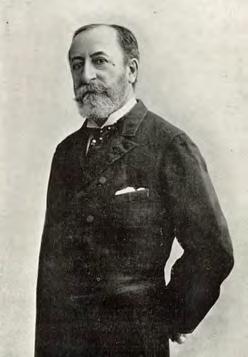
〈你的小手是何等冰冷〉是普契 尼《波希米亞生涯》中最著名 的男高音詠嘆調。在平安夜, 詩人魯道夫在家埋頭苦幹,鄰 居咪咪叩門,找人幫她點起蠟 燭。在他的房子裡,她不小 心掉了自己的鑰匙 ; 其實鑰匙 已被魯道夫暗暗藏起。當二人 在黑暗中摸索尋找,魯道夫碰 到她的手,便對她冰冷的手借 題發揮。宣敘調〈你的小手是 何等冰冷〉很快變成了大膽的
詠嘆調,而在貫穿整部歌劇的 愛情動機中,他訴說著詩人生 涯,無憂無慮又貧困。談到他 的希望和夢想時,更承認她已 經偷走了他的心。
在歌劇《蝴蝶夫人》中,精巧 細緻的情節與激昂爆發的場景 互相交替,普契尼微妙地平衡 了感傷和憤慨。《蝴蝶夫人》是 美國劇作家大衛.貝拉斯科 編劇和製作的獨幕劇,普契尼 對之一見鍾情,寫成一套歷久 不衰的不了情歌劇。淒美的 樂曲道出了年輕日本藝妓秋秋 桑(蝴蝶夫人)錯愛美國海軍 軍官平克頓的悲劇。緊隨第二 幕尾聲的長篇二重唱,蝴蝶夫 人懇求平克頓(〈愛惜我〉)。 她問 : 在異國是不是真的有人 會捕捉蝴蝶,把翅膀別在桌 子上?平克頓說這是真的, 還說 :「你知道那為什麼?這 樣她就不會飛走了」。把她擁 在懷中時,他說 :「我抓住你 了,你是我的。」她回答說 : 「是的,一生一世」,二人陶醉 在燦爛的星夜下。
聖桑 Camille Saint-Saëns (1835-1921)
56
撰文:裴德龍博士
Gaetano Donizetti
Today we remember Gaetano Donizetti as one of the most prolific Italian composers in the second quarter of the 19th century Donizetti followed the resounding success of Anna Bolena with two additional serious operas, Lucrezia Borgia of 1833 and Lucia di Lammermoor of 1835
Composed in just six weeks and first produced in Naples in 1835, the latter opera is set to a libretto based on The Bride of Lammermoor by Sir Walter Scott This tragic love story follows Lucia and Edgardo, members of opposing houses in Scotland In the closing scene of Act I, Edgardo arrives (“Lucia, perdona se ad ora inusitata ”) and tells Lucia that he must depart for France the next morning Before leaving, he wants to extend his hand in friendship to Enrico, Lucia’s brother, but she begs him to keep their love secret He reminds her that he swore, by his father’s grave (“Sulla tomba che rinserra”) that he would be avenged Lucia calms him (“Ah, soltanto il nostro foco”) and in a gesture of marriage, they exchange rings She begs him to write to her, and he reassures her before he departs The concluding duet (“Verranno a te sull’aure”) features a melody of strategic importance, as it later returns in Lucia’s famous “mad scene”.
Giuseppe Verdi
Soon after the successful première of Giuseppe Verdi’s first opera Oberto, the impresario at La Scala commissioned three further
opera The comic opera
Un giorno di regno was a disastrous failure, but in the winter of 1840-41 Verdi took on Temistocle Solera’s libretto of Nabucco The composer remembers: “I got home and with an almost violent gesture threw the manuscript on the table, standing upright in front of it The book had opened in falling on the table; without knowing how, I gazed at the page that lay before me, and read this line: ‘Va, pensiero, sull’ali dorate’ ” In an instant, Verdi felt compelled to set to music the dramatic conflict of the Hebrew slaves and their Babylonian captors The “Overture” was written at the last moment and presents a dramatic assortment of themes taken from the opera A choralelike opening in the lower brass sounds the steadfast resolve of the Hebrews in the face of Babylonian persecution, and various trumpeting military themes allude to the battles to come. The primary recurring theme originates in the “Maledetto” chorus in Part 2, and we are also treated to a pastoral version of the famous “Va pensiero” melody.
A tragic story of jealousy, vengeance and sacrifice, Rigoletto is one of Verdi’s most popular operas Verdi had discovered the gripping story of lust and revenge in 1850, and he considered it his “best opera” The story revolves around the lecherous Duke of Mantua, who is in the habit of seducing wives and daughters at his court When the Duke seduces Rigoletto’s young and innocent daughter, Gilda, Rigoletto plots
his revenge with an attempt to assassinate him However, Gilda has fallen in love with the Duke and sacrifices her life to save him from the assassin hired by her father Act 2 opens with a “Scena ed Aria” for the Duke In a case of mistaken identity, Gilda had just been abducted and after the Duke cries out “Ella mi fu rapita!”, he sings a lyrical Adagio lamenting his presumed loss of Gilda “Parmi veder le lagrime” is conventional in form, yet blossoms in Verdi’s musical and dramatic skill Learning that Rigoletto has been deceived and his presumed mistress captured, the Duke launches into a cabaletta of joy and expectations, “Possente amor mi chiama”
The Roman general Ezio proudly proclaims to Attila, King of the Huns: “You may have the universe, but leave Italy to me ” Supporters of the Italian “Risorgimento”, directed against the occupation by Austria, joyfully took up this quote when Verdi’s Attila was first performed on 17 March 1846 Music critics, however, were openly hostile when it came to the opera itself The Musical World writes on 18 March 1848: “Attila has one merit, which we have found in no other of Verdi’s operas; it is short Just imagine every possible fault in musical composition, and the absence of every possible merit, and you have Attila ” The “Overture” opens with a serene musical landscape of peace and tranquillity that is ominously permeated by the themes of
57
impending doom subsequently uttered to Attila by the Druids
Verdi was commissioned to write an opera in celebration of the opening of the Khedivial Opera House in Cairo in 1871. Camille Du Locle came up with a scenario by the archaeologist and Egyptologist Auguste Mariette. Based on an invented story set in Egyptian antiquity, we find an epic tale of love, loyalty and betrayal that chronicles the love triangle between the captive Nubian princess Aida, the Egyptian princess Amneris, and Radames the soldier they both love As a critic wrote at the time of the premiere, “Aida and Radames’ love for one another becomes a shining example of true devotion that ultimately transcends the vast cultural differences between their warring nations, heralding a time of unprecedented peace and prosperity ”
Set in the hall of the King’s palace in Memphis, the romanza “Celeste Aida” from the first act of the opera is sung by Radames. Considered one of the most difficult tenor arias in Verdi’s oeuvre, the voice must be able to withstand sharp trumpets and keep up with the warmth of the woodwinds. The aria starts unaccompanied and alternates several times between the opposing sides of battle and love. Later, alone in the hall, Aida is torn between her love for her father, her country and Radames Her long, multi-sectioned arioso “Ritorna vincitor!” opens with an anguished verbal echo of the chorus and musically
explores her predicament “The soliloquy ends with a delicate but intense prayer, ‘Numi, pieta’, in which she begs the gods to have pity on her suffering ” In the concluding scene of Aida, Radames has been taken to the lower floor of the temple and sealed up in a dark vault As priests close the stone over his head, he sings his opening recitative “La fata! Pietra sovra me si chiuse”, filled with tender thoughts of Aida However, he hears a groan and quickly finds Aida, who has secretly hidden in the vault to die in his arms Their duet has none of the usual contrasting movements, “but is rather a sustained piece of delicate lyricism with three main ideas First, Radames laments her death and Aida counters with “Vedi?… di morte l’angelo” In the final moments, with the lovers singing “O terra addio” in unison, Amneris kneels above the vault and wishes for peace for the souls that lies beneath.
Pyotr Ilyich
Tchaikovsky
Pyotr Ilyich Tchaikovsky composed his opera The Queen of Spades in 44 days of frenzied inspiration, based on a short story by Aleksandr Pushkin Richard Taruskin writes: “The inordinate speed of composition was matched by an unusually tight construction and a quality of imagination unmatched in its way in the whole of Russian opera ” The story tells of Hermann, an impoverished young officer, who overhears an old countess telling of the secret of unfailingly winning
at cards Under the pretext of a rendezvous with Lisa, the quarry’s young ward, he gains entry to the countess’ house and hides in her bedroom to gain the ultimately fatal secret The second scene of Act I is set in Lisa’s room, with a number of girl friends enjoying a little party They disturb the Countess, who gives them a little lesson in noblesse oblige, and then breaks up the party After the guests have gone, Lisa goes out to the balcony “Ne nado zatvoryat!” and expresses to the night her ambivalent feelings about her bridegroom Suddenly, Hermann appears out of the shadows, and a new wave of dramatic tension begins to build in “Ved eto moi poslednii, smertnyi chas!”
Hermann must win Lisa over in good conscience, and he delivers an arioso on one knee, “Prosti, prelestnoye sozdan’ye”. Hermann’s passionate pleas are interrupted by a knock at the door, as the Countess checks to see if Lisa is asleep. After the Countess leaves, Hermann renews his courtship, and after further hesitation, Lisa finally gives in and allows Hermann to embrace her, “O, poshchadi menya!”
Camille Saint-Saëns
French composer Camille Saint-Saëns was a scholar of music history and tolerant of a wide range of musical directions During a period of extreme musical experimentation, he remained stubbornly traditional and his operatic masterpiece Samson et Dalila was first staged in 1877 The opera
58
adheres to the original Bible story, as Samson attempts to liberate the Israelites from the evil Philistines Samson rejects the beautiful Philistine maiden Dalila, and she swears vengeance on him When she discovers that the secret of his power lies in his hair, she shaves his head while he sleeps Blinded and put on display in the Philistine temple, with one last surge of strength he brings down the temple on the godless crowd Just moments early, the crowd had gathered to celebrate Samson’s humiliation in the “Baccanale” This pagan dance, named after the mythological god of wine and fertility, exudes sensuality, eroticism and sexual unrestraint A meandering and seductive melody alternates with a tune straight from the Parisian dance hall. In the end, the central lyrical melody, full of unrequited longing, is cast aside in favour of the sensual debauchery of the opening music.
Giacomo Puccini
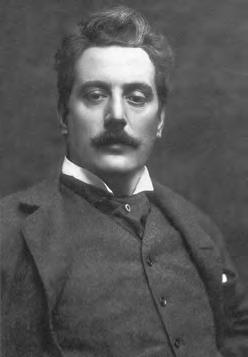
Giacomo Puccini saw Victorien Sardou’s play La Tosca in Florence in 1895 with Sarah Bernhardt in the leading role He immediately envisioned an opera without excessive proportions or a decorative spectacle, nor one that called for a superabundance of music
After its premiere in Rome on 14 January 1900, the opera suffered a mixed reception as some reviewers objected to the brutality of the plot Tosca is a story of love, lust, murder and political intrigue, as it recounts the tale of the opera singer Floria Tosca as she fights to save her lover,
Cavaradossi, from the sadistic police chief Scarpia The most famous aria “Vissi d’arte” (I lived for art) is an intimate and despairing prayer sung by Tosca as she faces the torture and execution of her beloved. In deep emotional turmoil, Tosca begins her aria quietly and slowly. However, her mood quickly changes as she questions her belief in God, and after a big, beautiful crescendo, the music takes on a decidedly religious mood.
“Che gelida manina” ("How cold your little hand is") is the best-known tenor aria from Puccini’s La bohème On Christmas Eve, struggling poet Rodolfo meets his neighbour Mimì, as she is looking for her candle While in his room, she accidentally drops her room key While they are searching for the key, which Rodolfo has been hiding, he touches her hand in
the dark and comments on its coldness The recitative “Che gelida manina” quickly turns into a bold aria as he talks about his life as a poet living in carefree poverty As he tells her about his hopes and dreams, he admits that she has stolen his heart to the love motif used throughout the opera
In Madama Butterfly, Puccini found a wonderful balance between the sentimental and the overwhelming, as moments of great delicacy alternate with emotional outbursts Puccini was fascinated by the one-act play Madama Butterfly written and produced by American playwright David Belasco It became one of opera’s most enduring tales of unrequited love, as the poignant score follows the tragic tale of CioCio-San, a young Japanese girl in a pretend marriage with American naval officer Pinkerton As the long duet that concludes Act 2 continues “Vogliatemi bene” (Love me, please) and finds Butterfly pleading with Pinkerton She asks whether it is true that in foreign lands, a man will catch a butterfly and pin its wings to a table Pinkerton admits that it is true, but explains, "Do you know why? So that she will not fly away " As he embraces her, he says, “I have caught you You are mine”, and she answers, “Yes, for life”, as they revel in the glorious starry night above them
Text: Dr. Georg Predota
59
普契尼 Giacomo Puccini (1858-1924)
歌詞 Lyrics
Gaetano Donizetti
“Lucia, perdona se ad ora inusitata..” Lucia di Lammermoor
EDGARDO
Lucia, perdona se ad ora inusitata io vederti chiedea: ragion possente a ciò mi trasse. Prìa che in ciel biancheggi l'alba novella dalle patrie sponde lungi sarò.
LUCIA
Che dici?
EDGARDO
Pe' Franchi lidi amici sciolgo le vele; ivi trattar m'è dato le sorti della Scozia.
LUCIA
E me nel pianto abbandoni così?
EDGARDO
Prìa di lasciarti
Ashton mi vegga...io stenderò placato a lui la destra e la tua destra, pegno fra noi di pace, chiederò.
LUCIA
Che ascolto!
Ah, no...rimanga nel silenzio sepolto per or l'arcano affetto.
Verdi
"È strano !... Ah, fors’è lui... Sempre libera" La traviata
VIOLETTA
È strano!… è strano!… in core scolpiti ho quegli accenti! Sarìa per mia sventura un serio amore?…
Che risolvi, o turbata anima mia?… Null’uom ancora t’accendeva… o
Gaetano Donizetti
“Lucia, forgive me for asking to see you” from Lucia di Lammermoor
EDGARDO
Lucia, forgive me for asking to see you at this unusual hour: it is for a very important reason. Before dawn whitens the morning sky I shall be far from my native land.
LUCIA
What are you saying?
EDGARDO
I am to set sail for France's friendly shores: there I must work for Scotland's future.
LUCIA
And you leave me here to weep?
EDGARDO
Before leaving you, I must see Ashton... I will offer him the hand of peace, and ask your hand in marriage to seal our pact.
LUCIA
What do I hear?
Ah, no...let our love remain a secret for now.
Verdi
”How strange!...Always free” from La traviata
VIOLETTA
How strange! How strange! His words are engraved upon my heart! Would a true love be a misfortune for me?
What do you think, oh my troubled
唐尼采第 〈露琪亞,原諒我〉,選自 《拉美莫爾的露琪亞》
埃德加
露琪亞,原諒我
在夜深時分相約會面 ; 我有重要 的事。
在黎明來到,天空泛白以前, 我將已 離家別國。
露琪亞 你說甚麼?
埃德加 我將揚帆,駛向友邦法國 的海岸。在那裏,我要為 蘇格蘭的未來奮鬥。
露琪亞 所以,你遺下我 在這裏啜泣? 埃德加 離開之前, 我要見思里科……我會伸出 和平之手,求他應允我 執子之手,與子偕老。
露琪亞 我聽到甚麼? 啊,不……我們的愛 暫且不要公開。
威爾第
〈神奇,多神奇!——無拘無束 的我〉,選自《茶花女》 薇奧列達 神奇,多神奇!他的話 烙印在我心上! 遇見真愛,對我來說是悲劇嗎? 啊,我的靈魂,你會怎樣抉擇? 從來沒有男人使我動情,這喜悅,
60
gioia
ch’io non conobbi, essere amata amando!…
E sdegnarla poss’io per l’aride follie del viver mio?
VIOLETTA
Ah, forse è lui che l’anima solinga ne’ tumulti godea sovente pingere de’ suoi colori occulti!… Lui che modesto e vigile all’egre soglie ascese, e nuova febbre accese, destandomi all’amor. A quell’amor ch’è palpito dell’universo intero, misterioso, altero, croce e delizia al cor. Follie!… follie!… delirio vano è questo!…
in quai sognivmi perdo, povera donna, sola abbandonata in questo popoloso deserto che appellano Parigi, che spero or più?… che far degg’io?… Gioire, di voluttà nei vortici finire. Sempre libera degg’io folleggiar di gioia in gioia, vo’ che scorra il viver mio pei sentieri del piacer, nasca il giorno, o il giorno muoia, sempre lieta ne’ ritrovi a diletti sempre nuovi dee volare il mio pensier.
ALFREDO (off stage)
Amore, amor è palpito…
VIOLETTA Oh!
ALFREDO
…dell’universo intero …
VIOLETTA
soul?
No man has ever kindled you, O joy
that I have never known – to love, to be loved!
And can I disdain it for the arid follies of my life? Ah, perhaps it is him whom my soul, lonely in the tumult, Loved to paint so often With his hidden colors! He, so humble yet watchful, Rose upon me on my sickbed, awakening a new fever, the fever of love. That love, the very heartbeat of the entire universeMysterious, lofty, both torment and delight of the heart.
Folly! Folly! What vain delirium is this!
A poor woman, alone, forsaken in this crowded desert which they call Paris. What can I hope for now? What should I do? Revel in the vortex of earthly delights and perish.
Revel! Ah!
Always free, I must go Frolicking from joy to joy. My life shall flow along the paths of pleasure. As each day dawns, As each day dies, I gladly find the new delights That make my thoughts soar.
ALFREDO
Love is the very heartbeat...
VIOLETTA
Oh!
我此生從未有過——愛和被愛! 我的人生,是如此枯燥乏味, 我甘心對愛不屑一顧嗎? 啊,可能他就是 我的靈魂,
在寂寞煎熬中,
暗暗渴望的真命天子!
我處處留心,卻沒為意; 當我臥病在床,他曾來過, 使我再次焚燒,
發愛情的燒。
這份愛,是宇宙 的氣息本身——
神祕又高貴,
既像十架壓迫我心,又令其狂喜。 蠢話!蠢話!全是胡言亂語! 不過是孤獨的苦女人,
迷失在
這擠擁的荒漠, 男人都來尋歡的,巴黎。 我有甚麼指望?
我應怎樣做?沈醉在 塵世歡愉的漩渦中。
狂歡作樂!啊! 無拘無束的我,就該 縱情歡樂,無始無終。 我的生命 永在享樂的軌道上。
一天來,
一天又去, 我滿心歡喜,投向新的快樂, 讓靈魂展翅飛昇。
阿菲度 愛,是宇宙的……
薇奧列達
啊!
阿菲度
……氣息本身——
61
Oh amore.
ALFREDO
Misterioso, misterioso, altero, croce, croce e delizia, croce e delizia, delizia al cor.
VIOLETTA
Follie! follie! Ah sì! Gioir, gioir! Sempre libera degg’io folleggiare di gioia in gioia, vo’ che scorra il viver mio pei sentieri del piacer.
Nasca il giorno, o il giorno muoia, sempre lieta ne’ ritrovi, a diletti sempre nuovi, dee volare il mio pensier.
ALFREDO
...of the entire universe–
VIOLETTA
Love.
ALFREDO
Mysterious, lofty, both torment and delight torment and delight of the heart.
VIOLETTA
Folly! Folly! Ah yes! From joy to joy, Always free, I must go Frolicking from joy to joy. My life shall flow along the paths of pleasure. As each day dawns, As each day dies, I gladly find the new delights That make my thoughts soar.
Giuseppe Verdi
“Ella mi fu rapita...Parmi veder le lagrime,” Rigoletto
Ella mi fu rapita!
E quando, o ciel... ne’ brevi istanti, prima che il mio presagio interno sull’orma corsa ancora mi spignesse!
Schiuso era l’uscio!... la magion deserta!
E dove ora sarà quell’angiol caro?... colei che poté prima in questo core destar la fiamma di costanti affetti?...
colei sì pura, al cui modesto accento quasi tratto a virtù talor mi credo!...
Ella mi fu rapita!
E chi l’ardiva?... Ma ne avrò vendetta:
lo chiede il pianto della mia diletta. Parmi veder le lagrime scorrenti da quel ciglio, quando fra il duolo e l’ansia
Giuseppe Verdi
“She has been stolen from me… I seem to see the tears” from Rigoletto
She has been stolen from me! When, O heaven? In those few moments, before some inner voice made me hastily retrace my steps! The gate was open, the house deserted! And where is she now, that dear angel?
She who first kindled my heart with the flame of a constant affection?
So pure that her modest demeanour almost convinced me to lead a virtuous life!
She has been stolen from me! And who dared do this? ... But I shall be avenged. The tears of my beloved demand it. I seem to see the tears
薇奧列達 愛。
阿菲度 神祕又高貴,
既像十架壓迫我心,又令其狂喜。 像十架壓迫我心,又令其狂喜。
薇奧列達
蠢話!蠢話!啊,是!讓我尋歡 作樂,
無拘無束的我,就該 縱情歡樂,無始無終。 我的生命 永在享樂的軌道上。
一天來,
一天又去, 我滿心歡喜,投向新的快樂, 讓靈魂展翅飛昇。
威爾第
〈她被搶走了——我彷彿看到淚 水〉,選自《弄臣》
她被搶走了!
天啊,什麼時候?在那些瞬間, 在一些內心的聲音
讓我急忙折返之前! 大門敞開,
房子空無一人!
她現在在哪兒,那親愛的天使? 那個最先以不變的愛火
點燃我心的她?
她謙遜的舉止是如此純淨, 幾乎說服我過上道德高尚的生活! 她被搶走了!
誰敢這樣做?……但我會報仇。 我心上人的淚水要求它。
我彷彿看到淚水 從她的眼睛流下,
這突襲使她
困惑和害怕,
因記起我們的愛
62
del subito periglio, dell’amor nostro memore, il suo Gualtier chiamò. Ned ei potea soccorrerti, cara fanciulla amata, ei che vorria coll’anima farti quaggiù beata; ei che le sfere agli angeli, per te non invidiò.
Giuseppe Verdi
"Celeste Aida", Aida
Celeste Aida, forma divina, mistico serto di luce e fior; del mio pensiero tu sei regina, tu di mia vita sei lo splendor. Il tuo bel cielo vorrei ridarti, le dolci brezze del patrio suol; un regal serto sul crin posarti, ergerti un trono vicino al sol
coursing from her eyes as, bewildered and afraid at the surprise attack, remembering our love, she called her Walter's name. But could not defend you, sweet, beloved maid; he who would pledge his very soul to bring you happiness; he who, in loving you, envied not even the angels.
Giuseppe Verdi
“Heavenly Aida” from Aida Heavenly Aida, form divine, mystical garland of light and flowers, of my thoughts you are the queen, you are the light of my life. I would return to you your lovely sky, the gentle breezes of your native land; a royal crown on your brow I would set, build you a throne next to the sun.
Giuseppe Verdi
“Ritorna vincitor!,” Aida Ritorna vincitor!
E dal mio labbro uscì l'empia parola!
Vincitor del padre mio di lui Che impugna l'armi per me Per ridonarmi una patria, Una reggia e il nome illustre Che qui celar m'è forza!
Vincitor de'miei fratelli ond'io lo vegga, Tinto del sangue amato, Trionfar nel plauso dell'Egizie coorti!
E dietro il carro, Un Re, mio padre di catene avvinto!
L'insana parola o Numi sperdete!
Giuseppe Verdi
“Return, victor!” from Aida Return, victor!
And from my lips escapes the impious word!
Victor over my fatherover the armies defending my country, my palace, and the illustrious name that is my sky, my strength! Victor over my brothers, I will see with whose loved blood is stainedTriumphant in the applause of Egyptian troops. And behind his chariot, a king, my father, the captive of this victor!
The insane word, o gods, forget! To the bosom of his father return
她呼喚她的沃爾特的名字。 可是我無法保護你, 我的寶貝、我心愛的少女; 那個以自己靈魂作保證 會給你帶來快樂的男人; 那個因愛上你連天使 也不會羨慕的男人。
威爾第
〈阿依達,你粲若天仙〉,選自 《阿依達》
阿依達,你粲若天仙,姿態曼妙, 如閃閃生輝的神祕花冠。 你是我朝思暮想的皇后, 是我生命的光。
我會還給你可愛的天空, 和故國和煦的清風。
我會將皇冠坐落你的額上, 在太陽之旁,為你築建皇座。
威爾第
〈你要戰勝歸來!〉,選自《阿 依達》
你要戰勝歸來!
如此忤逆之語,竟自我唇間吐出! 我要他戰勝父親,
戰勝
捍衛我祖國的軍隊、 我的皇宮,和那顯赫名字—— 它是我的天、我的力量! 我要他戰勝我的兄弟,我將看見 他沾滿他們的血,
在埃及軍隊的歡呼聲中班師回朝。 戰車後,
是一位國王,我的父親,勝者的 俘虜!
63
Al seno d'un padre la figlia rendete, Struggete le squadre dei nostril oppressor!
Ah! sventurata! Che dissi?
E l'amor mio?
Dunque scordar poss'io questo fervido amore
Che, oppressa e schiava, Come raggio di sol qui mi beava?
Imprecherò la morte a Radamès a lui ch'amo pur tanto!
Ah! non fu interra mai da più crudeli
Angoscie un core affranto!
I sacri nomi di padre d'amante, Nè profferir poss'io nè ricordar
Per l'un per l'altro confusa tremante
Io piangere vorrei pregar.
Ma la mia prece in bestemmia si muta
Delitto è il pianto a me colpa il sospir
In notte cupa la mente è perduta
E nell'ansia crudel vorrei morir.
Numi, pietà del mio soffrir!
Speme non v'ha pel mio dolor
Amor fatal tremendo amore
Spezzami il cor, fammi morir!
Giuseppe Verdi
“La fatal pietra sovra me si chiuse…O terra, addio,” Aida RADAMÈS
La fatal pietra sovra me si chiuse. Ecco la tomba mia.
Del dì la luce più non vedrò. Non rivedrò più Aida.
Aida, ove sei tu? Possa tu almeno viver felice e la mia sorte orrenda sempre ignorar! Qual gemito!
Una larva, una vision!
No! forma umana è questa! Ciel! Aida!
AIDA
Son io.
his daughter struggling against the squadrons of our oppressor!
Ah! unhappy one! What did I say? And my love?
Can I ever forget the fervent love that oppresses and enslaves! Like rays of the sun which blesses me?
I will call for death to Radames, To him that I love forever! never on earth, by more cruelty was a heart torn!
In the sacred name of my father, who I love, I cannot offer or recall For one or the other confused, trembling, I weep and want to pray. But my prayer becomes blasphemy A crime are my tears, my sighs are my sin.
In night-darkness the mind is lost. And in cruel anguish, I want to die. Gods, have pity on my suffering! There is no hope in my woe Fatal love, tremendous love, Break my heart or let me die!
Giuseppe Verdi
“Now has the tomb engulfed me… Farewell, O earth” from Aida RADAMÈS
Now has the tomb engulfed me. I never more The light shall behold. Ne'er more see gentle Aida. Dear Aida, where now art thou? whate'er befalls me May'st thou be happy. Ne'er may my frightful doom
Reach thy gentle ear. What groan was that? Tis a phantom! Some vision dread. No! sure that
這瘋狂的字眼,啊,諸神,請遺忘! 求祢讓一名女兒回到父親懷中, 殲滅壓迫者的隊伍!
啊!喪亂的我,在說甚麼? 我的愛人怎麼辦? 我能忘記熾熱的愛情
如何壓迫和奴役我心,
又怎樣如縷縷陽光,賜我福樂? 我這樣求,是在催拉達梅斯的命, 我的一生所愛!
世上沒有更殘忍的方式 將心撕開兩半了! 我所愛的父親,他的神聖名字 我說不出、記不起。
夾在兩人之間,我惶惑顫抖, 不住飲泣,亟欲禱告。
但我的祈禱,只是褻瀆, 我的眼淚是罪惡,嘆息是過失。 我的心思,迷失在暗夜中。 在悲傷的極刑下,我欲死去。 諸神,求祢垂憐,體察我的苦痛! 我的苦境,沒有一絲希望。 致命的愛情,偉大的愛情, 打碎我心,讓我死去罷!
威爾第
〈墳墓把我吞噬——別矣,大地 啊〉,選自《阿依達》
拉達梅斯
墳墓把我吞噬。我再也
見不到光,再也見不到溫柔的阿依 達。
親愛的阿依達,你在哪裡?無論我 遭遇什麼,
願你快樂。我可怕的厄運永不要 落在你溫柔的耳朵。那是誰的呻 吟?是鬼魅!
某個可怕的幻象。不!那形體定是 人類!
天啊!那是阿依達。
64
RADAMÈS
Tu, in questa tomba!
AIDA
Presago il core della tua condanna, in questa tomba che per te s'apriva io penetrai furtiva, e qui, lontana da ogni umano sguardo, nelle tue braccia desiai morire.
RADAMÈS
Morir! Si pura e bella! Morir per me d'amore; degli anni tuoi del fiore fuggir la vita!
T'avea il cielo per l'amor creata, ed io t'uccido per averti amata! No, non morrai!
Troppo t'amai! Troppo sei bella!
AIDA
Vedi? Di morte l'angelo radiante a noi s'appressa, ne adduce a eterni gaudii sovra i suoi vanni d'or. Già veggo il ciel dischiudersi, ivi ogni affanno cessa, ivi comincia l'estasi d'un immortale amor.
AIDA
Triste canto!
Il nostro inno di morte. Invan!
Tutto è finito sulla terra per noi.
RADAMÈS
Il tripudio dei sacerdoti. Nè le mie forti braccia smuovere ti potranno, o fatal pietra!
È vero! È vero!
AIDA
O terra, addio; addio, valle di pianti, sogno di gaudio che in dolor svanì.
form is human!
Heaven! 'tis Aida.
AIDA
Yes! Aida!
RADAMÈS
Thou, with me here buried!
AIDA
My heart forboded this thy dreadful sentence, And to this tomb that shuts on thee its portal I crept unseen by mortal. Here from all where none can behold us, Clasped in thy arms I resolved to perish.
RADAMÈS
To perish! so pure and lovely! To die, thine own self dooming, In all thy beauty blooming, Fade thus forever!
Thou whom the heav'n only for love created But to destroy thee was my love then fated!
Ah no! those eyes So dear I prize
For death are too lovely!
AIDA
See'st thou where death in angel guise
With heavenly radiance beaming, Would waft us to eternal joys On golden wings above!
See heaven's gates are open wide Where tears are never streaming, Where only bliss and joy reside And never fading love!
AIDA
That sad chanting!
It is our death chant resounding! 'Tis vain! all is over Hope on earth have we.
阿依達 對!阿依達!
拉達梅斯
你,與我一同葬在這裡吧!
阿依達
我的心早已預感你這可怕的判決, 我爬向這個對你關上門扉的墳墓, 凡人看不見我。
這兒人們無從看到我們, 我決定在你緊擁著我的臂彎中死去。 拉達梅斯 死去!那麼純潔和可愛! 死亡!你自己殞滅,
你的美麗正綻放, 卻這樣永遠消逝!
上天只為愛而創造你,
然而毀滅你卻是我命中註定的愛! 啊不!那些我如此珍重的 眼睛
太漂亮了不會死!
阿依達 你看到了嗎,死亡在天使的偽裝下 散發著天堂的光輝,
乘著上面它金色的翅膀 我們將會抵達永恒的歡樂。
你看,天堂的大門已經敞開,x 在那裡淚不會流,
在那裡只有幸福和快樂 以及永不褪色的愛!
阿依達
那悲傷的吟唱!
那是我們死亡的歌在迴盪著! 這是徒然,一切都完了。
我們在世上有盼望。
拉達梅斯 這是祭司的 神聖之舞!
我健壯的筋骨
65
A noi si schiude il ciel e l'alme erranti
volano al raggio dell'eterno dì.
AIDA, RADAMÈS
O terra, addio, ecc.
AMNERIS
Pace, t'imploro, salma adorata, Issi placata ti schiuda il ciel!
RADAMÈS
Tis the sacred dance
Of the Priesthood!
Cannot my lusty sinews
Move from its place this fatal stone?
I fear it! I fear it!
AIDA
Farewell, O earth! farewell thou vale of sorrow!
Brief dream of joy condemned to end in woe!
See, brightly opens the sky, an endless morrow
There all unshadowed eternal shall glow!
AIDA, RADAMÈS
Farewell, O earth! Etc.
AMNERIS
Peace everlasting, lov'd one, mayst thou know Isis, relenting, greet thee on high!
Pyotr Ilyich Tchaikovsky
“Ne nado zatvoryat!...
poshchadi menya!,” The Queen of Spades
LIZA
Ne nado zatvoryat, ostav!
MASHA
Ne prostudilis by, baryshnya!
LIZA
Nyet, Masha, Noch tak tepla, tak khorosha!
MASHA
Prikazhete pomoch razdestsya!
LIZA
Nyet, ya sama. Stupai ty spat!
MASHA
Uzh pozdno, baryshnya...
Pyotr Ilyich Tchaikovsky
“Stay, do not shut the door... O, pity me!,” from The Queen of Spades
LISA
Stay, do not shut the door, 'tis close.
MARY
Will not my lady soon feel chilly?
LISA No, Mary, nights now are warmwarm and so still.
MARY
My lady does not need me now?
LISA No, many thanks. Now go to bed.
MARY
Dear lady, it: grows late.
不能讓我移開這致命的石頭嗎? 我懼怕它!我懼怕它!
阿依達
別矣,大地啊!再見,悲傷的 山谷!
快樂短暫的美夢注定以悲哀告終! 看呀,天空燦爛地打開無盡的明天, 在那裡所有永恒的、無遮蔽的將會 照耀!
阿依達、拉達梅斯
別了,地球啊!
安奈莉絲
永恒的和平,親愛的,願你知道 伊希斯心軟了,在高處向你問好!
柴可夫斯基
〈留下來,不要把門關牢—— 啊,可憐我吧!〉,選自《黑桃 皇后》
麗莎:
留下來,不要把門關牢,這樣就 夠了。
瑪莉:
小姐不怕夜裏會冷麼?
麗莎:
不,瑪莉,最近晚上都很和暖—和 暖而平靜。
瑪莉:
小姐沒有甚麼吩咐了嗎?
麗莎:
沒有了,謝謝。現在你可就寢去。
66
LIZA
Ostav menya, stupai!
Zachem zhe eti slyyozy, Zachem oni?
Moi devichi gryozy, Vy izmenili mne!
Vot kak vy opravdalis nayavu!
Ya zhizn svoyu vruchila nyne
knyazyu, Izbranniku po serdtsu, sushchestvu, Umom, krasoyu, znatnostyu, bogatstvom, Dostoinomu podrugi, ne takoi kak ya.
Kto anaten, kto krasiv, kto staten kak on? Nikto!
I chto zhe? Ya toskoi i strakhom vsya polna, Drozhu i plachu!
Zachem zhe ety slyozy, Zachem oni?
Moi devichi gryozy, Vy izmenili mne!
I tyazhelo i satrashno!...
No k chemu obmanyvat sebya?
Ya zdes odna, vokrug vsyo tikho spit...
O slushai, noch! Tebe odnoi mogu poverit
tainu dushi moyei!
Ona mrachna kak ty, Ona kak vzor ochei pechalny, Pokoi i schastye u menya otnyavshikh...
Tsaritsa noch! Kak ty, krasvitsa, Kak angel padshi prekrasen on, V yevo glazakh ogon playashchei strasti, Kak chudny son menya manit, I vsya dusha moya vo vlasti yevo!
O noch! O noch!
HERMANN
Ostanovites, umolyayu vas!
LISA
Well, leave me. Good-night. O, burning tears of girlhood, Why must ye flow
Alas, youth's radiant visions, Ah, say, why must ye go? Thus are my dreams of happiness fulfilled, To-day my troth unto the Prince was plighted, The husband of my choice; one whose cleverness, Good looks, and noble birth and riches, Might well attract a woman Of greater worth than Distinghish´d, Chivalrous, who compare with him? Ah, none!
Then wherefore should I feel this sense of fear and gloom?
I weep and tremble, O, burning tears of girlhood, Why must ye flow?
Alas, youth's radiant visions, Ah, say, why must ye go? I feel so sad and fearful I strive in vain to cheat my heart, I am alone, the world is now asleep.
O, hear me, Night, to thee I may unfold
The secret sorrow that chills my youth.
'Tis dark and sad as thou. 'Tis mournful as his longing glances
From eyes that rob me of my peace and gladness, O, Queen of Night, as dark, as proud as thou, A fallen angel to me he seems. His eyes with wild and ardent passion burning.
A wondrous dream possesses me, and all
瑪莉: 親愛的小姐,時候不早了。
麗莎:
那麼,你退下吧。晚安。
啊,豆蔻年華的熾熱之淚, 為何你偏要流淌
唉,青春少艾的熱情憧憬, 啊,說,為何你執意離去? 我夢寐以求的幸福終於如願, 今天我許下婚誓,與王子結成夫妻, 是我甘願下嫁的丈夫 ; 他的聰明 才智、
英俊瀟灑、顯赫身世, 定吸引比我優秀的女子傾慕。 非凡出眾、
風度翩翩,誰能比肩?啊,並無 此人!
那麼我心中的恐懼絕望從何而來? 我淚流滿臉、渾身抖顫, 啊,豆蔻年華的熾熱之淚, 為何你偏要流淌
唉,青春少艾的熱情憧憬, 啊,說,為何你執意離去? 我只感到無比哀傷和恐懼 輾轉反側,也無法欺瞞我心意, 沉睡的世間,我隻身孤影 啊,聽吧,黑夜,聽我向你坦誠 傾訴
隱藏我心絕望,讓我純潔之心變得 冷漠。
我心如你般黑暗而哀傷。
我的日子充滿憂鬱,尤當他愛慕眼神 從他雙眼綻放,奪走我內心平靜與 歡樂,
啊,黑夜女神,他像你般陰沉驕縱, 如誤墮凡間的天使般撩動我心。 他雙眸燃燒着野性激切的熱情。
如美麗夢境佔據我思緒, 像魔咒令我靈魂如癡如醉,無法自拔 啊,黑夜,啊,黑夜。
67
LIZA
Zachem vy zdes, bezumny chelovek?
Chto nado vam?
HERMANN Prostisya!
Ne ukhodite zhe! Ostantes!
Ya sam uidu sichas
I boleye syuda ne vozvrashchus... Odnu minutu!... Chto vam stoit?
K vam umirayushchi vzyvaet.
LIZA
Zachem, zachem vy zdes? Uidite!
HERMANN Nyet!
LIZA
Ya zakrichu!
HERMANN
Krichite! Zovite vsekh!
Ya vsyo ravno umru, odin il pir dugikh.
No yesli yest, krasavitsa, V tebye khot iskra sostradanya, To postoi, ne ukhodi!
LIZA
O bozhe, bozhe!
HERMANN
Ved eto moi posledny, smertny chas!
Svoi prigovor uznal sevodnya ya, Drugomu ty, zhestokaya, Svoyo vruchaesh serdtse!
Dai umeret, tebya blagoslovlyaya, a ne klyanya!
Mogu li den prozhit, Kogda chuzhaya ty dlya menya?
Ya zhil toboi: odno lish chuvstvo
I mysl upornaya odna vladeli mnoi!
Pogibnu ya, No pered tem chtob s zhizniyu porstitsya,
My soul is thrall and captive to its spell.
O, Night, O, Night.
HERMAN
Wait but one moment, I must speak with you.
LISA
What brings you here, O rash, and foolish man? Why seek me here?
HERMAN
To say farewell. O, do not leave me thus! One moment-
Then I myself will go my way And leave you evermore in peace. O, spare one moment, 'tis so little. A dying man you see before you.
LISA
Now, say what brings you here then leave me.
HERMAN No!
LISA
I'll call for help.
HERMAN
Call, then, and rouse the household.
I care not how I die, in public or alone.
But if your heart still holds a spark Of human feeling, or of pity, You will not go, but hear my words.
LISA
Good angels, help me!
HERMAN
I come to you Tin this my life´s last hour, To-day I learn'd that you had made your choice And plighted troth, alas, for aye, My doom unkindly sealing.
赫爾曼:
且慢片刻,
我有話必須跟你說。
麗莎:
你在這裏做甚麼,啊,莽撞又愚笨 的人?
你為何來這裏找我?
赫爾曼: 我來向你道別。
啊,先別離我而去!只此一刻— 然後我會告辭,走我的路 從此不再打擾,還你安寧。
啊,就施捨一刻時間,緲小的一刻。 你眼前的是個快要死去的人。
麗莎:
馬上把話說清楚,然後離開。
赫爾曼:
不!
麗莎: 我要大叫人來了。
赫爾曼:
那麼,你叫吧,把屋裏所有人都 吵醒。
被處死於大庭廣眾或是孤獨終老, 我滿不在乎,
但若你心中尚存一點火花, 不管出自人性情感、抑或憐憫之心, 你絕不會忍心離去,並願細聽我將 所說。
麗莎:
慈悲的天神,我求祢指引!
赫爾曼:
在生命最後時刻,我來到你面前, 就在今天,我得知你心意已決 並許下婚誓,唉,從此, 殘酷地注定我今生無法逃脫的 悲劇。
68
Dai mne khot mig odin pobyt s toboyu
Vdvoyom sred chudnoi tishiny nochnoi, Krasoi rvoyei dai mne upitsya!
Potom pust smert i s nei pokoi!
Stoi tak! O, kak ty khorosha!
LIZA
Uidite! Uidite!
HERMANN
Krasavitsa, boginya! Angel!
Prosti, prelestnoe sozdanye, Chto ya narushil tvoi pokoi, Prosti! No strastnovo ne otvergai priznanya, Ne otvergai s toskoi!
O pozhalei, ya, umiraya, Nesu k tebe moyu molbu:
Vzglyani s vysot nebesnykh raya
Na smertnyu borbu
Dushi isterzannoi muchenyem, Iyubvi k tebe.
O szhalsya, I dukh moi laskoi, Sozhalenyem slezoi rvoyei sogrei!
Ty plachesh? Ty?
Chto znachat ety slyozy?
Ne gosnich i zhaleesh!
Blagodaryu tebya!
Krasavitsa! Boginya! Angel!
GRAFIN
Liza, otvori!
LIZA
Grafinya! Bozhe pravy! Ya pogibla!
Pozdno! Syuda!
GRAFIN
Chto ty ne spish? Zachem odeta?
Cho tur za shum?
LIZA
Ya, babushka, po komnate
khodila... Mne ne spitsya...
GRAFIN
Zachem balkon otkryt?
Chot eto za fantazii takie?
Since I must die, bestow on me one blessing, Refuse me not. Could I survive the day
That sees us parted and for evermore, Yours was my life, and yours my worship, You were the one and only dream That filled my heart. The end has come, yet ere I bid This world farewell for ever, Bestow one passing hour upon my sorrow.
Ah, let me stay near you while night is still, And with your beauty lull my anguish,
Then death may come and bring me peace. Stay there; how beautiful you are!
LISA
O, leave me, O, leave me.
HERMAN
Thou art my queen, my goddess, my angel.
Forgive me, bright celestial vision, That I have spoilt thy peace of mind ;
Yet do not go in fear and anger, But to my grief be kind.
O, pity me, my life is over, My dying prayer to thee I make; Look down, my love, in pity.
I perish for thy sake.
Ah, if my soul is racked with anguish,
'Tis all for love of thee. My heart is weary, show compassion.
O, shed one tear for me.
Thou weepest, thou!
How may read this sadness?
Forgiveness? Yes, and pity?
God's angels bless thee, sweet.
既然我必死無疑,就賜我最後祝福, 不要拒絕我請求。要我從此與你分離 我能否承受這一天的到來, 你曾是我的生命,是我崇拜的一切, 你曾是我今生唯一的夢, 是佔據我心的夢。
如今一切即將結束,
在我永別一切之前,
施捨我一點時間與哀愁共存。
啊,趁黑闌人靜,讓我靜靠你身旁, 讓你美貌麻醉我悲痛,
方靜待死亡到來,讓我安息。
不要動 ; 讓我看清楚你是多麼美 麗!
麗莎: 啊,走吧,啊,離開我吧。
赫爾曼:
你是我的皇后,我的女神,我的天使。 冰清玉潔的絕色佳人,求你原諒我, 原諒我打擾你平靜的思緒; 但不要感到恐懼和憤怒, 請以善良回應我的悲傷。
啊,可憐我吧,我一生即將完結, 我垂死的祈求都向你傾訴; 我親愛的,求你憐憫俯視。 我身為你而逝。
啊,若我靈魂受盡悲痛折磨, 全因我對你萬般愛慕。
我已心力交瘁,你能否施捨同情。 啊,那怕只為我流下一滴眼淚。 你果然在流淚,尊貴的你! 我該怎麼解讀這哀愁?
是寬恕嗎?是,還有憐憫? 願神的天使祝福你,甜蜜可人兒。 你是我的皇后,我的女神,我的 天使。
伯爵夫人:
麗莎,開門,快開門。
麗莎:
69
Smotri ty! Ne duri! Seichas lozhitsya! Slyshish?
LIZA
Ya, babushka, seichas!
GRAFIN
Ne spitsya!... slykhano li eto?
Un vremena! Ne spitsya? Seichas lozhis!
LIZA
Ya slushayus! Prostite!
GRAFIN
A ya-to slyshu shum; ty babushku trevozhish!
Idyomte!
I glupostei ne smei tut zatevat!
HERMANN
"Kto strastno lyubya pridyot, chtob naverno uznat ot tebya tri karty, tri karty, tri karty!"
Mogilnym kholodom
poveyalo vokrug!
O strashny prizrak!
Smert, ya ne khochu tebya!
O poshchadi menya!
Smert neskolko minut tomu nazad
Kazalas mne spasenem, Pochti chto schastem!
Teper ne to,
Ona strashna mne!
Ty mne zaryu raskryla schastya, Ya zhit khochu i umeret s toboi!
LIZA
Bezumny chelovek, chto vy khtite ot menya, Chto sdelat ya mogu?
HERMANN
Reshit moyu sudbu!
LIZA
Szhaltes, vy gubite menya! Uidite, ya proshu vas, ya velyu vam!
HERMANN
Thou art my queen, my goddess, my angel.
COUNTESS
Lisa, open, quick.
LISA
Heav'n help us! I am undone... The window, too late, now! . . In here.
COUNTESS
What, not asleep? Not yet undress'd? What means this noise.
LISA
O, Grandmamma, I could not get to sleep to-night, I feel so restless.
COUNTESS
This door wide open still; Come, what's the matter, child? What silly fancies, what nonsense? 'Tis enough now, quick to bed. You hear me?
LISA
Yes, Grandmamma, I'11 go.
COUNTESS
Not sleepy! That´s a pretty story. Fine hours to keep. Not sleepy! To bed at once.
LISA
Forgive me, I´m going.
COUNTESS
It startled me from slumber. Good-night, child. Let's hear no more of all these silly tricks.
HERMAN
"When a third man impell'd by despair
From thy bosom the secret shall tear Of three cards, three cards, three cards."
I feel a death-like chill
That runs through every vein.
O, hideous spectre, Death!
天啊,救救我們!我快崩潰了… 窗戶在那邊,來不及了,快!… 躲進去。
伯爵夫人:
這道門怎麼還敞開;
來,孩子,怎麼了?
又有甚麼傻點子,又在搗甚麼蛋? 現在都玩夠了,快點就寢。
你聽到嗎?
麗莎:
是的,祖母,我一會兒便去睡。
伯爵夫人:
還不想睡呢!真是個美妙的藉口。 熬夜至這個鐘點。還不想睡!馬上 去睡。
麗莎: 對不起,我馬上去。
伯爵夫人:
是這聲響把我從夢中吵醒。 晚安,孩子。
不要再讓我聽見你耍甚麼傻玩意了。
赫爾曼:
「當絕望驅使第三者前來 你胸前的秘密將被揭開
三張紙牌,三張紙牌,三張紙牌。」 我感到一股人之將死的寒意 在我每條血脈中竄動。
啊,死亡,這可惡的魔魅! 消失吧,別再緊隨。
啊,麗莎,可憐我吧! 方才,死亡彷彿是我的摯友 是我唯一、最後的救贖, 是迎接我的避難所。
如今一切都改變,我卻害怕它到來, 它的出現令我畏懼。
方才是你賜我盼望和勇氣, 從此我只為你而生、為你而死。
麗莎:
啊,你這個可憐、哀傷的人!
70
Tak znachit, Smertny prigovor ty proiznosish?
LIZA
O Bozhe! Ya slabeyu... Ukhodi, proshu!
HERMANN
Skazhi togda: umnri!
LIZA
Bozhe pravy!
HERMANN Proshchai!
LIZA
Nyet, Zhivi!
HERMANN Krasavitsa! Boginya! Angel!
LIZA
Tebya lyublyu! Ya tvoya!
Begone, come not again. O, Lisa, pity me!
Just now it seem'd to me that death Was my best friend, my one and last salvation, A welcome refuge. Now all is changed, I fear his coming, I dread his presence. Now you have given me hope and courage, Now I would live and die for you alone.
LISA
O, poor unhappy man! Tell me what can I do for you? How can I help you now?
HERMAN
Decide my fate at once.
LISA
Ah, would you ruin all my years? Nay, leave me, I implore you, I command you.
HERMAN
Alas! to hear from you My cruel doom and sentence.
LISA
O, heaven! Am I yielding? If you love me go.
HERMAN
First speak that word: "die".
LISA
God have mercy!
HERMAN
Farewell!
LISA No, remain.
HERMAN
Beloved mine, my queen, my angel!
LISA
My love, my own!
告訴我,你有甚麼請求於我? 現在我可怎樣幫助你?
赫爾曼: 求你立刻決定我的命運。
麗莎:
啊,你要摧毀我一生嗎? 不,我請求你,我命令你,離開 我吧。
赫爾曼:
唉﹗就聽你親口發落 我的酷刑和悲慘結局。
麗莎:
天啊!我心軟了嗎? 你要是愛我,就走吧。
赫爾曼:
就等你先開口賜我一死。
麗莎: 神啊,求祢憐憫我!
赫爾曼: 永別了!
麗莎: 不,留下來。
赫爾曼: 我親愛的,我的皇后,我的天使! 麗莎: 我的愛人,我的摯愛!
71
Giacomo Puccini
“Vissi d’arte,” Tosca
Vissi d'arte, vissi d'amore, non feci mai male ad anima viva!...
Con man furtiva
quante miserie conobbi, aiutai...
Sempre con fe' sincera, la mia preghiera ai santi tabernacoli salì.
Sempre con fe' sincera diedi fiori agli altar.
Nell'ora del dolore perché, perché Signore, perché me ne rimuneri così?
Diedi gioielli della Madonna al manto, e diedi il canto agli astri, al ciel, che ne ridean più belli.
Nell'ora del dolore, perché, perché Signore, perché me ne rimuneri così?
Giacomo Puccini
“Che gelida manina,” La bohème
Che gelida manina!
Se la lasci riscaldar.
Cercar che giova?
Al buio non si trova.
Ma per fortuna è una notte di luna, e qui la luna l'abbiamo vicina. Aspetti, signorina, le dirò con due parole
chi son, che faccio e come vivo. Vuole?
Chi son? Sono un poeta. Che cosa faccio? Scrivo. E come vivo? Vivo.
In povertà mia lieta scialo da gran signore rime ed inni d'amore. Per sogni, per chimere
Giacomo
Puccini
“I lived for art” from Tosca I lived for art. I lived for love: Never did I harm a living creature! Whatever misfortunes I encountered I sought with secret hand to succour …
Ever in pure faith, My prayers rose In the holy chapels. Ever in pure faith, I brought flowers to the altars. In this hour of pain, why, Why, oh Lord, why Dost Thou repay me thus? Jewels I brought For the Madonna's mantle, And songs for the stars in heaven That they shone forth with greater radiance.
In this hour of distress, why, Why, oh Lord, Why dost Thou repay me thus?
Giacomo Puccini
“How cold your little hand is” from La bohème
How cold your little hand is! Let me warm it for you. What's the use of searching? We'll never find it in the dark. But luckily there's a moon, and she's our neighbour here. Just wait, my dear young lady, and meanwhile I'll tell you in a word
who and what I am. Shall I? Who am I? I'm a poet. My business? Writing. How do I live? I live.
In my happy poverty
I squander like a prince my poems and songs of love. In hopes and dreams
普契尼 〈我為藝術而活〉, 選自《托斯卡》
我為藝術而活,為愛而生: 從沒有傷害任何生靈!…… 遇到不幸的人和事,
我總暗中相助……
懷着孚信,
我的禱告 在教堂裊裊上升。
懷着孚信, 我將鮮花奉上祭壇。
在這痛苦時刻,為甚麼, 為甚麼,啊,我主,為甚麼 你這樣回報我的虔誠? 我以珠寶 妝點聖母的斗篷; 為天上羣星獻歌, 被回以璀璨的照耀。
在這痛苦時刻,為甚麼, 為甚麼,啊,我主,為甚麼 你這樣回報我的虔誠?
普契尼 〈你的小手是何等冰冷〉,選自 《波希米亞生涯》 你的小手是何等冰冷! 讓我為你溫暖它。
尋找有什麼用呢?
我們永遠無法在黑暗中找到它。 幸好有月亮,
我們有她為鄰。
等等,親愛的小姐,
在此期間我會用一個字告訴你 我是誰,我是什麼。可以嗎? 我是誰?我是詩人。
我的工作?寫作。
我如何維生?我活著。 在快樂的貧窮中
我如同王子一樣揮霍
愛的詩歌。
72
e per castelli in aria l'anima ho milionaria. Talor dal mio forziere ruban tutti i gioielli due ladri: gli occhi belli. V'entrar con voi pur ora ed i miei sogni usati e i bei sogni miei tosto son dileguar! Ma il furto non m'accora, poiché vi ha preso stanza la dolce speranza! Or che mi conoscete, parlate voi. Deh, parlate. Chi siete? Via piaccia dir?
and castles in air
I'm a millionaire in spirit. But sometimes my strong box is robbed of all its jewels by two thieves: a pair of pretty eyes. They came in now with you and all my lovely dreams, my dreams of the past, were soon stolen away. But the theft doesn't upset me, since the empty place was filled with hope. Now that you know me, it's your turn to speak. Who are you?
Will you tell me?
在希望與夢想 並空中樓閣中, 我的靈魂就是富足的百萬富翁。 可是有時候兩個小偷 會偷走我保險箱的所有珠寶: 她們是你漂亮的雙眸。
她們方才與你一同進來, 而我所有可愛的夢, 過去所有的夢, 都不翼而飛。
然而這場盜竊並沒有擊倒我, 因為空空如也的地方 已經填滿了希望。
現在你認識我了,
該是你說話的時候。 你是誰? 你會告訴我嗎?
Giacomo Puccini
“Vogliatemi bene,” Madama Butterfly
BUTTERFLY
Vogliatemi bene, un ben piccolino, un bene da bambino, quale a me si conviene. Vogliatemi bene. Noi siamo gente avvezza alle piccole cose umili e silenziose, ad una tenerezza sfiorante e pur profonda come il ciel, come l'onda del mare!
PINKERTON
Dammi ch'io baci le tue mani care. Mia Butterfly!... come t'han ben nomata tenue farfalla...
BUTTERFLY
Dicon che oltre mare se cade in man dell'uom,
Giacomo Puccini
“Love me” from Madama
Butterfly
BUTTERFLY
Love me with a little love, a child-like love, the kind that suits me.
Love me, please... We are a people used to small, modest, quiet things, to a tenderness gently caressing, yet vast as the sky and as the waves of the sea!
PINKERTON
Give me your dear hands and let me kiss them!
My Butterfly!
How aptly you were named, fragile butterfly!
BUTTERFLY
普契尼 〈愛惜我〉,選自《蝴蝶夫人》
蝴蝶 給我 微小的愛, 兩小無猜的愛, 這適合我。
請愛我……
我們這民族
喜歡微小、
樸素和寂靜的事物, 我們的愛
像溫柔撫慰,
卻廣袤
如天空,激昂如海浪!
平克頓
將玉手給我,讓我深深一吻! 我的蝴蝶!
名字多麼貼切, 你是脆弱的蝴蝶!
蝴蝶
人們說在外國,
73
ogni farfalla da uno spillo è trafitta ed in tavole infitta!
PINKERTON
Un po' di vero c'è. E tu lo sai perché?
Perché non fugga più. Io t'ho ghermita Ti serro palpitante. Sei mia.
BUTTERFLY
Sì, per la vita.
PINKERTON
Vieni, vieni!
Via dall'anima in pena l'angoscia paurosa.
È notte serena!
Guarda: dorme ogni cosa!
BUTTERFLY
Ah! Dolce notte!
PINKERTON
È notte serena!
Ah! vieni, vieni!
È notte serena!
Guarda: dorme ogni cosa!
BUTTERFLY
Dolce notte! Quante stelle!
PINKERTON
Vieni, vieni!
BUTTERFLY
Non le vidi mai sì belle!
PINKERTON
vieni, vieni!...
BUTTERFLY
Trema, brilla ogni favilla...
PINKERTON
Vien, sei mia!...
BUTTERFLY
... col baglior d'una pupilla! Oh!
Oh! quanti occhi fissi, attenti
They say that overseas if it should fall into the hands of man a butterfly is stuck through with a pin and fixed to a board!
PINKERTON
There’s some truth in that; and do you know why? So that it shouldn’t fly away again. I’ve caught you... I'll be throbbing you I press you to me.
BUTTERFLY
Yes, for life.
PINKERTON
Come along, come... Cast all sad fears out of your heart! The night is clear! See, all things sleep!
BUTTERFLY
Oh, lovely night!
PINKERTON
The night is clear! Ah! Come along, come... The night is clear! See, all things sleep!
BUTTERFLY
Oh, lovely night! What a lot of stars!
PINKERTON
Come along, come!
BUTTERFLY
Never have I seen them so beautiful!
PINKERTON
Come along, come!
BUTTERFLY
Every spark twinkles and shines...
PINKERTON
Come, you are mine!
BUTTERFLY
如果蝴蝶落入人手中, 她會被大頭針刺穿, 釘在板子上!
平克頓 這話有幾分真, 你知道為甚麼嗎?
這樣她便不會飛走。
我捉到你了…… 我會讓你心驛動, 將你壓入懷中。
蝴蝶 是,一生一世。
平克頓 來,到我這裏來…… 驅走心中的憂懼! 夜色如此澄明! 看,萬物好夢正酣!
蝴蝶 啊,可愛的夜!
平克頓 夜色如此澄明! 啊!來,到我這裏來…… 夜色如此澄明! 看,萬物好夢正酣!
蝴蝶 啊,可愛的夜!天上繁星密布! 平克頓 來,到我這裏來!
蝴蝶 我從未見過如此絢爛的星空! 平克頓 來,到我這裏來!
蝴蝶 它們一閃一閃……
平克頓 來罷,你是我的!
74
PINKERTON
Via l'angoscia dal tuo cor!
BUTTERFLY
Quanti occhi fissi, attenti...
PINKERTON
Ti serro palpitante. Sei mia. Ah!
BUTTERFLY
... d'ogni parte A riguardar!
PINKERTON
Vien, vien, sei mia, ah!
BUTTERFLY
Pei firmamenti, via pei lidi, via pel mare.
PINKERTON
Vieni, guarda: Dorme ogni cosa!
BUTTERFLY
Ah! Quanti occhi fissi, attenti, d'ogni parte a riguardar, pei firmamenti, via pei lidi, via pel mare!
Quanti sguardi ride il ciel!
Ah! Dolce notte!
Tutto estatico d'amor, ride il ciel!
PINKERTON
Ah! vien, Ah! vien! sei mia!
... with the brilliance of an eye. Oh! What a lot of eyes fixed
PINKERTON
Remove the anguish from your heart!
BUTTERFLY
What a lot of eyes fixed PINKERTON
I hold you throbbing. You are mine. Ah!
BUTTERFLY
... everywhere Watch!
PINKERTON
Come along, come, you are mine, ah!
BUTTERFLY
In the sky, along the shore, out to sea.
PINKERTON
Come, see, all things sleep!
BUTTERFLY
Oh! What a lot of eyes fixed and staring, looking at us from all sides! In the sky, along the shore, out to sea... the sky is smiling! Oh, lovely night!
In a ecstasy of love the sky is smiling!
PINKERTON
Ah, come, ah! come! you are mine!
蝴蝶 ……如眼亮晶晶。
啊!多麼多眼睛盯着。
平克頓 除去你心裏的苦楚!
蝴蝶 多麼多眼睛盯着。
平克頓 我逮住抖動的你。
你是我的。啊!
蝴蝶 ……到處都是。你看!
平克頓 來,到我這裏來,你是我的。啊!
蝴蝶 在空中,沿着岸,一路伸延海上。 平克頓 來,你看,萬物好夢正酣!
蝴蝶 啊!多麼多眼睛盯着, 四面八方看着我們! 在空中,
沿着岸,一路伸延海上…… 天空在笑! 啊,可愛的夜!
天空在笑,沈浸在愛的狂喜中! 平克頓 啊,來罷,來!你是我的!
75
香港管弦樂團 HONG KONG
PHILHARMONIC ORCHESTRA

香港管弦樂團(港樂)獲譽為 亞洲最頂尖的古典管弦樂團之 一。在為期 44 週的樂季中,樂 團共演出超過 150 場音樂會, 把音樂帶給超過 20 萬名觀眾。
2019 年港樂榮獲英國《留聲機》 年度樂團大獎,成為亞洲首個 獲此殊榮的樂團。
梵志登是現今國際古典樂壇炙 手可熱的指揮,自 2012/13 樂季 起正式擔任港樂音樂總監一職; 2018/19 樂季起,他同時擔任紐 約愛樂的音樂總監。
余隆由 2015/16 樂季開始出任首 席客席指揮。廖國敏於 2020 年 12 月獲任為駐團指揮。
在梵志登充滿魄力的領導下, 樂團的藝術水平屢創高峰。港 樂由 2015 年至 2018 年間連續四 年逐一呈獻《指環》四部曲歌 劇音樂會。這四年的浩瀚旅程 由拿索斯現場錄音,非凡的演 出贏得了海內外讚譽,樂團更 因此勇奪《留聲機》2019 年年 度樂團大獎。近期由梵志登灌 錄的專輯包括 2022 年 11 月由拿 索斯發行的馬勒第十交響曲與 蕭斯達高維契第十交響曲。
為慶祝香港特區成立 20 週 年,香港經濟貿易辦事處資助 港樂,於 2017 年前赴首爾、 大阪、新加坡、墨爾本和悉 尼巡演。
©Ka Lam
近年和港樂合作的指揮家和演 奏家包括 : 阿殊堅納西、貝 爾、杜托華、艾遜巴赫、弗萊 明、侯夫、祈辛、拉貝克姊 妹、郎朗、馬友友、寧峰、史 拉健、王羽佳等。
76
The Hong Kong Philharmonic Orchestra (HK Phil) is recognised as one of the leading orchestras in Asia. Presenting more than 150 concerts over a 44-week season, the HK Phil attracts more than 200,000 music lovers annually. In 2019 the HK Phil received the prestigious Gramophone Orchestra of the Year Award — the first orchestra in Asia to receive this distinction.
Jaap van Zweden, one of today’s most sought-after conductors, has been the orchestra’s Music Director since the 2012/13 season. He has also been the Music Director of the New York Philharmonic since the 2018/19 season.
Yu Long has been Principal Guest Conductor since the 2015/16 season, while Lio Kuokman was appointed as Resident Conductor in December 2020.
Under the dynamic leadership of van Zweden, the HK Phil has reached new heights of artistic excellence, garnering international critical acclaim. The orchestra successfully completed a four-year journey through Wagner’s Ring Cycle, performing and recording one opera from the cycle annually from 2015 to 2018. The concert performances and live Naxos recordings were enthusiastically received and garnered the 2019 Gramophone Orchestra of the
Year Award. Recent recording projects with van Zweden include Mahler’s Symphony No. 10 and Shostakovich’s Symphony No. 10, which was released in November 2022 (Naxos).
With the support of the Hong Kong Economic and Trade Offices, the HK Phil undertook a major tour in 2017 to Seoul, Osaka, Singapore, Melbourne and Sydney in celebration of the 20th anniversary of the establishment of the Hong Kong Special Administrative Region.
Conductors and soloists who have recently performed with the orchestra include Vladimir Ashkenazy, Joshua Bell, Charles Dutoit, Christoph Eschenbach, Renée Fleming, Stephen Hough, Evgeny Kissin, Katia and Marielle Labèque, Lang Lang, Yo-Yo Ma, Ning Feng, Leonard Slatkin and Yuja Wang.
77
香港管弦樂團
Hong Kong Philharmonic Orchestra
音樂總監 MUSIC DIRECTOR
梵志登 Jaap van Zweden, SBS
第一小提琴 FIRST VIOLINS
樂團首席 Concertmaster
王 敬 Jing Wang
樂團第一副首席
First Associate Concertmaster
梁建楓 Leung Kin-fung
樂團第二副首席
Second Associate Concertmasters
許致雨 Anders Hui
王 亮 Wang Liang
樂團第三副首席
Third Associate Concertmaster
朱 蓓 Bei de Gaulle
艾 瑾 Ai Jin
把文晶 Ba Wenjing
程 立 Cheng Li
桂 麗 Gui Li
李智勝 Li Zhisheng
劉芳希 Liu Fangxi
毛 華 Mao Hua
梅麗芷 Rachael Mellado
張 希 Zhang Xi
首席客席指揮
PRINCIPAL GUEST CONDUCTOR
余 隆 Yu Long
第二小提琴 SECOND VIOLINS
趙瀅娜 Zhao Yingna ●
余思傑 Domas Juškys ■
梁文瑄 Leslie Ryang Moonsun ▲
方 潔 Fang Jie
何珈樑 Gallant Ho Ka-leung
劉博軒 Liu Boxuan
冒異國 Mao Yiguo
華嘉蓮 Katrina Rafferty
韋鈴木美矢香 Miyaka Suzuki Wilson
冒田中知子 Tomoko Tanaka Mao
黃嘉怡 Christine Wong
周騰飛 Zhou Tengfei
賈舒晨 Jia Shuchen # ●
李 祈 Li Chi # ●
● 樂師輪流於第一及第二聲部演出
Players may rotate between the First and Second Violin sections
中提琴 VIOLAS
凌顯祐 Andrew Ling ●
李嘉黎 Li Jiali ■
熊谷佳織 Kaori Wilson ▲
蔡書麟 Chris Choi
崔宏偉 Cui Hongwei
付水淼 Fu Shuimiao
洪依凡 Ethan Heath
黎 明 Li Ming
林慕華 Damara Lomdaridze
羅舜詩 Alice Rosen
孫 斌 Sun Bin
張姝影 Zhang Shuying
駐團指揮 RESIDENT CONDUCTOR
廖國敏 Lio Kuokman, JP
大提琴 CELLOS
鮑力卓 Richard Bamping ●
方曉牧 Fang Xiaomu ■
林 穎 Dora Lam ▲
陳屹洲 Chan Ngat-chau
陳怡君 Chen Yichun
霍 添 Timothy Frank
關統安 Anna Kwan Ton-an
宋泰美 Tae-mi Song
宋亞林 Song Yalin
低音大提琴 DOUBLE BASSES
林達僑 George Lomdaridze ●
姜馨來 Jiang Xinlai ◆
張沛姮 Chang Pei-heng
馮 榕 Feng Rong
費利亞 Samuel Ferrer
林傑飛 Jeffrey Lehmberg
鮑爾菲 Philip Powell
范戴克 Jonathan Van Dyke
● 首席 Principal ■ 聯合首席 Co-Principal ◆ 副首席 Associate Principal ▲ 助理首席 Assistant Principal # 短期合約 Short-term Contract
78
長 笛 FLUTES
史德琳 Megan Sterling ● 盧韋歐 Olivier Nowak ■
浦翱飛 Josep Portella Orfila
短 笛 PICCOLO
施家蓮 Linda Stuckey
雙簧管 OBOES
韋爾遜 Michael Wilson ●
王譽博 Wang Yu-po ■
金勞思 Marrie Rose Kim
英國管 COR ANGLAIS
關尚峰 Kwan Sheung-fung
單簧管 CLARINETS
史安祖 Andrew Simon ●
史家翰 John Schertle ■
劉 蔚 Lau Wai
低音單簧管 BASS CLARINET
艾爾高 Lorenzo Iosco
巴松管 BASSOONS
莫班文 Benjamin Moermond ●
陳劭桐 Toby Chan ■
李浩山 Vance Lee ◆
低音巴松管 CONTRA BASSOON
崔祖斯 Adam Treverton Jones
圓 號 HORNS
江 藺 Lin Jiang ●
柏如瑟 Russell Bonifede ■
周智仲 Chow Chi-chung ▲
托多爾 Todor Popstoyanov
李少霖 Homer Lee
麥迪拿 Jorge Medina
小 號 TRUMPETS
巴力勛 Nitiphum Bamrungbanthum ●
莫思卓 Christopher Moyse ■
華達德 Douglas Waterston
施樂百 Robert Smith
長 號 TROMBONES
韋雅樂 Jarod Vermette ●
高基信 Christian Goldsmith
湯奇雲 Kevin Thompson
低音長號 BASS TROMBONE
區雅隆 Aaron Albert
大 號 TUBA
雷科斯 Paul Luxenberg ●
定音鼓 TIMPANI
龐樂思 James Boznos ●
敲擊樂器 PERCUSSION
白亞斯 Aziz D. Barnard Luce ●
梁偉華 Raymond Leung Wai-wa
胡淑徽 Sophia Woo Shuk-fai
「管弦樂精英訓練計劃」駐團學員 THE ORCHESTRA ACADEMY HONG KONG (TOA) FELLOWS
中提琴:姚詠瑜
Viola: Winnie Yiu Wing-yue
大提琴:梁卓恩
Cello: Vincent Leung Cheuk-yan
長笛:許嘉晴
Flute: Alice Hui Ka-ching
雙簧管:區可怡
Oboe: Holly Ao Ho-I
單簧管:溫子俊
Clarinet: Ryan Wan Tsz-chun
長號:趙漢權
Trombone: Jimmy Chiu Hon-kuen
特約樂手 FREELANCE PLAYER
小提琴:羅莎莉、李俊霖、沈庭嘉
Violin: Sally Law, James Li & Vivian Shen
大提琴:潘穎芝
Cello: Letty Poon
敲擊樂器:陳梓浩
Percussion: Samuel Chan
豎琴:譚懷理、施盈琳
Harp: Amy Tam & Barbara Sze
79
鳴謝
ACKNOWLEDGEMENTS
香港藝術節衷心感謝下列機構及人士的慷慨支持:
The Hong Kong Arts Festival would like to thank the following for their generous support:
香港藝術節基金會贊助人
Hong Kong Arts Festival Foundation Patrons
首席創始贊助人 Lead Founding Patrons
陳俊豪先生 Mr Thomas Chan
黃廷方慈善基金 Ng Teng Fong Charitable Foundation
電訊盈科 PCCW
九龍倉集團 The Wharf Group
主要創始贊助人 Major Founding Patrons
萬通保險國際有限公司 YF Life Insurance International Ltd
眾安銀行 ZA BANK
創始贊助人 Founding Patrons
陳煒文博士, JP Dr Raymond Chan, JP
丹斯里拿督邱達昌 Tan Sri Dato’ David Chiu
曹其鋒先生 Mr Silas Chou
霍建寧先生及霍何綺華女士 Mr and Mrs Canning and Eliza Fok
馮氏基金有限公司 E.M. Fung Foundation Limited
何超瓊女士, SBS , JP Ms Pansy Ho, SBS, JP
科勁國際(控股)有限公司 King’s Flair International (Holdings) Limited
梁婉玲博士 Dr Elina Leung
孫漢明博士 Dr Stephen Suen
包陪麗女士, BBS 及渡伸一郎先生 Ms Cissy Pao, BBS and Mr Shinichiro Watari
其他贊助人 Other Patrons
羅嘉瑞基金 KS & Feili Lo Foundation
孫大倫博士, BBS , JP Dr Dennis T L Sun, BBS, JP
慶祝香港藝術節五十周年晚宴之贊助人
Sponsors of the Hong Kong Arts Festival 50th Anniversary Gala Dinner
鑽石席 – 宴桌 Diamond Table Sponsors 香港上海匯豐銀行有限公司 上海商業銀行
洪祖杭博士, GBM , GBS , JP
鄭慕智博士, GBM , GBS , JP James Houghton 先生, 黃穎灝先生及梅慶堯先生 雍景欣女士
The Hongkong and Shanghai Banking Corporation Limited
Shanghai Commercial Bank
Dr the Hon Albert Hung Chao-hong, GBM, GBS, JP
Dr the Hon Moses Mo-chi Cheng, GBM, GBS, JP
Mr James Houghton, Mr Isaac Wong & Mr Arthur Mui
Ms Jingxin Yong
鑽石席 – 宴位 Diamond Seat Sponsors 呂元祥博士及夫人
譚允芝女士, SBS , SC , JP 龐維新先生及夫人 崇光(香港)百貨有限公司
黃金席 – 宴桌 Gold Table Sponsors 鄭阮培恩女士, 吳來盛先生及夫人 中美國際集團有限公司
華國強先生夫人 太古地產有限公司 卡地亞
黃金席 – 宴位 Gold Seat Sponsors 何苗春暉女士
林梅若梅女士
鄭馮亮琪女士
Janana Suleymanli Pasha 女士 鄭惠貞女士
張利平先生
Dr and Mrs Ronald Lu
Ms Winnie Tam Wan-chi, SBS, SC, JP
Mr and Mrs Wilson Pong
Sogo Hong Kong Company Limited
Mrs Betty Cheng, Mr and Mrs Emil Ng
Chung Mei International Holdings Limited
Mr Granger and Mrs Miriam Hwa
Swire Properties Limited
Cartier
Ms Joanna Hotung
Mrs Lavina Lim
Mrs Fina Cheng
Ms Janana Suleymanli Pasha
Ms Margaret Cheng
Mr Zhang Liping
鳴謝 ACKNOWLEDGEMENTS (續 con' t)
香港藝術節衷心感謝下列機構及人士的慷慨支持:
The Hong Kong Arts Festival would like to thank the following for their generous support:
贊助舍計劃會員 Patron’s Club Members
鉑金會員 Platinum Member
嘉里控股有限公司
Kerry Holdings Limited
黃金會員 Gold Member 怡和集團
The Jardine Matheson Group
其他支持機構 Other Supporters
加拿大駐香港及澳門總領事館
Consulate General of Canada in Hong Kong and Macao
實物支持機構 In - kind Supporters
大亞國際集團 Altaya Group
香港愉景灣酒店 Auberge Discovery Bay Hong Kong
香港君悦酒店 Grand Hyatt Hong Kong
虎豹樂圃 Haw Par Music
藝術節捐助計劃 Festival Donation Scheme
鉑金捐款者 PLATINUM DONOR
HK$140,000 或以上 OR ABOVE
孫大倫博士, BBS , JP Dr Dennis T L Sun , BBS , JP
鑽石捐款者 DIAMOND DONORS
HK$70,000 – HK$139,999
瑞安集團 Shui On Group
Dr Patrick Tong
文藝女士 Ms Wen Yi
翡翠捐款者 JADE DONORS
HK$30,000 – HK$69,999
無名氏 Anonymous
陳求德醫生及夫人 Dr & Mrs KT Chan
Ms Leung Wai Yee Candice
馬美域女士 Ms Yvette Therese Ma
Dr Stephen Suen
楊傳亮先生, BBS , JP Mr Charles Yang , BBS , JP
黃金捐款者 GOLD DONORS
HK$12,000 – HK$29,999
無名氏 ( 2 ) Anonymous ( 2 )
Mr & Mrs Jeffrey & Helen Chan
Mr Edmond Huang
Dr Peter and Nancy Thompson
Dr Sabrina Tsao
曹延洲醫生夫人 Dr & Mrs Tsao Yen - Chow
Mrs Linda Wang
Mr & Mrs YS Wong
純銀會員 Silver Members 太古集團慈善信託基金
The Swire Group Charitable Trust
上海商業銀行有限公司
Shanghai Commercial Bank Limited
荷蘭駐港總領事館
Consulate of the Kingdom of the Netherlands in Hong Kong and Macau
香港故宮文化博物館 Hong Kong Palace Museum
文陳妙蘭女士 Mrs Christina Man
信興集團 Shun Hing Group
純銀捐款者 SILVER DONORS
HK$6,000 – HK$11,999
無名氏( 3 ) Anonymous ( 3 )
Dr Gillian Choa
Ms Ho Man Fung Edith
Mrs Schmitt Ling Jane
文娛慈善基金 The Elementary Charitable Foundation
Ms Isabel Yiu
Mr Vernon Zhang
青銅捐款者 BRONZE DONORS
HK$3,000 – HK$5,999
無名氏( 2 ) Anonymous ( 2 )
AWORKS DESIGN
Jose Manuel Sevilla and Julie Bisaillon
Mrs Anson Chan
鍾雅妍博士 Dr Fiona Chung
Ms Zoe Ho
Ms Li Lian Khoo
Dr Alfred Lau
Apple Lee
李芸輝博士 Dr Lee Wan Fai Walter
Savita Leung
Mr Gary Ma
Mrs Lily Ma
Dr Michael Mak
Dr & Mrs Joseph Pang
San Miguel Brewery Hong Kong Ltd .
Mr A . Smith
The Brandon Centre Limited
Mr Wong Yick Kam
姚曼儀女士 Ms Enoch Yiu
朱玉迎女士 Ms Zhu Yuying
學生票捐助計劃 Student Ticket Scheme
鉑金捐款者 PLATINUM DONORS
HK$140,000 或以上 OR ABOVE
無名氏( 2 ) Anonymous ( 2 )
馬振玉慈善基金會有限公司
CYMA Charity Fund Ltd
鑽石捐款者 DIAMOND DONORS
HK$70,000 – HK$139,999
Mrs Purviz R Shroff , MH and
Late Mr Rusy M Shroff , BBS , MBE
田家炳基金會 Tin Ka Ping Foundation
芝蘭基金會 Zhilan Foundation
翡翠捐款者 JADE DONORS
HK$30,000 – HK$69,999
Mr Roger and Mrs Lina Lui
Dr Stephen Suen
黃金捐款者 GOLD DONORS
HK$12,000 – HK$29,999
Ms Cheng Wai Ching Margaret
Dr Chung See Yuen
天智合規顧問 CompliancePlus Consulting
Mr & Mrs Kenneth & Nelly Fung
C H Mak
Mr & Mrs Kenneth Quinn
曹延洲醫生夫人 Dr & Mrs Tsao Yen - Chow
純銀捐款者 SILVER DONORS
HK$6,000 – HK$11,999
新作捐助計劃 New Works Scheme
黃金捐款者 GOLD DONORS
HK$12,000 – HK$29,999
無名氏 Anonymous
劉仰澤先生 Mr Lau Yeung Chak
純銀捐款者 SILVER DONORS
HK$6,000 – HK$11,999
凌霄志醫生 Dr Tony Ling
無名氏 ( 2 ) Anonymous ( 2 )
區燊耀先生 Mr Au Son Yiu
Mr & Mrs Jeffrey & Helen Chan
Dr Chan Wan Tung
Mr & Mrs Norman Chui
Mrs Margaret Hamilton
Miss Jenny Hodgson
Mr Iain Bruce
麥禮和醫生 Dr Mak Lai Wo
Mr Vernon Zhang
陳穎儀與黃乃正
青銅捐款者 BRONZE DONORS
HK$3,000 – HK$5,999
無名氏 ( 3 ) Anonymous ( 3 )
Mr & Mrs Herbert Au - Yeung
Cynthia Cheng & Aaron Chan
Ms Kit Fung Cheung
Dr Alan Chiang
馮兆林先生太太 Mr & Mrs Fung Shiu Lam
Ms Maureen Leung
Ms Regina Lo
Ms Janice Ritchie
Mrs Anna Chan Sheh
Mr So Kin Man
文娛慈善基金 The Elementary Charitable Foundation
余德銘先生 Mr Desmond Yu
殷和順先生劉善萍夫人
Mr Vernon Zhang
青銅捐款者 BRONZE DONORS
HK$3,000 – HK$5,999
無名氏 Anonymous
Ms Judith Ling
Ms So Wing Yin
網上藝術教育捐助計劃 Digital Arts Education Scheme
青銅捐款者 BRONZE DONORS
HK$3,000 – HK$5,999
無名氏 Anonymous
HK CT Alumni Association

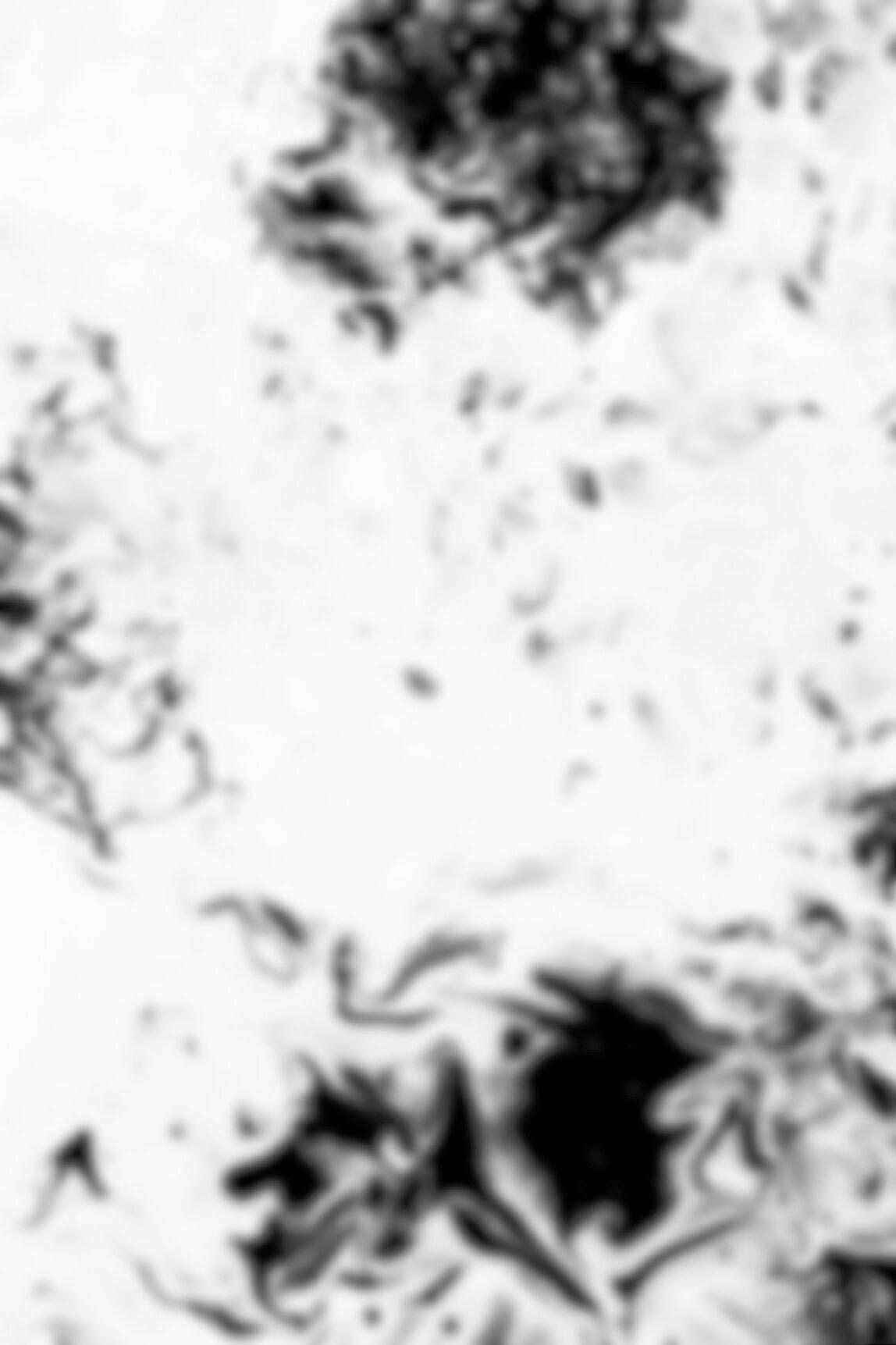
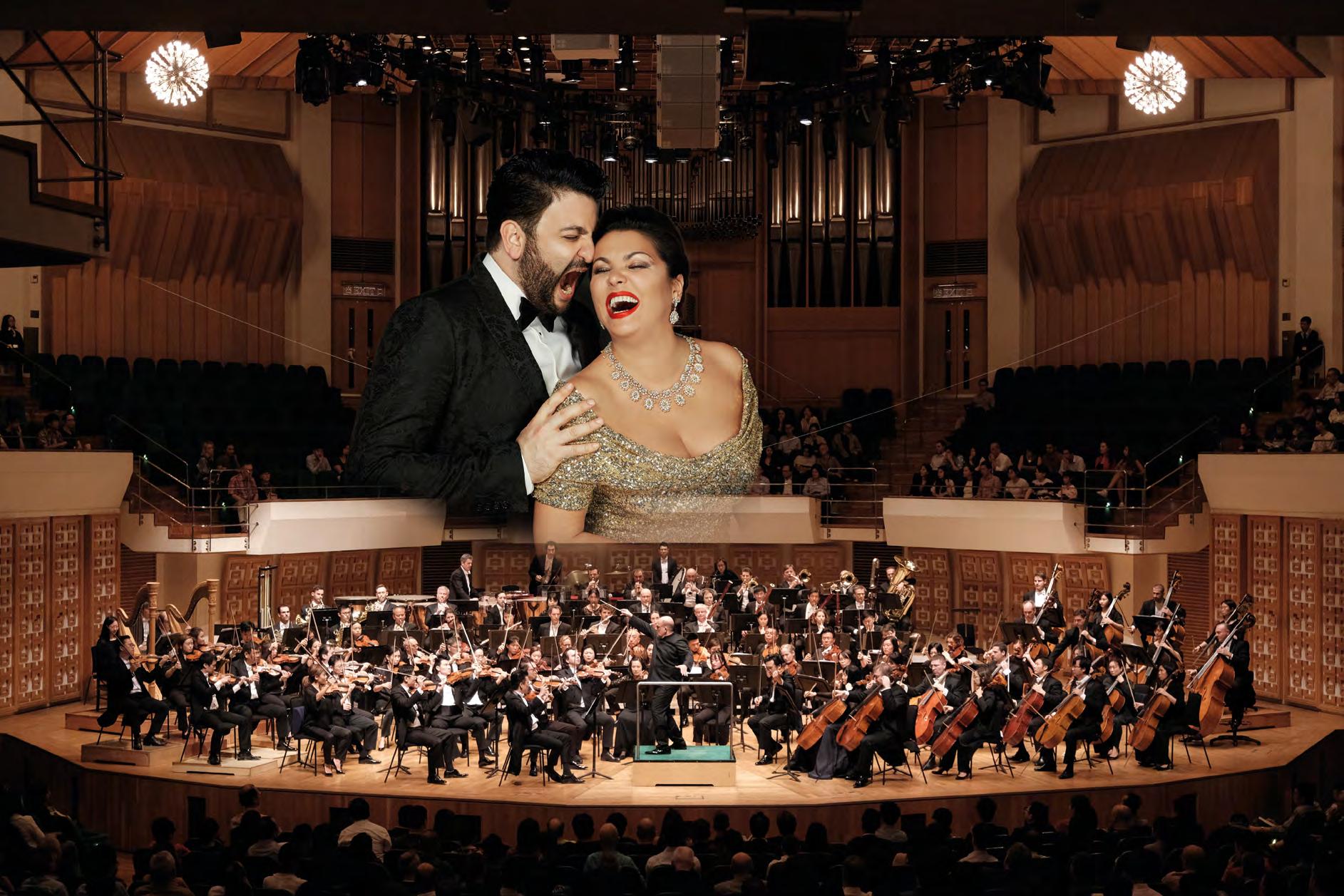













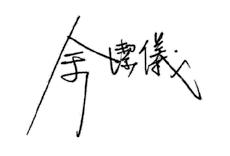
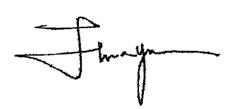









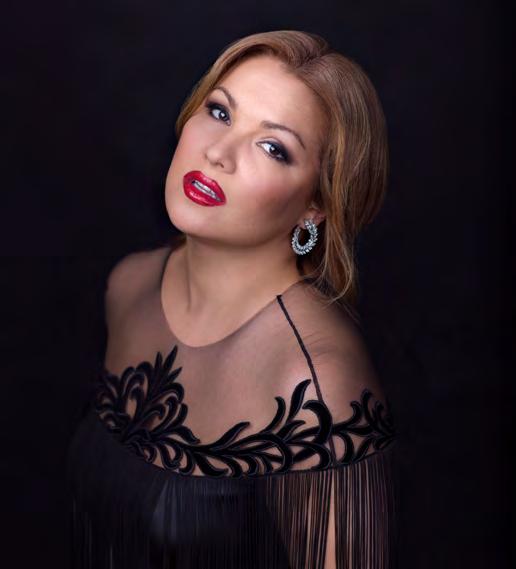 安娜.涅翠柯 ANNA NETREBKO
女高音 Soprano
© Vladimir Shirokov
安娜.涅翠柯 ANNA NETREBKO
女高音 Soprano
© Vladimir Shirokov
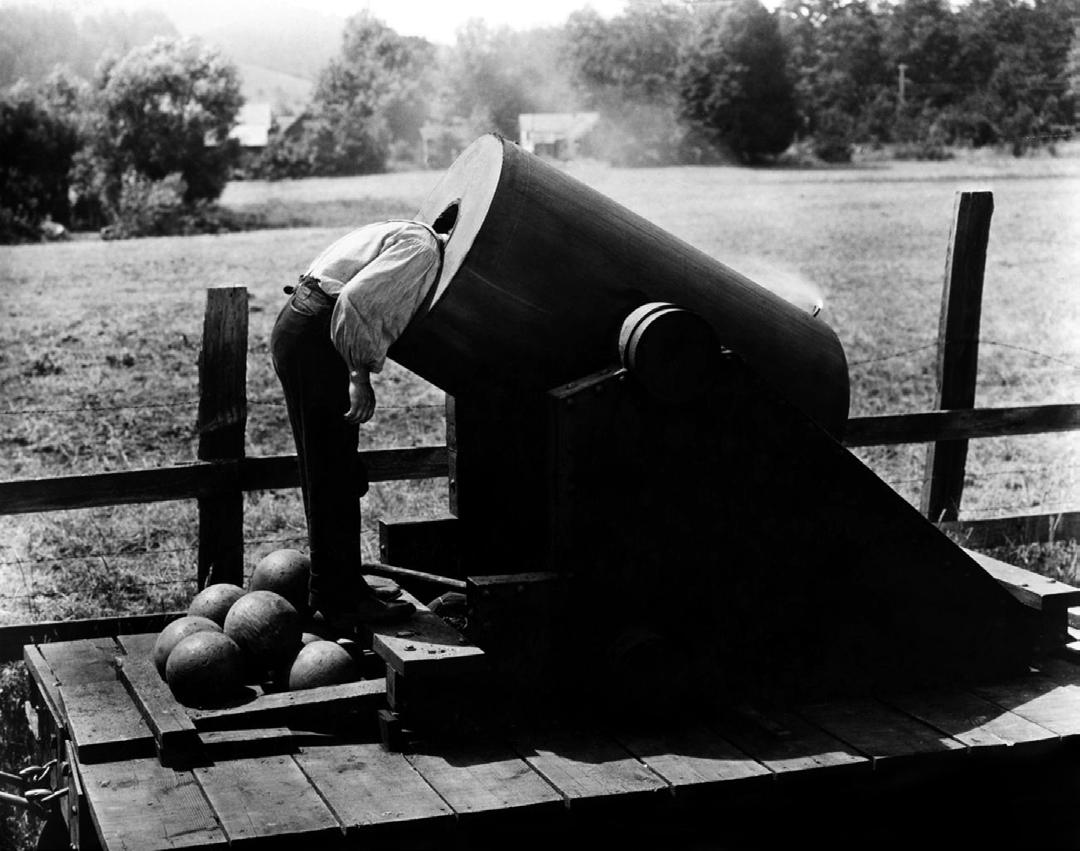

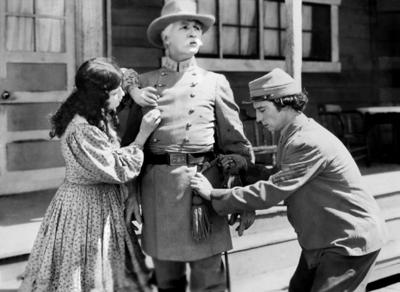



 尤西夫.伊瓦佐夫 YUSIF EYVAZOV
男高音 Tenor
© Vladimir Shirokov
尤西夫.伊瓦佐夫 YUSIF EYVAZOV
男高音 Tenor
© Vladimir Shirokov
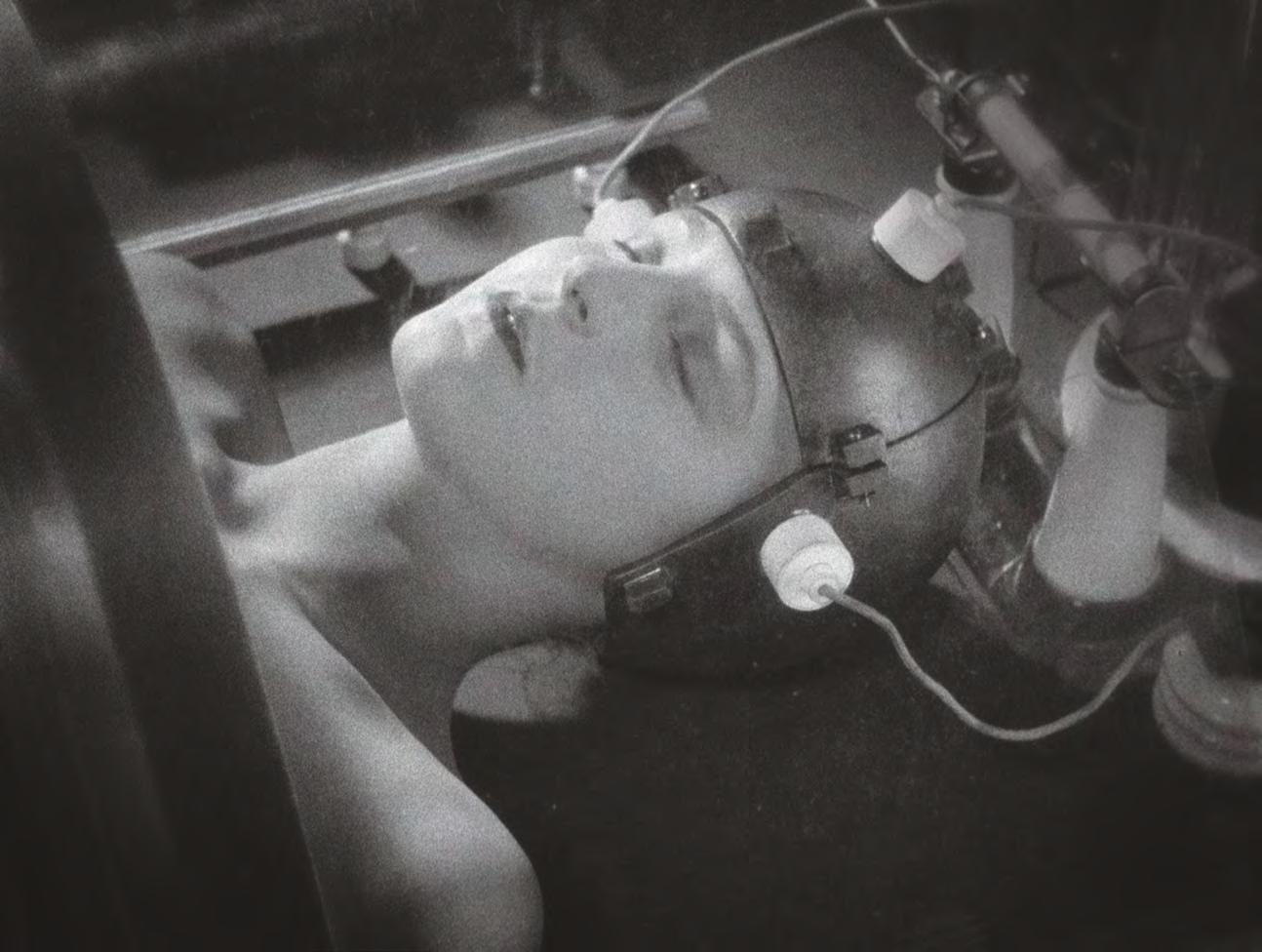











 林姆斯基-高沙可夫 Nikolai Rimsky-Korsakov (1844-1908)
Pyotr Ilyich Tchaikovsky
瓦倫丁‧謝羅夫作畫
林姆斯基-高沙可夫 Nikolai Rimsky-Korsakov (1844-1908)
Pyotr Ilyich Tchaikovsky
瓦倫丁‧謝羅夫作畫















